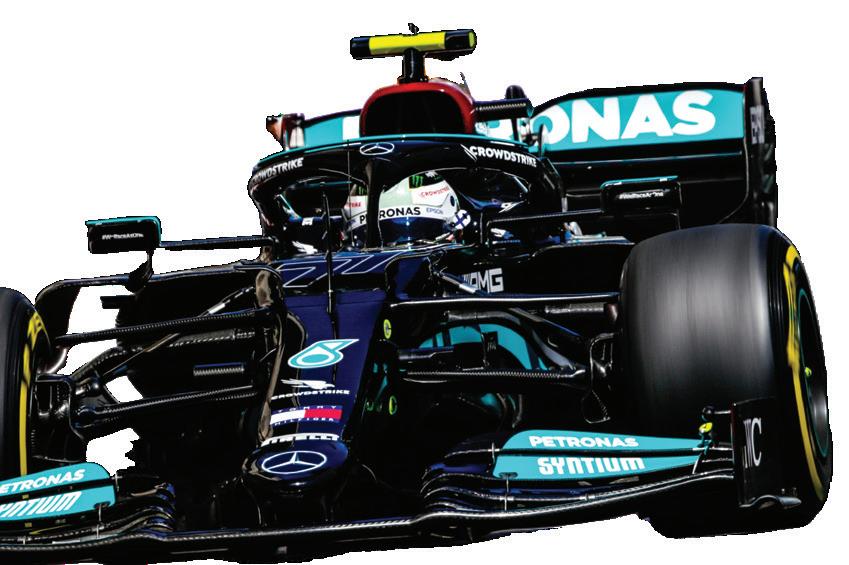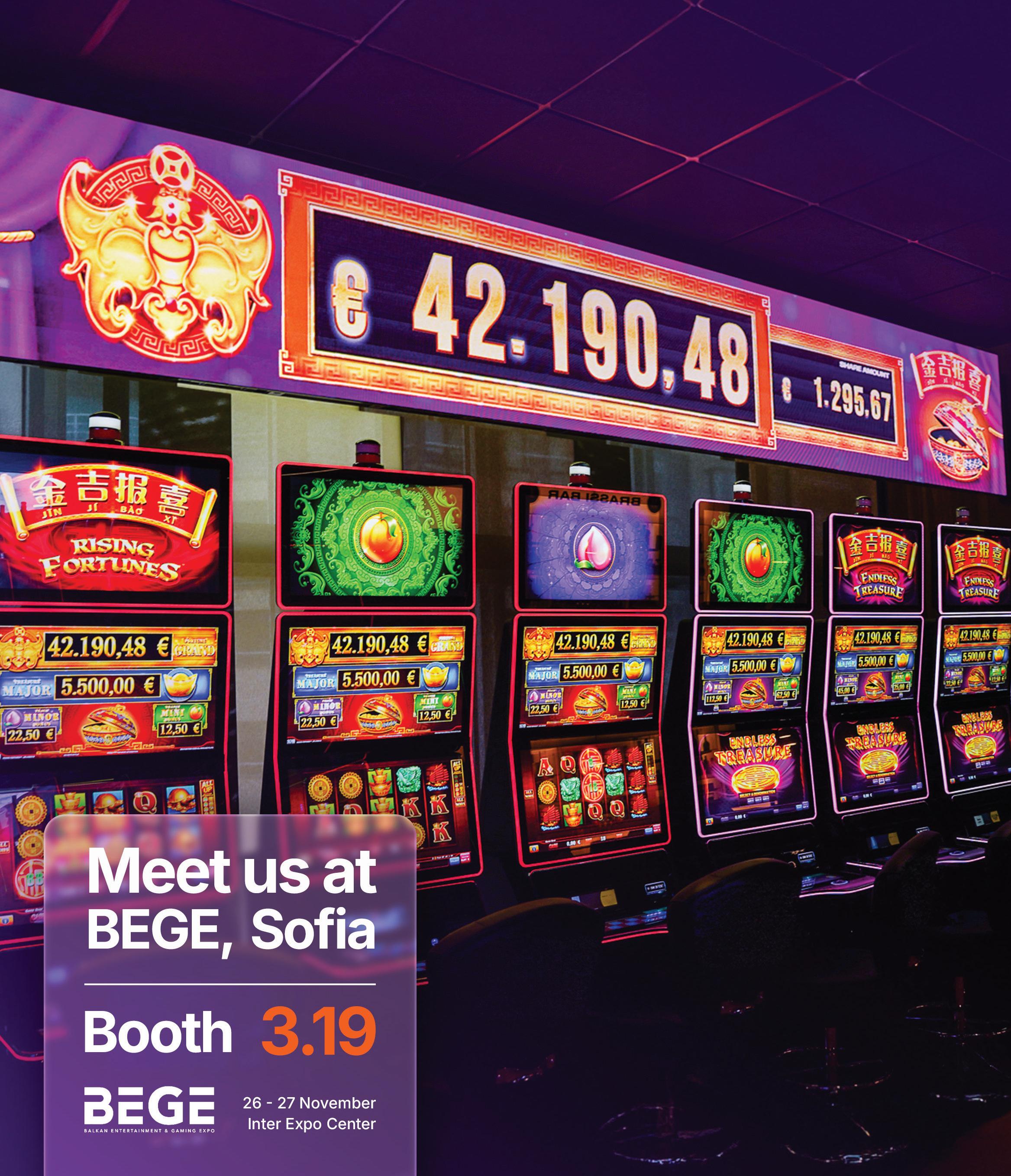
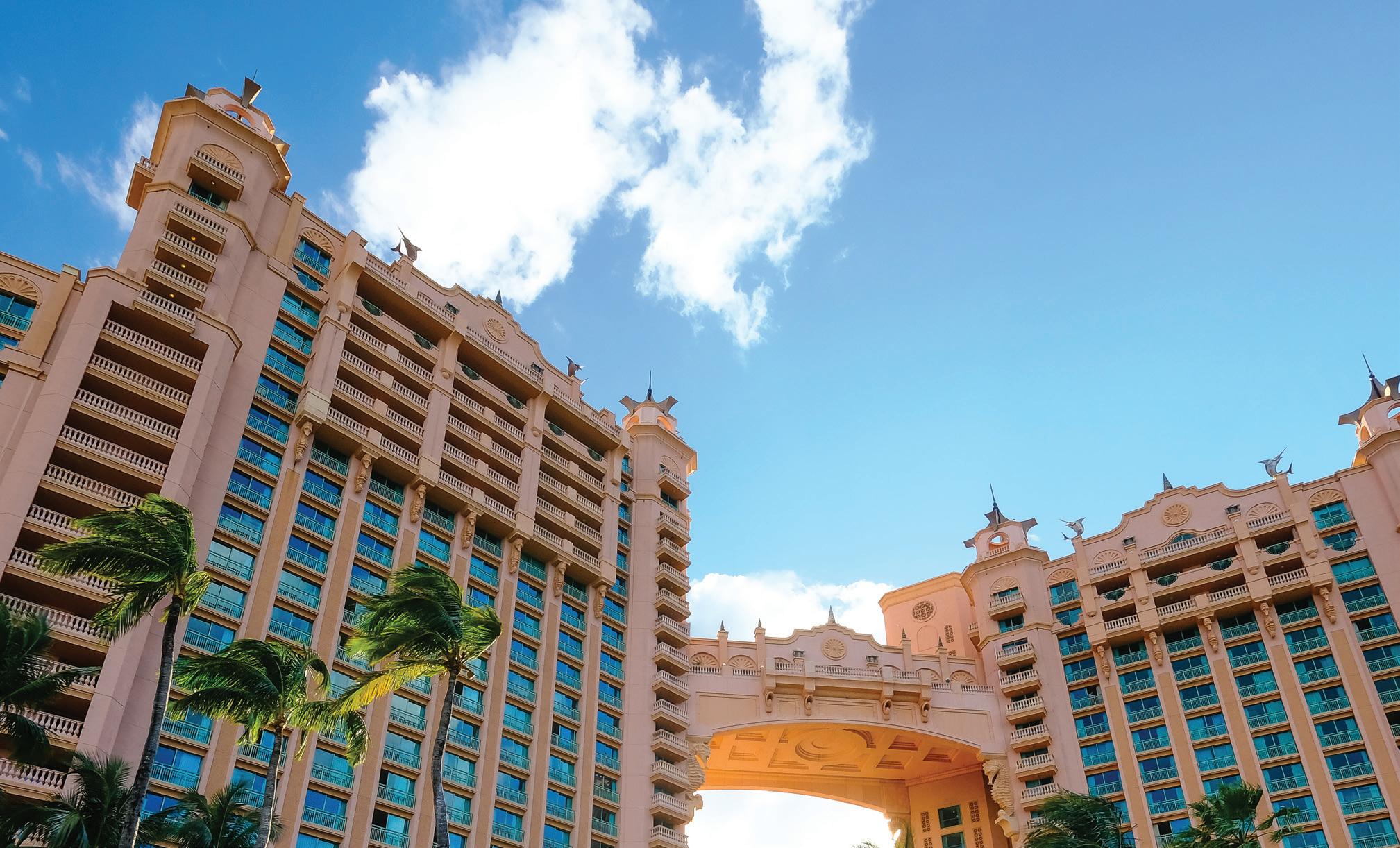
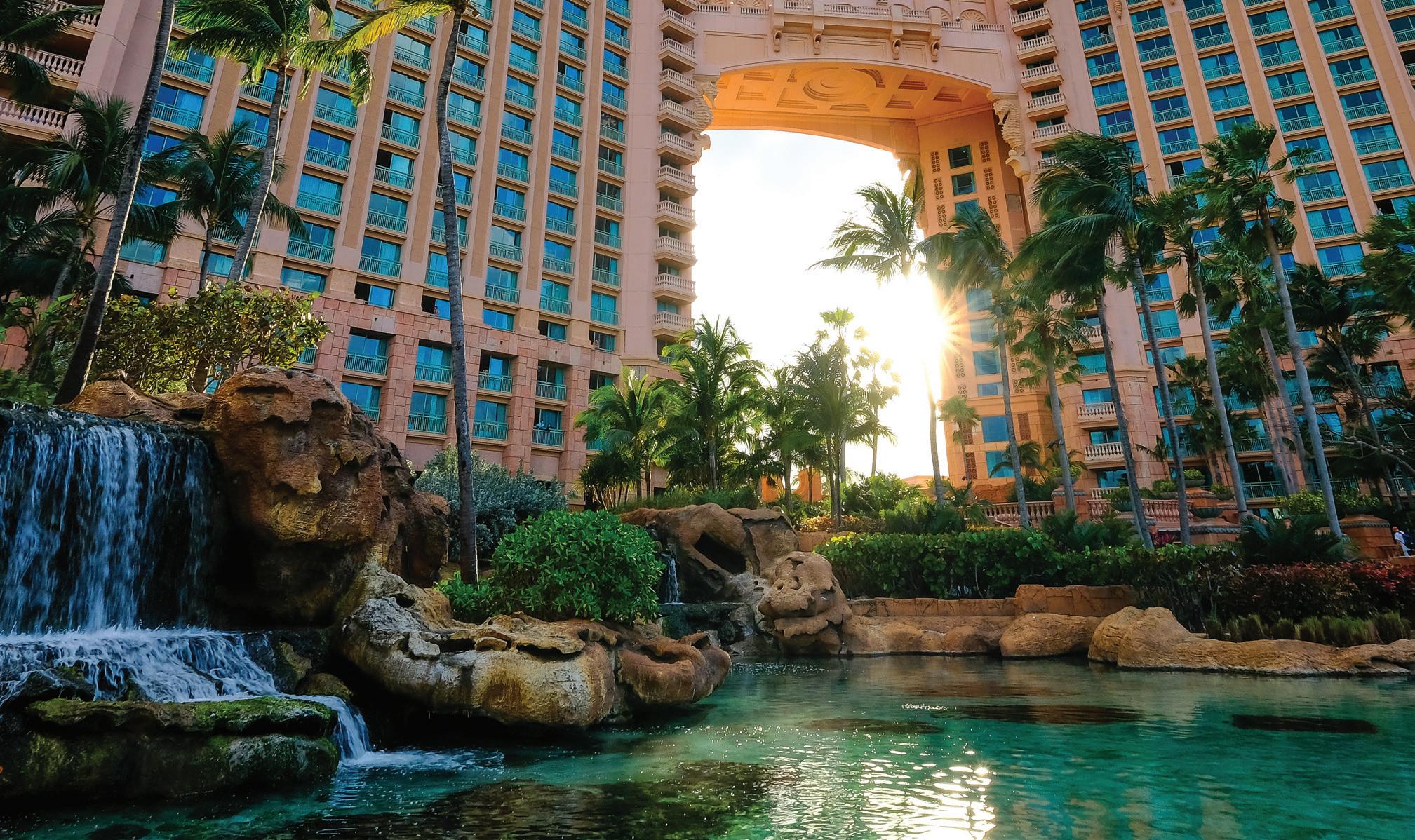







Publisher: Peter White
Tel: +44 (0) 1892 740869
Mob: +44 (0) 7973 273714 peter@outsourcedigitalmedia.com
Editorial:
Editor in Chief : David McKee dmckee@huntingtonpress.com
Editor EMEA: Damien Connelly damien@outsourcedigitalmedia.com
Associate Editor Asia: Bill Healey healeywe@gmail.com
Online iGaming Editor: Mark McGuinness markmcguinness847@gmail.com
Columnist: Raymond Chan ymrchan@hotmail.com
Associate Editor EMEA: Andrew Behan a.behan@librasgroup.com
Las Vegas Correspondent: Ryan Slattery RyanSlats@gmail.com
International Correspondent: Lyudmyla Kyrychenko lyudmyla.kyrychenko@outsource digitalmedia.com
Production:
Designer: Stewart Hyde stewart@de5ign.co.uk www.de5ign.co.uk
Accounts: Helen Holmes accounts@outsourcedigitalmedia.com
IT Director: Pasha Kuzminskiy pasha@outsourcedigitalmedia.com
t’s impossible to take in everything at Global Gaming Expo and Las Vegas’ 2025 edition was no exception. For those of you who had to staff booths or were otherwise kept busy on the show floor, here are some highlights from the myriad panels, as experienced by yours truly …

I“We lost a powerful voice, a powerful man but his leadership was crafted by tribes across the U.S. Chairman [Ernest] Stevens would be the first to say he didn’t do this alone.” – Indian Gaming Association Acting Chairman David Z. Bean
“It’s almost like Manifest Destiny again. What we’re fighting is Wall Street, tech bros, venture capitalists. They don’t care that Ayn Rand died on Social Security. They just want The Fountainhead.” – pechanga.net Publisher Victor Rocha, on prediction markets
“We’re going through a time of reclamation. We are reclaiming roles that were never designed for us. Let’s make more spaces for people like us, because there’s more room at the table.” – Choctaw National Executive Director of Communications Shauna Williams
“Healthy players means a healthy market.” – iGaming Ontario CEO Joseph Hillier
“Cannibalization is the biggest myth that exists. States are in a situation where they’re going to need the money and it’s sitting there.”
– Fanatics Sportsbook Vice President of Governmental Relations Brandt Iden, on iGaming
“It’s tough to argue that having a casino in your pocket 24/7 isn’t a problem.” – Kristofer Gilman, gaming director for the State of Connecticut, on problem gambling
“You’re only constrained by what you think you can’t do online.” –Chalkline Sports CEO Daniel Kustelski
“I truly feel we’re overmatched dealing with nation-states and the Dark Web.” – Pavilion Payments President Diallo Gordon
“There’s a lot of emphasis on slots, whereas the table game demographic is more interested in cashless.” – Ocean Casino Resort Chief Information Officer John Ferrell.
“AI’s going to help you do everything, but it’s still garbage in, garbage out. You still need to get your ducks in a row.” – Acquire.Bet Managing Director Allan Petrilli
“Why spend money via a channel that doesn’t work for a particular player? Maybe those loyalty and tier points aren’t the way to go.” – Everi Holdings Vice President of Strategy Vickie Griffin.
“Experimenting on our guests is not a thing that goes well.” – Monarch Black Hawk Director of Marketing Erica Ferris
And finally …
“Ask customers what they really want.” –BetMGM Vice President of Data Dejan Mitkovski
David McKee Editor

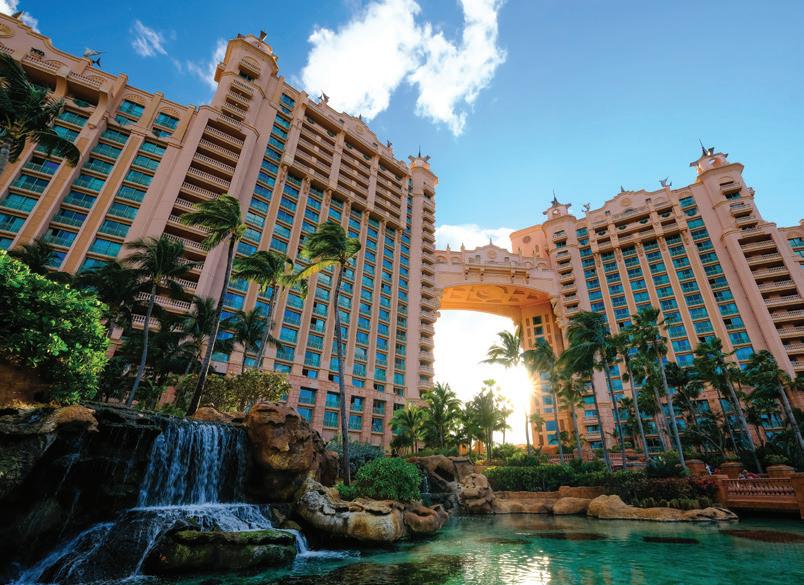
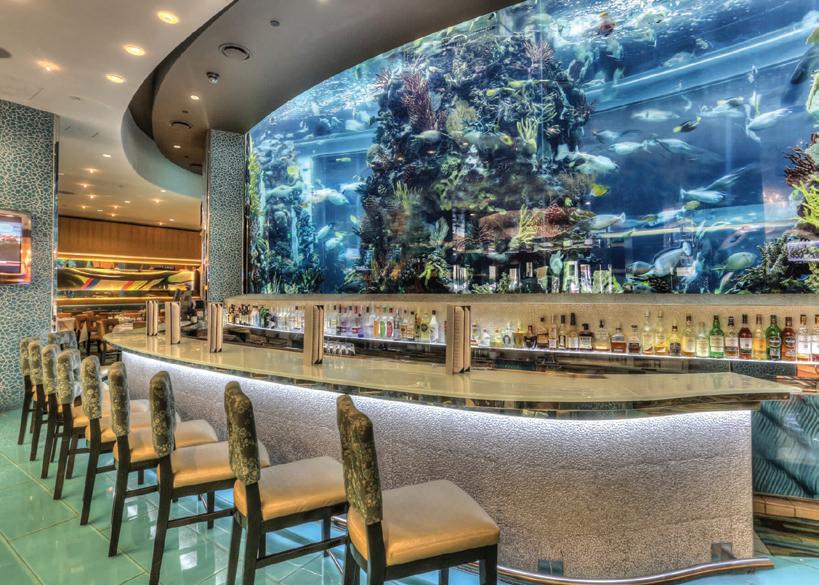
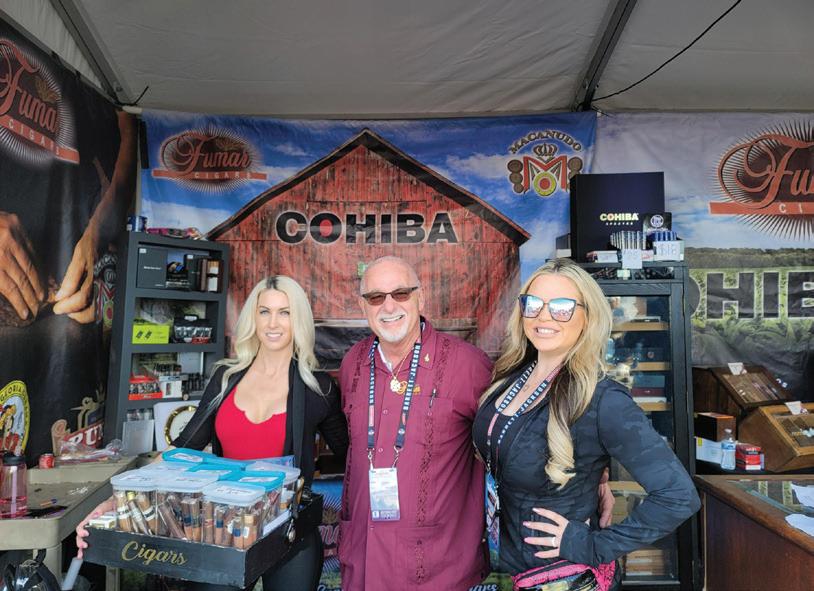
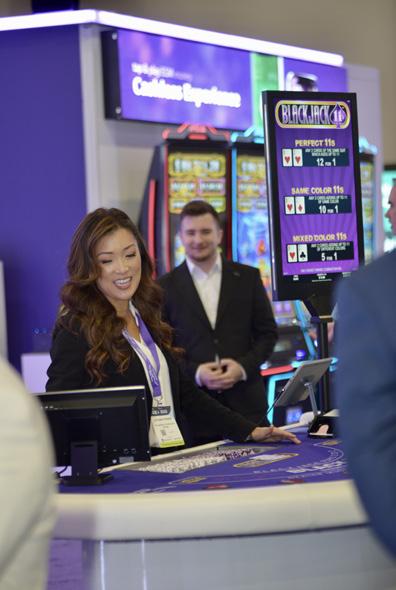
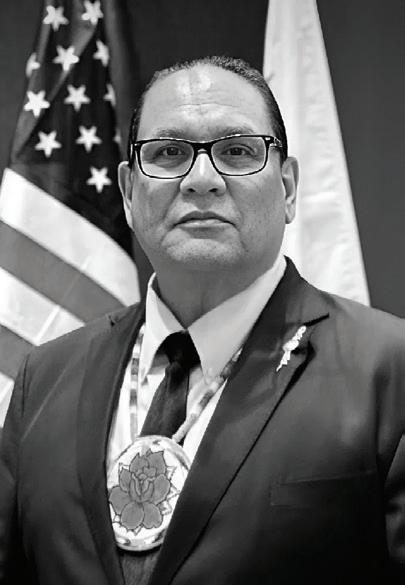
By Peter White
Attending G2E Las Vegas this year offered the usual mix of industry innovation, bright lights and the ever-present hum of optimism that defines our business. The show floor was buzzing, deals were being struck and gaming’s global pulse felt as strong as ever. But step outside the convention halls and another reality was hard to ignore: Las Vegas has become astonishingly expensive.
My personal evidence came early and often. At one major resort, I bought a standard-size bottle of water – no fancy label, just your average thirst-quencher –and was charged $9. Later that evening, I ordered two beers, which set me back $26 before the tip. And the famed Las Vegas buffet, once the city’s proud symbol of abundance and value, has jumped from $75 last year to $95 this year. At that price, breakfast begins to feel less like a casual meal and more like a calculated risk.
These experiences reflect a growing concern: Has the city that built its legend on accessible luxury now priced itself beyond reach for the average visitor?
It’s clear that Las Vegas has repositioned itself firmly toward the high end. With residencies commanding record ticket prices, Formula 1’s arrival, and new multi-billion-dollar developments like The Sphere and Fontainebleau, the city is chasing affluent tourists with open arms. Yet, this premium focus risks alienating the mid-tier travelers and industry regulars who have long filled the hotels, restaurants, and gaming floors.
Meanwhile, financial pressures are emerging. A Las Vegas Strip venue recently filed for Chapter 11 bankruptcy. That is a sober reminder that, even in this glittering marketplace, not all operators can keep pace with the escalating cost of doing business.
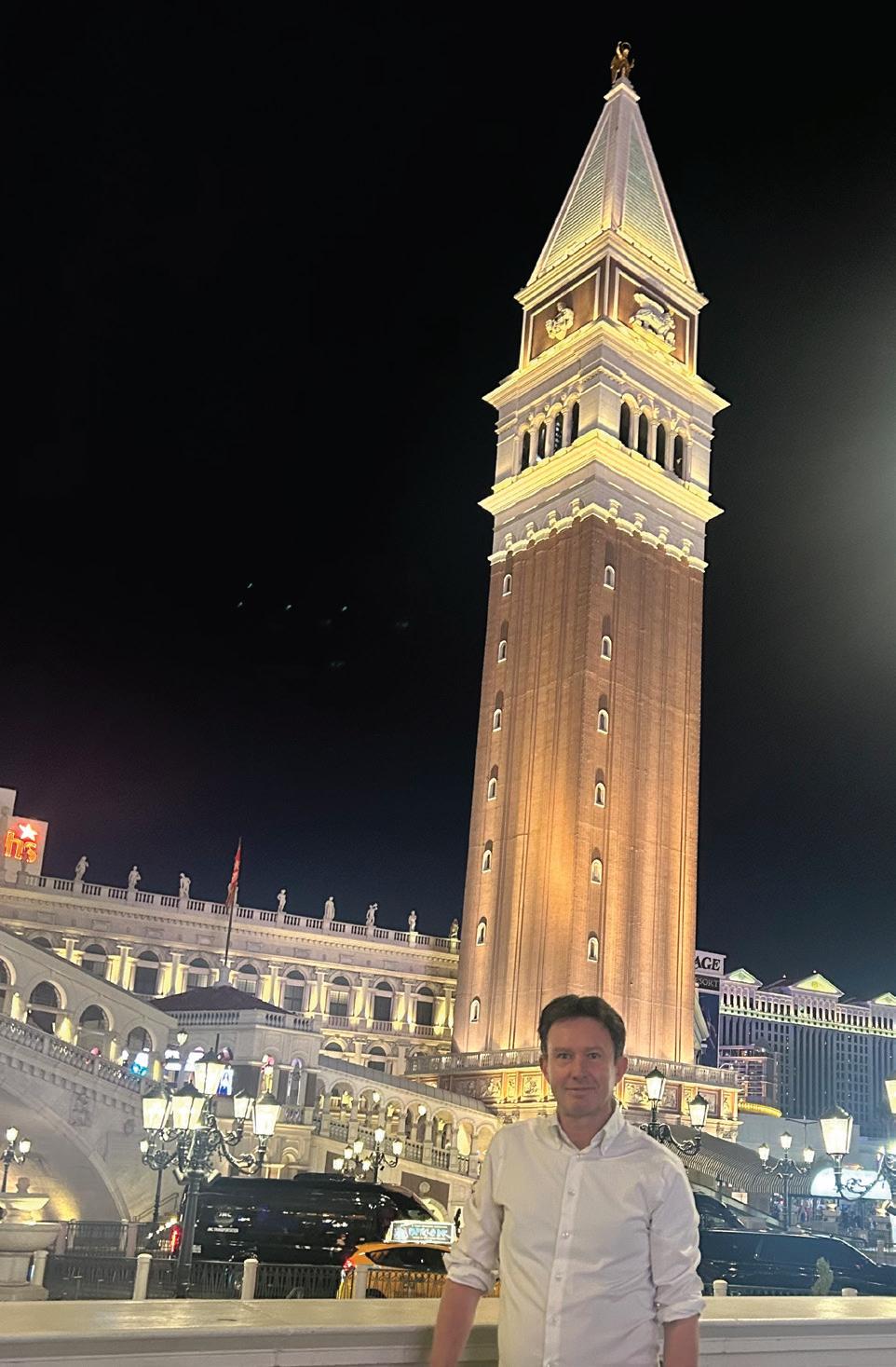
Las Vegas continues to dazzle – it always will – but perhaps it’s time for some reflection. When a bottle of water costs $9 and breakfast approaches $100, one has to wonder: At what point does the thrill of Sin City start to feel like the ultimate high-stakes wager?
Get Into Casino Life & Sports Betting Operator TV and gain insights from Presidents, CEOs, Owners and Senior Management at the World’s Leading Resort Casino and Sports Book Operators along with latest developments from manufacturers and Suppliers along with Gaming Equipment and Systems providers from Senior representatives at a select number of leading organisations in the Global Gaming Industry.

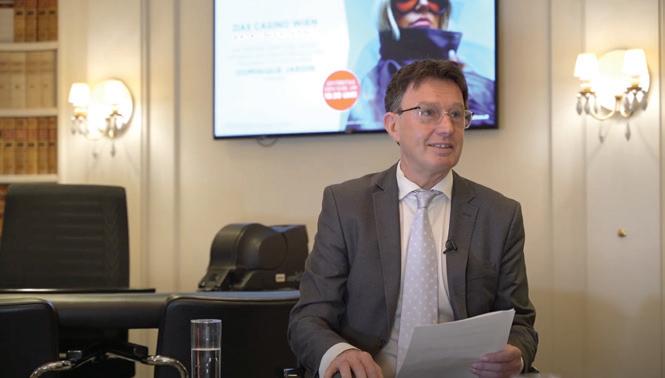
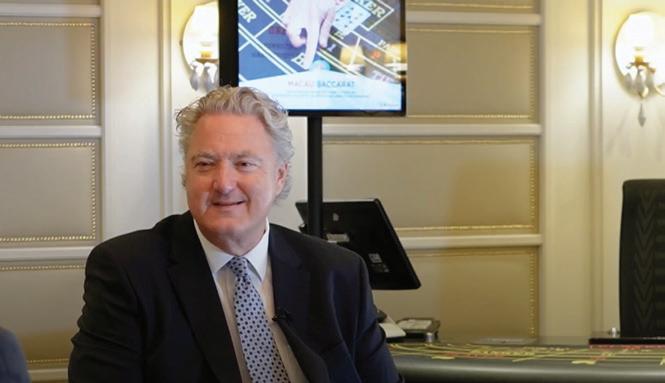
By Nick Harding, Chairman, EAG Ltd
ach January, London becomes the meeting point for Europe’s entertainment, gaming and leisure industries as they converge at ExCeL for EAG 2026. This year promises to build on the success of our new integrated format – a dynamic blend of business, inspiration and live energy that makes EAG unique.
EAt its heart, the EAG Expo remains the UK and Europe’s leading showcase for amusement and leisure equipment. From family entertainment-center classics to cutting-edge digital and interactive experiences, it’s where operators discover the latest products, technologies, and concepts that keep venues fresh, engaging, and profitable.
Running alongside, the London Casino & Gaming Show (LCG) offers a boutique-style environment for land-based casino professionals. Presenting world-class exhibitors of equipment and operational solutions, LCG provides a calm, comfortable setting where operators and suppliers can meet, and explore partnerships over great coffee rather than across a noisy show floor.
LCG will again host the finals of the UK Dealer of the Year competition, celebrating excellence and professionalism within the casino industry. New for 2026, we are delighted to introduce the UK Bartender of the Year finals, adding flair and theatre to the show. Together, these live competitions make the Casino & Gaming Show both a serious business forum and a genuine entertainment spectacle.
Completing the trio is the Social Interactive Expo (SIExpo), dedicated to the fast-growing competitivesocializing sector. From smart darts and immersive mini-golf to shuffleboard and hybrid sports, SIExpo showcases the creativity and innovation driving this market. The SIExpo seminar series, led by Jade Craig, CEO of the Gamechangers Organization, will feature two days of inspiring and fast-moving presentations live on the show floor.
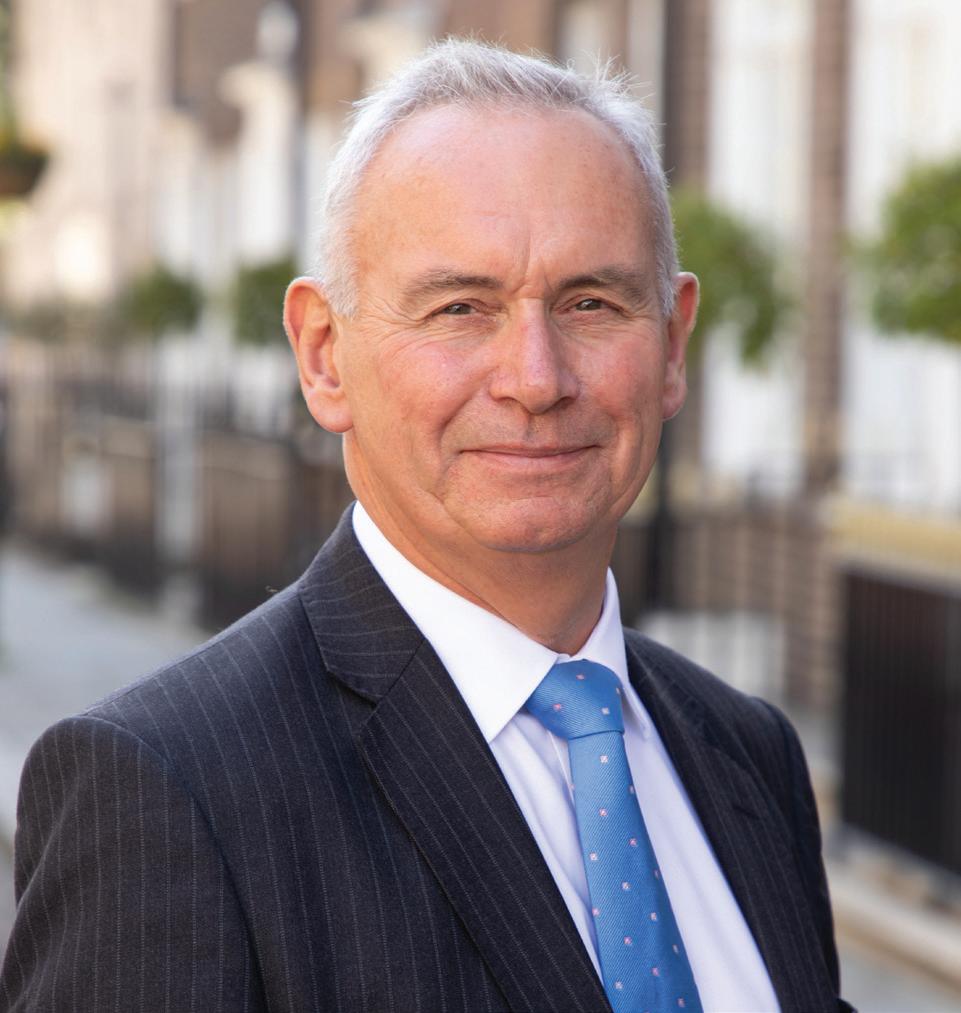
Whether you operate a casino, a family entertainment center or a social venue, EAG 2026 offers unique opportunities to share ideas, and to discover products that attract new audiences and future-proof your business.
All of this takes place against a backdrop of regulatory uncertainty and the ongoing threat of higher taxation. Our industry employs more than 100,000 people in the UK and contributes significantly to the Exchequer. Our view is that fiscal policy should be used to encourage investment, create employment and generate revenues – not to hinder enterprise through short-term populism or reactive policymaking.
EAG 2026 will once again showcase the resilience, innovation, and professionalism of our sector. We look forward to welcoming exhibitors, operators, and partners from across the UK and Europe to ExCeL London, January 13-15, 2026.
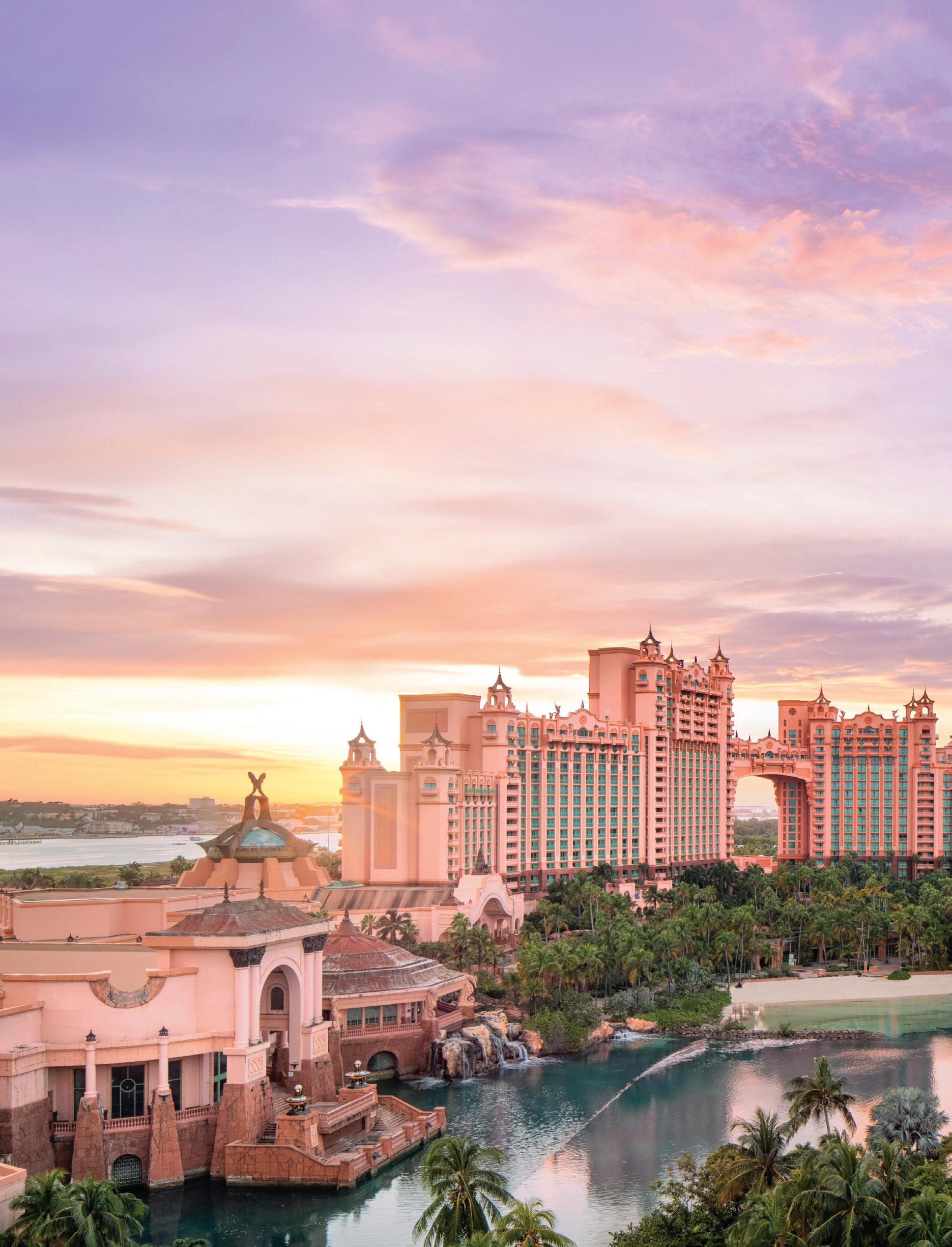
President Audrey Oswell reveals how Atlantis Paradise Island is blending Bahamian culture, environmental stewardship and cutting-edge hospitality in a new era of transformation
Our publisher, Peter White recently spoke with Atlantis Paradise Island Bahamas’ President & Managing Director, Audrey Oswell, about the transformation the resort. Oswell’s resumé includes executive leadership positions at Caesars Atlantic City, Seneca Gaming Group, The Cosmopolitan, Las Vegas and Fontainebleau Las Vegas. Topics of our conversation with her about Atlantis included the resort’s commitment to sustainability and the landmark arrival of World Series of Poker.

Audrey, could we commence this interview with a brief overview of Atlantis Paradise Island?
Yes, certainly. Paradise Island really lives up to its name. It truly is paradise. We have beautiful beaches, sunny weather every day and sitting at the entrance of Paradise Island is the Atlantis Bahamas resort. The resort opened in 1998. Atlantis has five different hotels that we offer: The Royal, which is the iconic pink building with the famous bridge suite – sometimes referred to as the Michael Jackson suite; The Coral; The Cove and The Reef which are Atlantis’ luxury hotels; and Harborside.
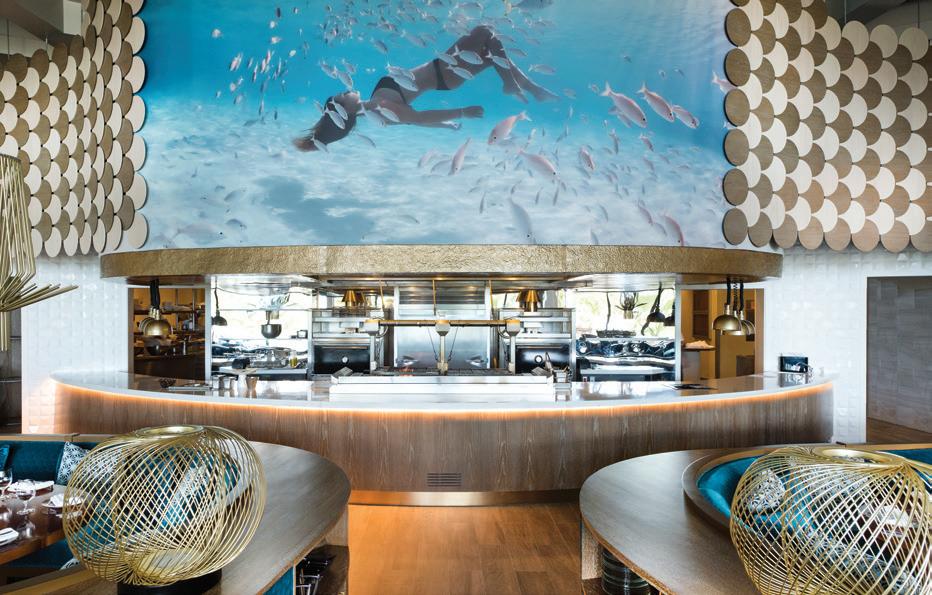
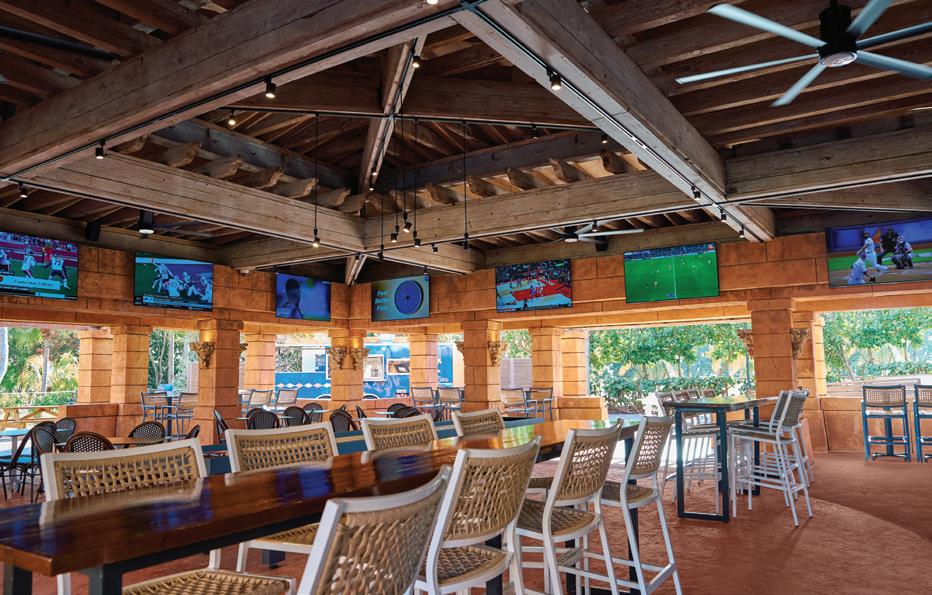
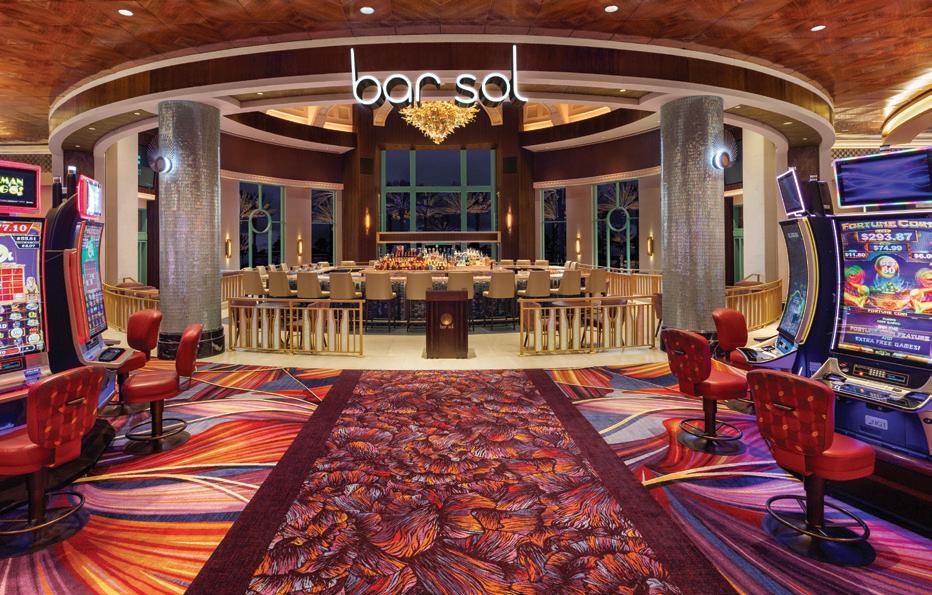
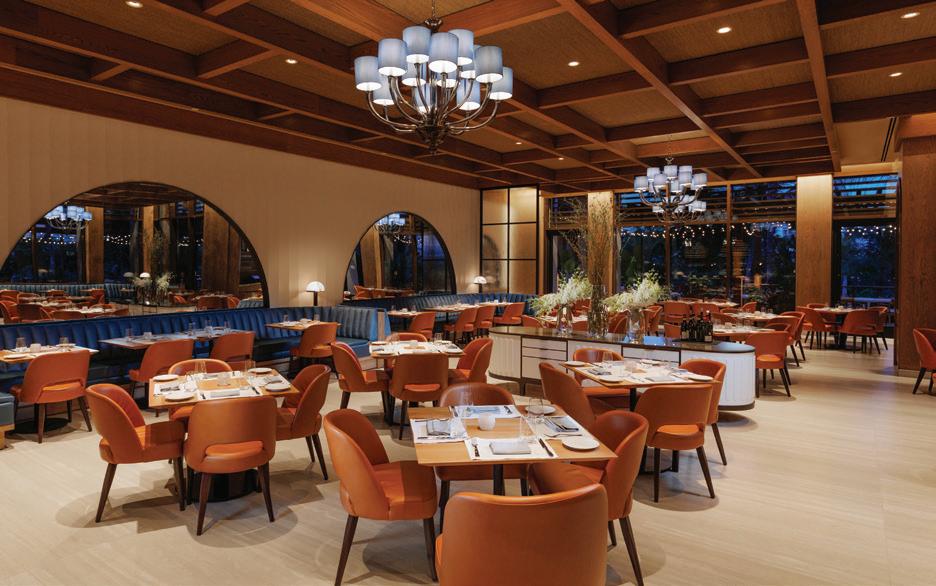
We offer a 141-acre, aqua-venture water park. We have the second largest open-air marine habitat in the world and we’re home to the rescued Katrina dolphins from Hurricane Katrina back in 2005.
We also have a beautiful, 59-slip marina and a championship, 18-hole golf course that completes the resort. Right in the center of it all is our beautifully renovated casino.
It really is paradise. I can say that personally as a guest. It’s a wonderful resort. And of course, that incredible golf course.
Yes, we’re very proud of it.
The 2023 Paradise Found exclusive feature in Casino Life captured the resort’s impressive scale and energy, what would you say has been the defining chapter of Atlantis’ journey under your leadership since then? There are several things. Clearly the transformation of the resort, both physically and from a service standpoint. Atlantis first opened in 1998 and the world was very different back then. We’ve upgraded the resort – the Royal just completed a full renovation two years ago of all its rooms. We’ve also renovated several casino spaces, bars and introduced new restaurants like Michelin star Chef Michael White’s Paranza, James Beard award winning Chef JJ Johnson’s FIELDTRIP, and Shake Shack, the first ever in the Caribbean and boasts not only a full bar but also a peek into our Dig aquarium.
Beyond the physical changes, we’ve transformed our offerings and made a conscious effort to adopt sustainable practices. None of our marine animals have been taken from the wild – they’re all rescue animals. This year we’re celebrating 20 years of our Blue Project Foundation, which is a nonprofit organization, and serves as the local rescue and rehabilitation center for the Caribbean.
We collect marine animals in distress, bring them back to the resort and rehabilitate them. When they’re healthy enough, we always release them back into the wild. Guests today want to be more involved, so our programs are now immersive – allowing visitors to help prepare food for dolphins and sea lions, plant mangrove seedlings, and experience our community through activities like a guided tour of our grounds and the nearby Ardastra Gardens.
I’m very proud of how our team and our offerings have evolved. Many of our team members have been here 20, 30, even 40 years and they’ve helped us stay relevant.
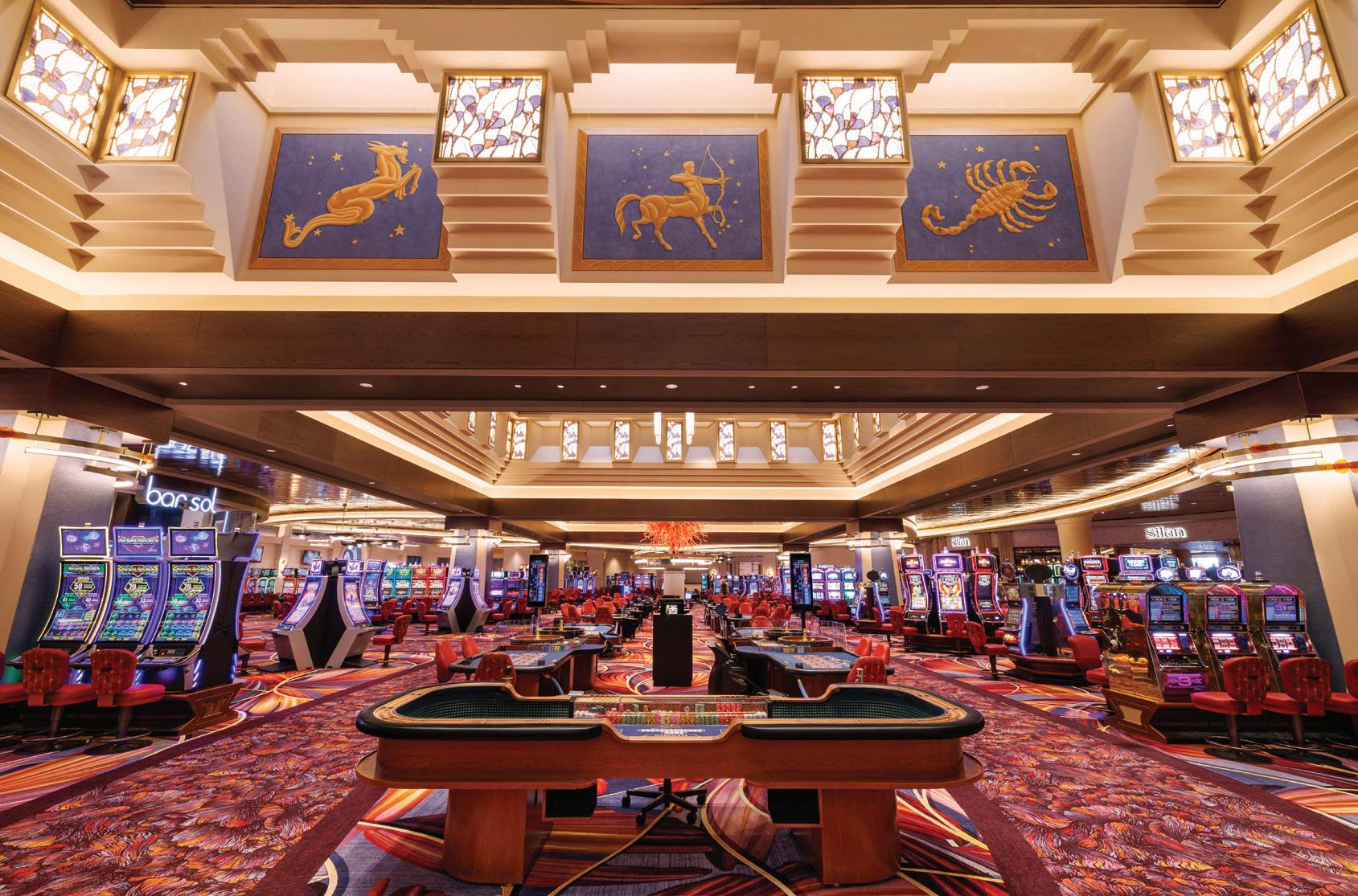
The resort completed a landmark, $250 million transformation in late 2024, which you’ve touched on. From your perspective, what were the core design intentions behind this refresh, particularly in reimagining the casino and guest rooms? It was really important that we remained true to our DNA of the Lost City of Atlantis. We didn’t want to stray too far but, at the same time, we wanted a fresh, contemporary look – especially for our repeat visitors who know the property well. The casino, being one of larger public spaces sits at the center of the resort and is the hub of adult entertainment in the evenings. So it was a really important project. Its been very well received by everyone.
We also added new restaurant options. The launch of Michelin-star chef Michael White’s Paranza was an important part of that transformation, as was adding Shake Shack and FIEDLTRIP. We have some exciting announcements coming in early 2026.
You personally oversaw this transformation as president and managing director. What leadership approach and project structure were key to delivering on time, as well as on brand?
For me, it always starts with planning – choosing the design team, the vision and the roadmap. But
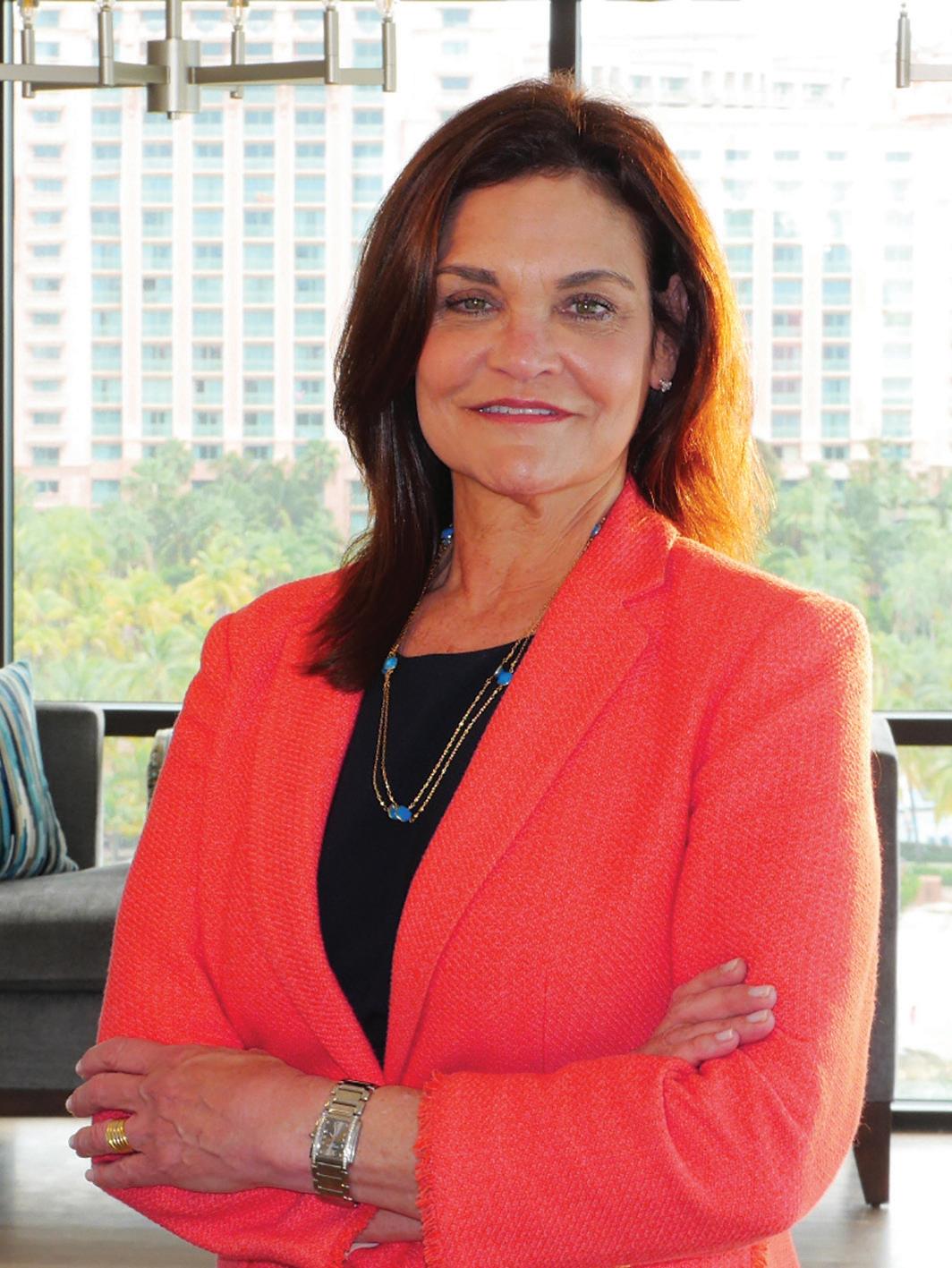
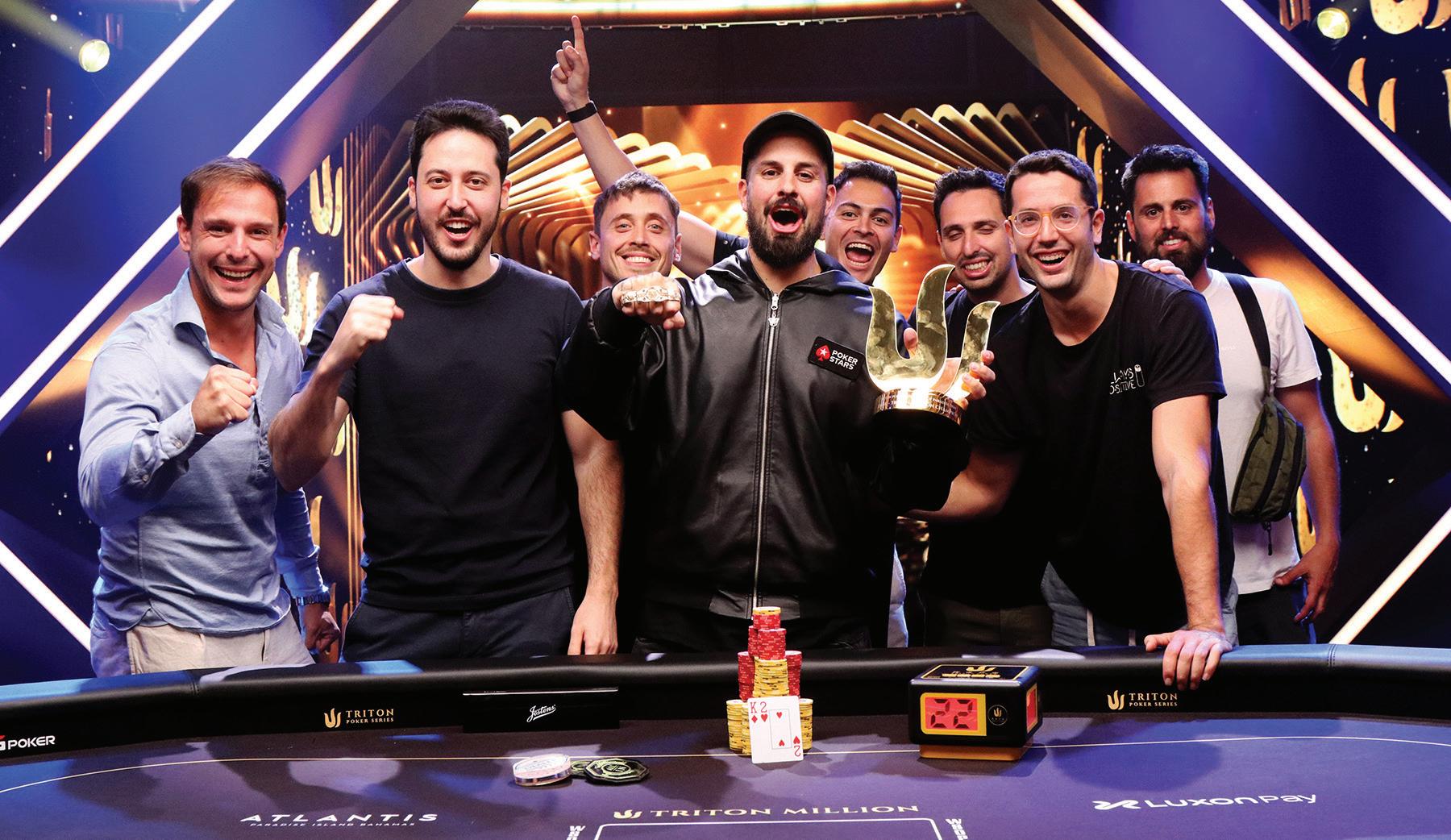
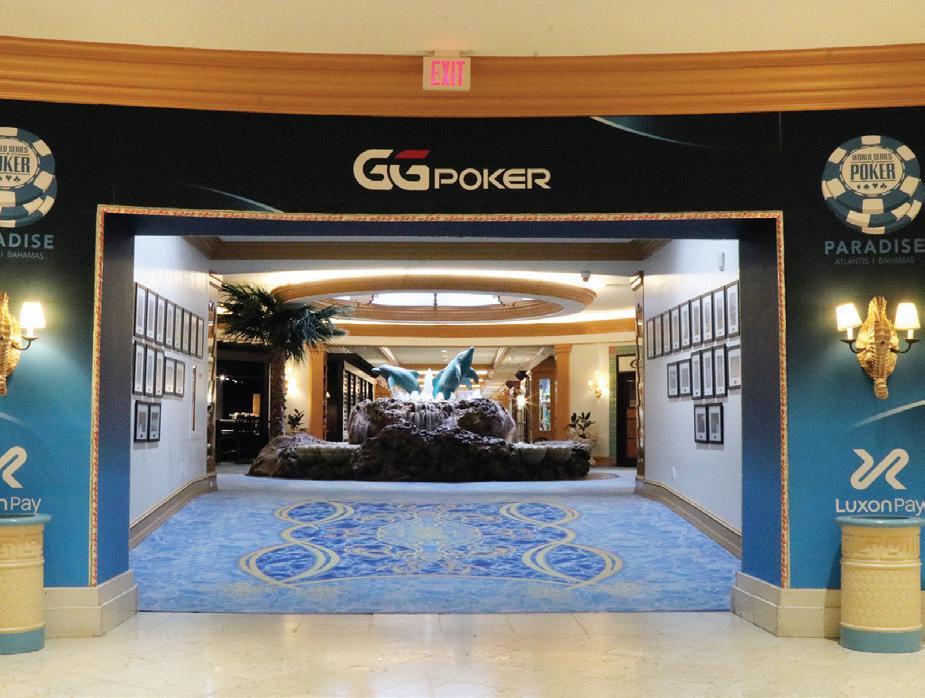

the most important thing is communication with our team members. They’re the ones interacting with our guests daily.
When guests see a sign that says, “Coming Soon,” our team needs to know what’s coming so they can explain it, and share in the excitement. My philosophy has always been that the team is the face of Atlantis. Management can set the vision, but the team delivers it.
This December, Atlantis will host the prestigious World Series of Poker. How important is this major event for the resort and how does your casino position you to deliver a truly landmark WSOP experience?
This truly is a landmark moment. The prize guarantee this year is $60 million, which is phenomenal.
The World Series of Poker team takes over the ballroom, transforming it into a contemporary, high-tech, poker arena. It’s incredible to see the transformation from a space that usually hosts galas and conferences into a poker hub.
It brings a lot of excitement and a new type of clientele to the resort, which is refreshing. Our team enjoys it as much as our guests do.
Turning to the bigger picture: Atlantis has long been seen as an innovator in the hospitality and integratedresort sectors. How do you see the resort evolving over the next five years and what role will the casino play in that growth?
It’s absolutely critical. Atlantis wouldn’t be what it is without the Bahamian community. We employ thousands of locals and we’re deeply committed to education, cultural partnerships, and environmental stewardship."
The casino will play a very important role. We’re building out our casino product to include not just the traditional table games and slots but experiences that tie into the broader resort. We see the casino as a hub of entertainment, part of a much bigger story.
In the next five years, we’ll continue to expand the guest journey – more immersive experiences, stronger connections to marine life, Bahamian culture and culinary innovation. Technology will help personalize the guest experience, but the human touch will always remain central.
Given Atlantis’ position as both a luxury resort and a cultural landmark in the Bahamas, how important is community engagement and sustainability in your long-term strategy?
It’s absolutely critical. Atlantis wouldn’t be what it is without the Bahamian community suppproting us. Our workforce is 98% Bahamian and we’re deeply committed to education, cultural partnerships, environmental stewardship and the community.
Through the Blue Project Foundation and our partnerships, we support conservation, training, and opportunities for Bahamians. Sustainability runs through everything we do – how we build, source food, manage energy and water. Our guests care about these things and so do we.
Finally, if you could sum up Atlantis Paradise Island in three words for potential visitors who have never experienced it, what would they be?
Iconic, immersive and transformative.
That’s a wonderful way to close. Audrey, thank you very much for your time today.
Thank you, Peter. It’s been my pleasure.

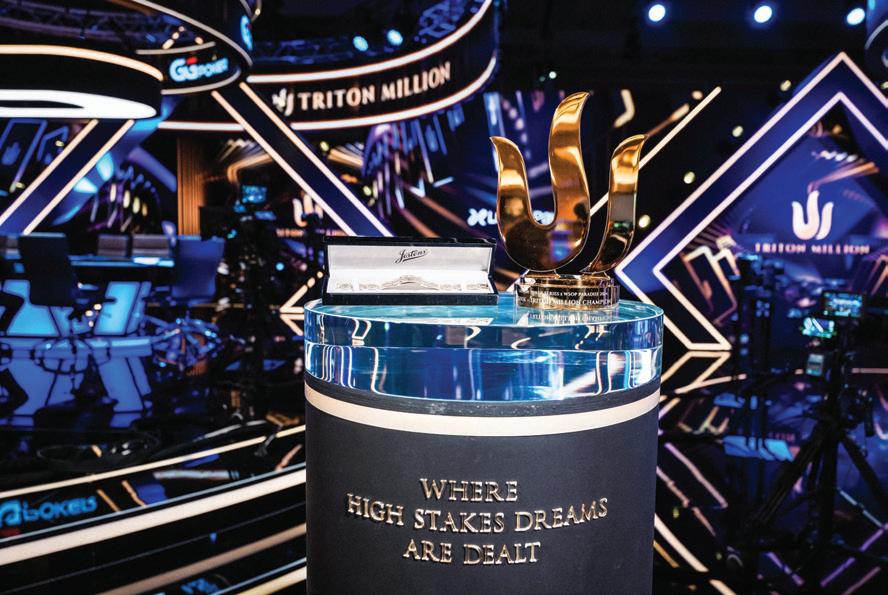
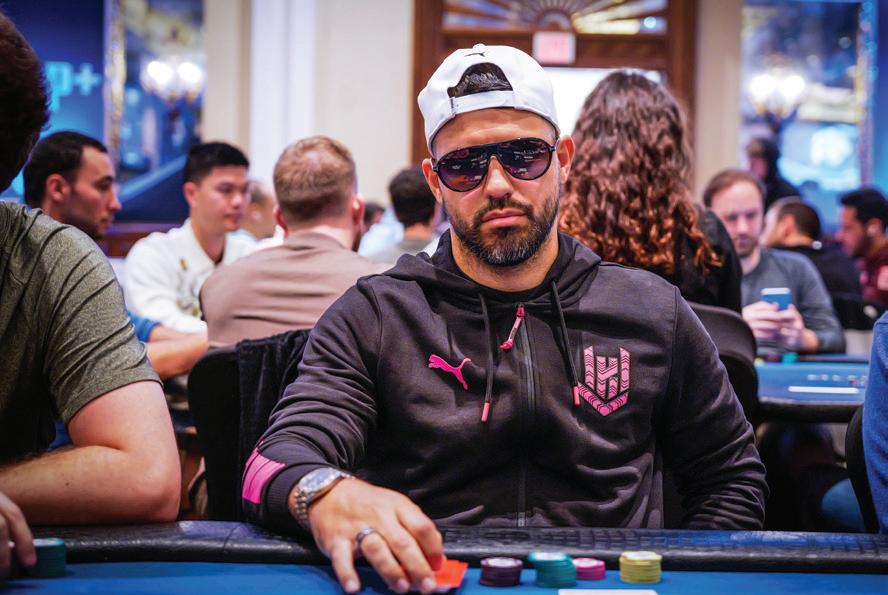
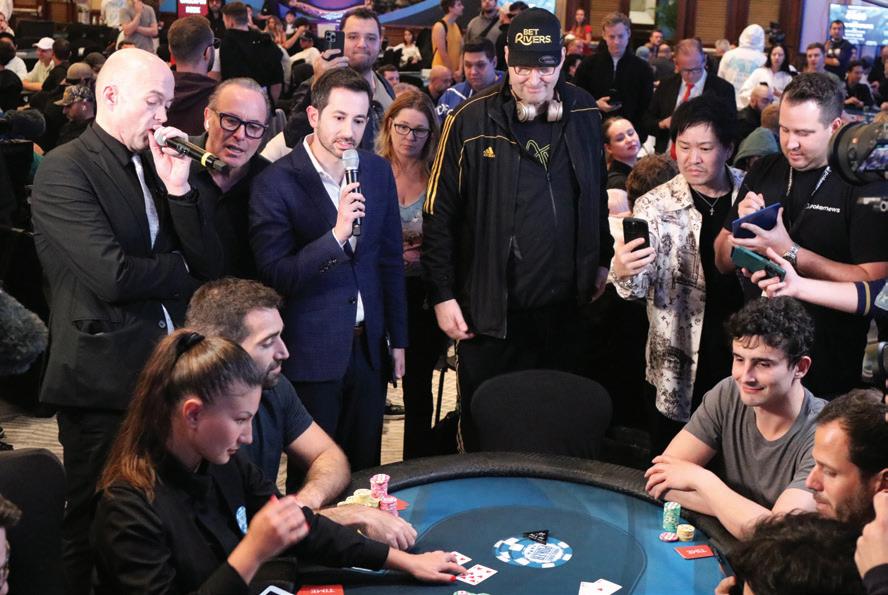
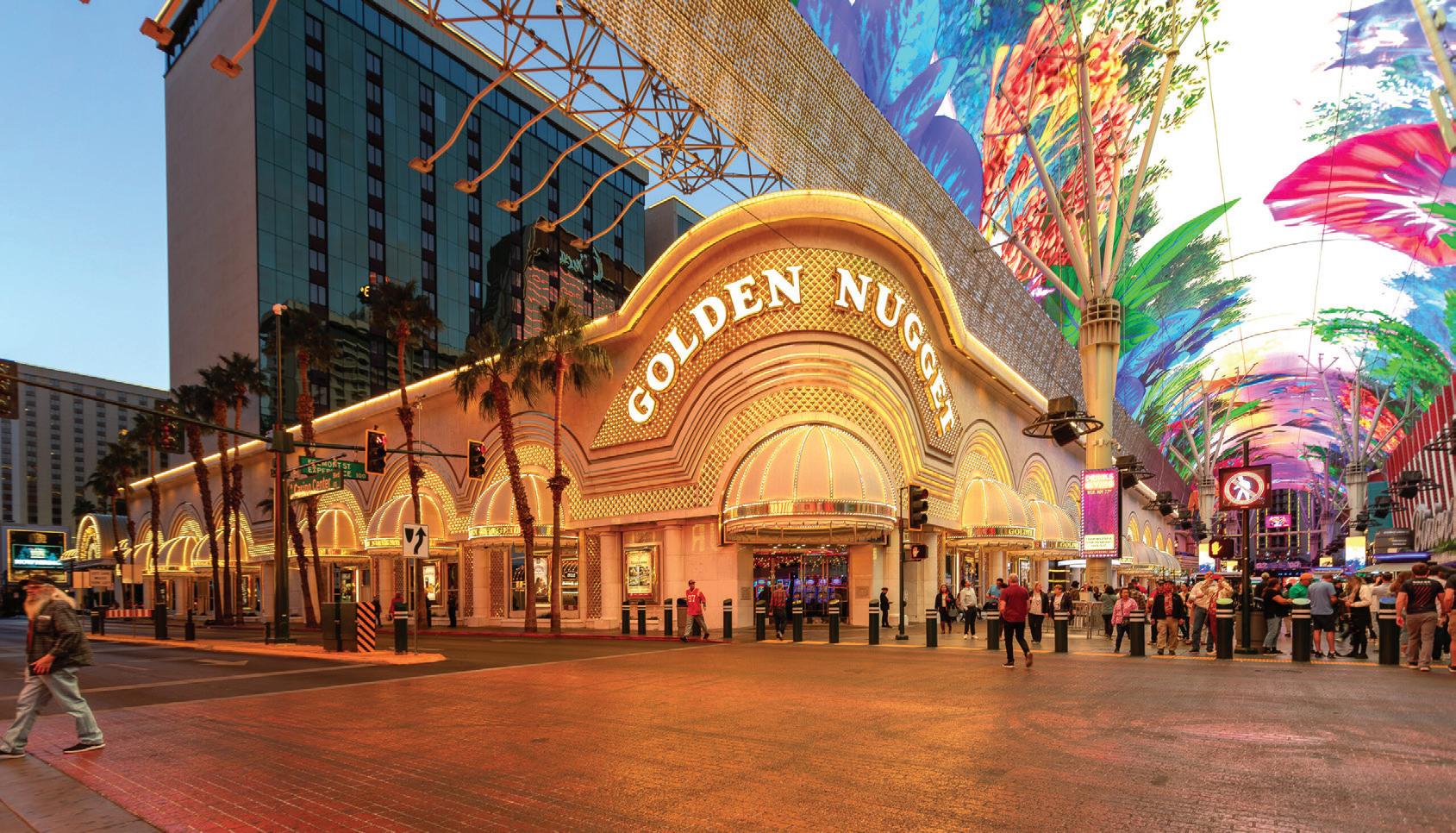
rom its Steve Wynn-owned era, when Frank Sinatra held forth in the showroom, up through its current status as the flagship of Tilman Fertitta’s casino empire, the Golden Nugget in downtown Las Vegas has been synonymous with upscale hospitality. It’s also the exemplar of a gaming brand that now extends from sea to sea. Casino Life was able to catch up with industry veteran Jacob Wood, vice president of casino operations at the Golden Nugget in Las Vegas. Wood offered insights into his success and that of the resort.
FBased in downtown Las Vegas, the Golden Nugget is a couple of miles from the famous Las Vegas Strip. Aside from distance, what differentiates the Golden Nugget from other Las Vegas casinos? The Golden Nugget offers a distinct experience by blending the energy of downtown Las Vegas with a
more personal, laid-back vibe. We are well known for being approachable, with a gaming floor that caters to everyone – from serious players to those just looking to have some fun.
Outside of the dining options, live entertainment and a pool that’s anything but ordinary – yes, there’s a shark tank involved – there are two things that really set us apart.
First, guests appreciate the unique benefit to its players: Comps earned through play can be redeemed not only on-property, but also at over 500 restaurants across the country. This includes brands like Mastro’s Restaurants, Morton’s The Steakhouse, Del Frisco’s Double Eagle Steakhouse, Bubba Gump Shrimp Co. and Rainforest Café. This nationwide comp-redemption program adds value to the guest experience, allowing players to enjoy their rewards beyond Las Vegas, whether dining locally at home or
while traveling. It’s a level of flexibility and recognition that adds real value and keeps players coming back.
Second, we pride ourselves on guest service by simply taking care of all our guests. The service at Golden Nugget is consistently attentive, with staff who prioritize guest comfort and satisfaction. The overall environment creates a welcoming atmosphere that feels more like a close-knit community than a typical resort.
It’s not about being flashy, it’s about being memorable. Whether you're here to play, eat, or explore Fremont Street, Golden Nugget delivers the full Vegas experience – fun, memorable and easy to enjoy.
What are the general player demographics of the Golden Nugget? Is there a sizable number of international travelers making their way to the casino?
Golden Nugget attracts a diverse mix of guests from across the country and around the world. While domestic travelers do make up the majority of our visitors, the property sees consistent visitation from a wide range of regions. The growing sports presence in Las Vegas plays a big role in this, often bringing in fans from around the country, adding to the energy and excitement throughout the property.
What career path led you to the Golden Nugget?
As a second-generation casino employee, my career path has always been shaped by a passion for the gaming industry and a commitment to delivering an exceptional guest experience. Growing up, both of my parents worked in the casino industry and I was inspired by the energy, excitement, and stories they shared with me along the way. That early exposure sparked my interest. I began gaining hands-on experience in the industry while still in high school and through college, starting at the Golden Nugget pool, where my mother worked.
After college, I made the decision to leave teaching and coaching, and pursue a career in gaming by learning to deal. Over time, I advanced into leadership roles that allowed me to deepen my expertise in table games and, later, with my passion for analytics, in slot operations as well. Along the way, my background in athletics and coaching helped me develop a love for team-building and mentorship – skills that have been invaluable in leadership. Each step taught me how to
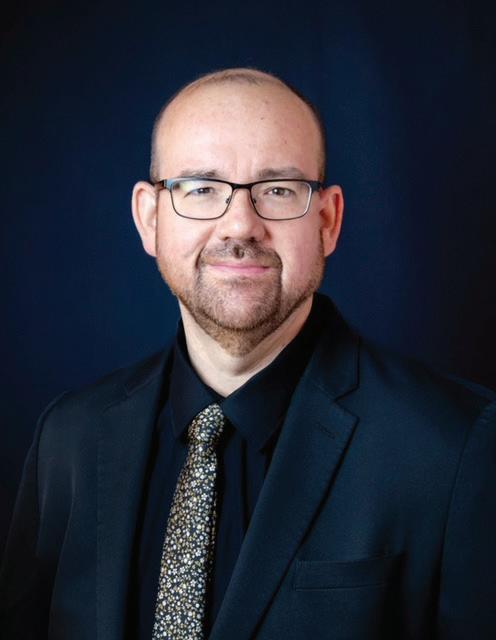
balance guest engagement with operational efficiency, and I continually sought opportunities to expand my skill set and take on greater responsibilities.
My career eventually took me to Pennsylvania, where I was part of opening a new property when the state approved gaming. With the support of my wife, we relocated with our young son. I gained experience in launching and growing a property in a new market. Eight years later, we felt it was the right time to return to Las Vegas with our growing family.
Ultimately, it has been the combination of operational knowledge, leadership experience and a guest-focused mindset that led me back to the Golden Nugget. In my current role as vice president of gaming, I have the privilege of bringing those experiences together to guide strategy, support and mentor our team, and ensure our property continues to thrive in an increasingly competitive market.
As you progressed in your gaming journey, are there lessons you learned that were adaptable to your role at the Golden Nugget?
One of the most important lessons I’ve learned throughout my gaming career is the value of adaptability – both in operations and in leadership. The industry is constantly evolving, whether it’s through regulatory changes, new technologies or

Sports Betting Operator provides technology features, news and new product information, keeping online gambling companies up to date with the fastest growing gambling sector in the world

A highly regarded team of Internationally experienced journalists, all of whom have a wealth of knowledge in online and land-based gaming involving, legislation, e-commerce, responsible gambling along with the latest online operating systems and solutions.

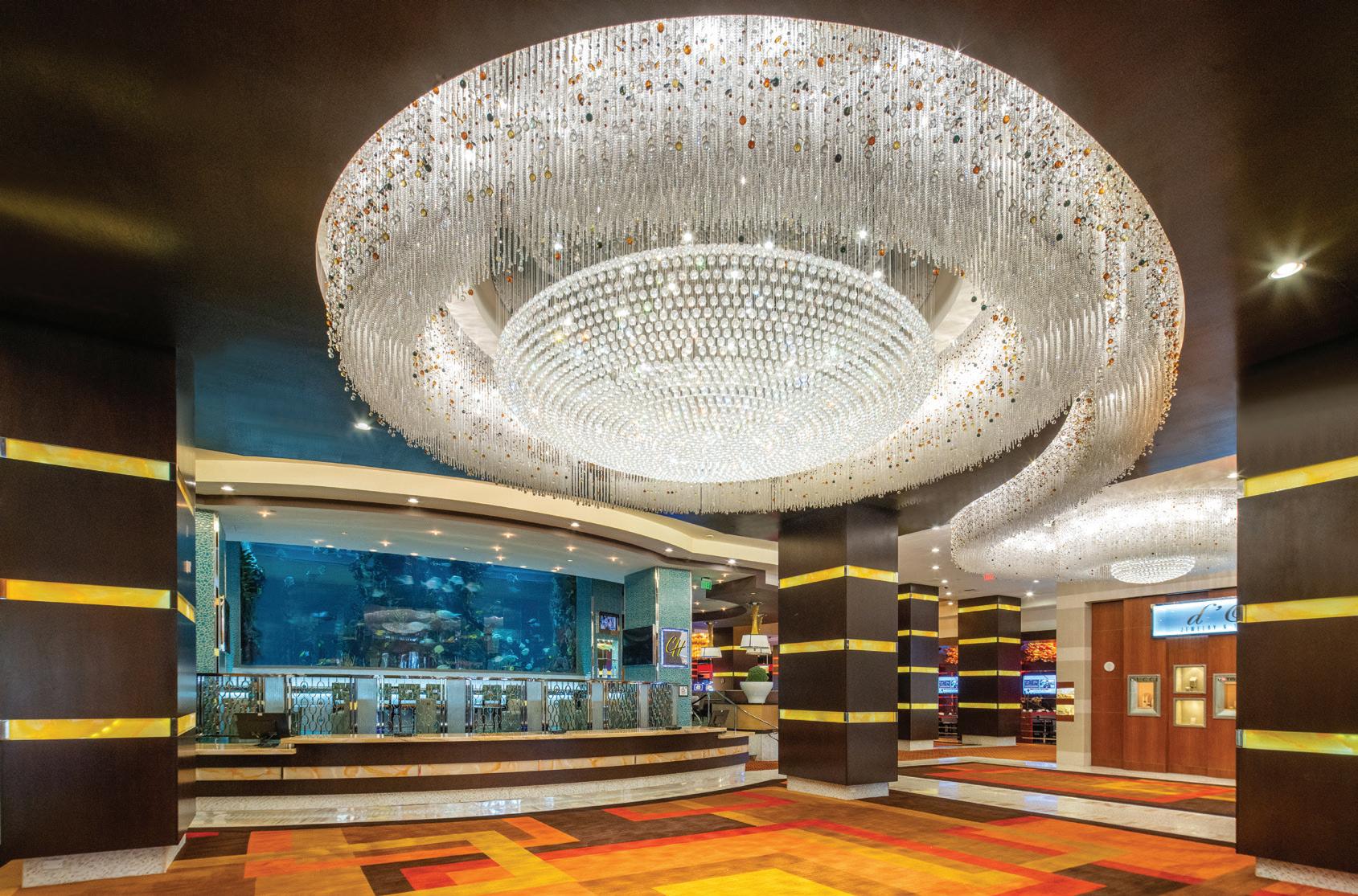
shifts in player preferences. Early on, I learned the importance of staying flexible, listening to both guests and team members, and finding ways to innovate while still protecting the core gaming experience. This was ingrained in me from mentors along the way like my former supervisor, Jason Sides (who is now the general manager of Golden Nugget Lake Tahoe) and my current general manager, Chris Latil who have both been instrumental in my success and growth here. Another key lesson has been the importance of building strong teams. Success in gaming doesn’t come from one person – it comes from empowering people, fostering collaboration and ensuring everyone understands how their role contributes to the bigger picture. There is no bigger piece of a successful operation than the human capital that goes into it. Great ideas can come from anyone on any level. I believe it is important to talk to all of your people and connect with them, so they feel comfortable voicing their ideas and opinions. Team building and connecting with your team is something that is learned skill. I was lucky enough to watch my father during his gaming career. I saw the ability he had to connect with people and get buy-in, to the point where they would raise their level of performance simply because they were doing it for him.
Both lessons, adaptability and team leadership, have been directly applicable at the Golden Nugget, where maintaining a balance between tradition and innovation is essential to keeping our guests engaged and our business growing.
What is the size of the gaming area at the casino?
Our gaming floor at the Golden Nugget is nearly 50,000 square feet, allowing us to offer a well-balanced mix of table games and slot machines.
How many table games and slots are offered at the casino?
We currently offer 70 table games and over 900 slot machines, providing a comprehensive gaming experience for our guests. We are catering to those who the enjoy excitement and interaction of live table play, as well as those who prefer the variety and convenience of slots.
Are certain table games favored by Golden Nugget players?
From popular carnival games to both shoe and doubledeck blackjack, as well as classics like craps and roulette, we’re able to provide a variety that appeals to different types of players and budgets. This variety allows us to ensure there is something for everyone.
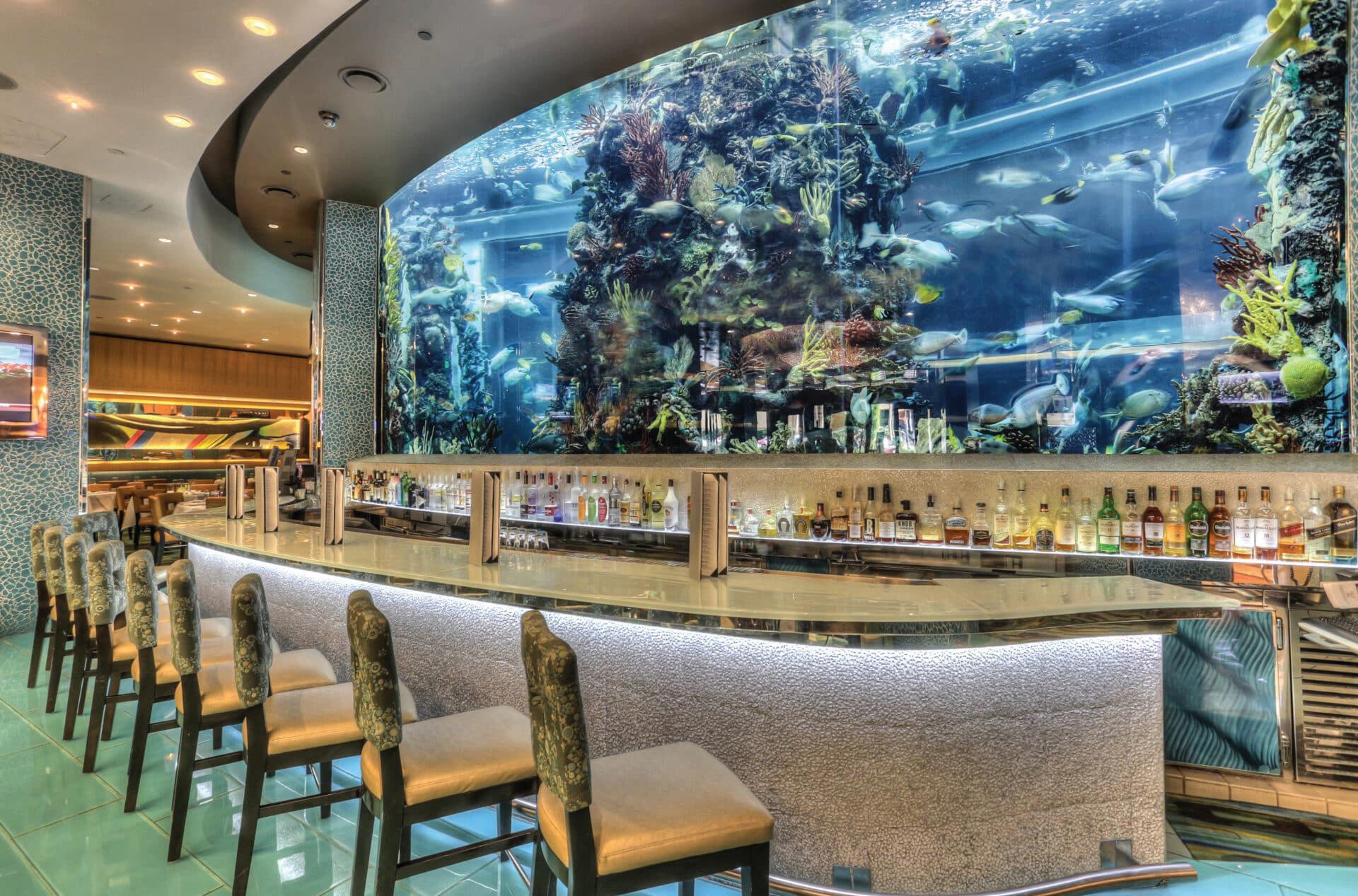
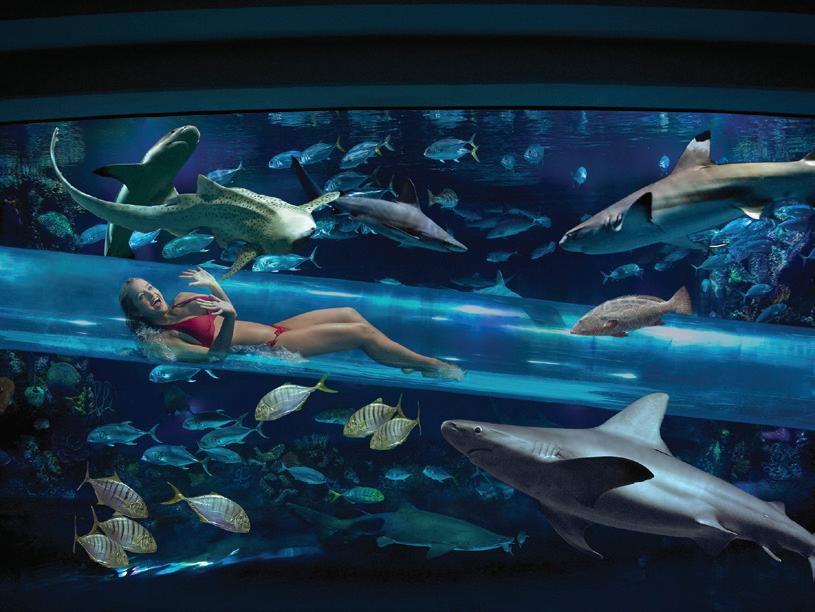
Several casinos in Las Vegas have been replacing live dealers with electronic table games. Will the Golden Nugget do the same?
Our table games business remains strong and, while we do offer traditional electronic table games as well as dealer-assisted hybrid options, our guests tend to prefer live dealers and a traditional experience. We will continue to offer a wide variety of live-dealer offerings, as there is a unique level of engagement and excitement that electronic games cannot fully replicate. The interaction between players and dealers, the energy at the table and the tactile elements of cards, dice, and chips all create an atmosphere that
“
Golden Nugget is deeply committed to community engagement, with a volunteer culture that’s embraced across the organization."
is central to the guest experience. While electronic and hybrid table games serve as a valuable complement to our offerings, they do not replace the authenticity and social connection that live tables provide.
In recent months, Las Vegas has been hit by a downturn in inbound tourism. Has that affected the Golden Nugget and what can be done (or has been done) by the casino to counteract it?
Golden Nugget continues to focus on what it does best, delivering exceptional guest service and memorable experiences. Many visitors note that the staff consistently goes above and beyond, which keeps them coming back regardless of broader travel trends.
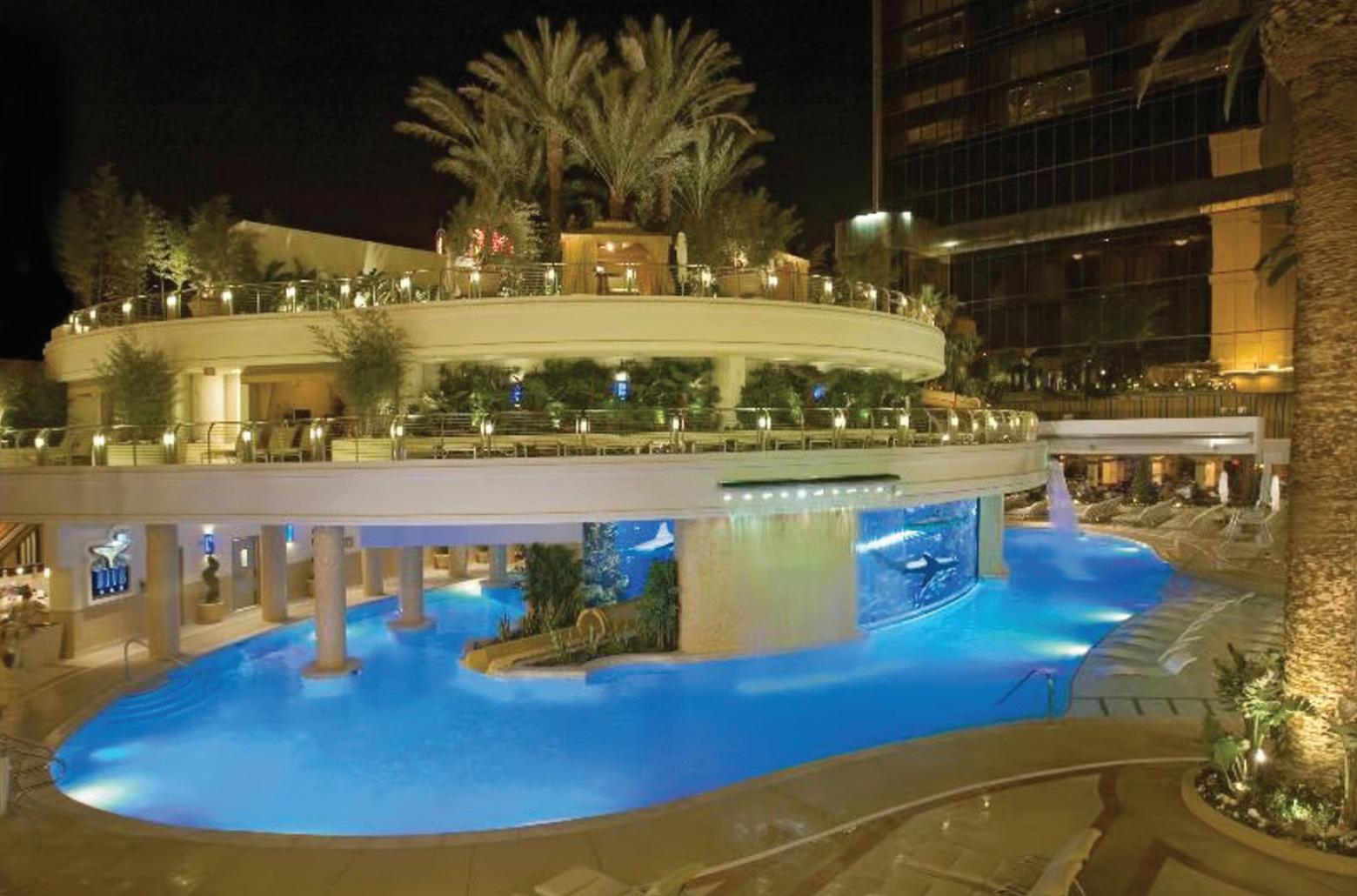
The property also actively supports citywide efforts to boost visitation, partnering with the Las Vegas Convention & Visitors Authority and the Fremont Street Experience to create engaging programs and events that draw people downtown. Its central location on Fremont Street remains a strong advantage, offering easy access to entertainment, dining, and nightlife that appeals to both first-time visitors and returning guests.
Is the Golden Nugget active with corporate social responsibility? If so, how?
Golden Nugget is deeply committed to community engagement, with a volunteer culture that’s embraced across the organization. Team members actively support a range of causes – from veteran services and local schools to food insecurity and disaster relief. One standout initiative is the cash-out kiosk program, which allows guests to donate unused slot credits to charitable organizations. Through this program, Golden Nugget contributes to national efforts like oceanic research via OCEARCH, while also responding to urgent needs such as disaster recovery. This hands-on approach to giving back reflects the values of both the staff and the guests, creating a meaningful connection between the property and the communities it serves.
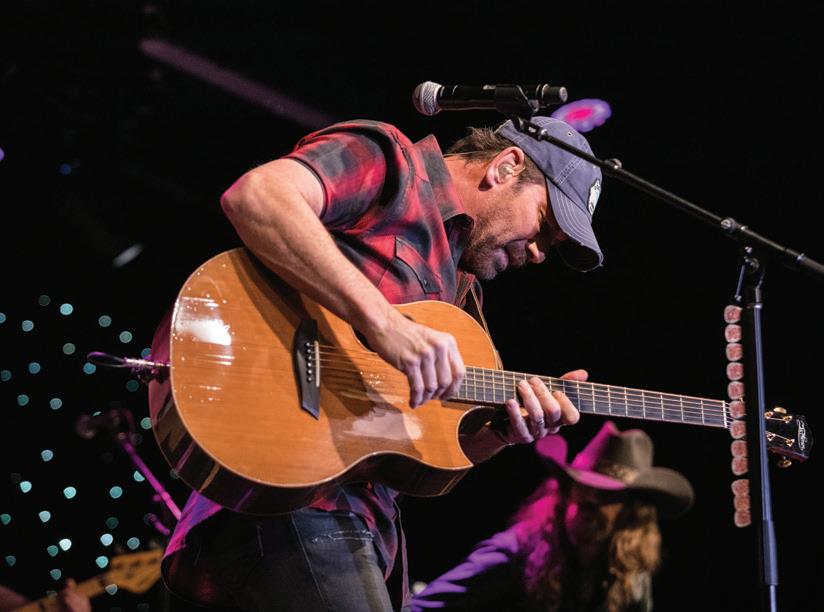
What can we expect from the Golden Nugget in the coming years?
Looking ahead, Golden Nugget remains committed to evolving as a top-tier destination for gaming, dining and entertainment. Reinvestments in the property and casino floor will continue, while integrating new technologies that enhance the guest experience. We will continue to focus on the personalized service that guests have come to expect. By balancing innovation with our core values, Golden Nugget aims to deliver experiences that are both exciting and memorable, to ensure guests feel valued and inspired to return.
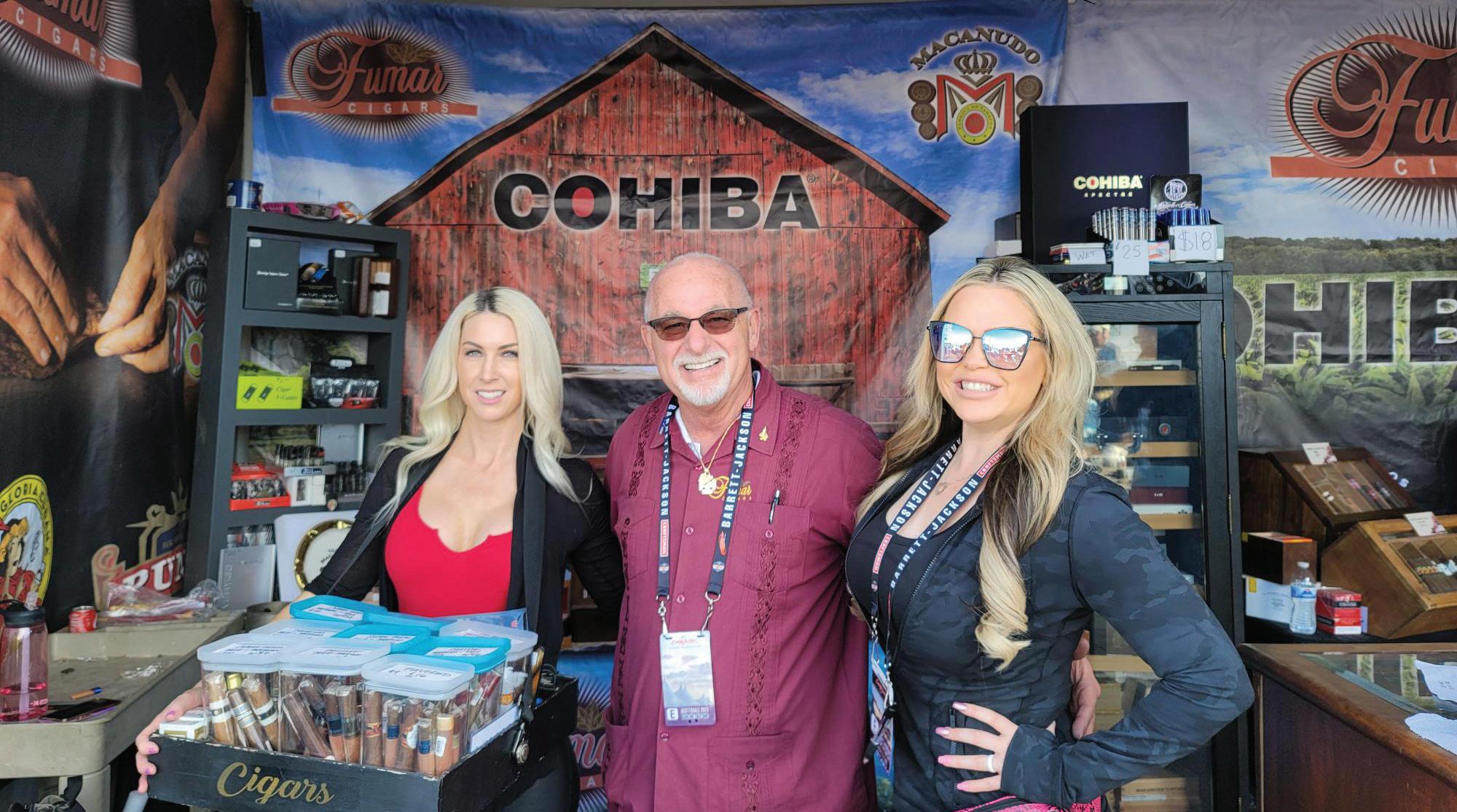
From five-star resorts to military bases, David D. Haddad has elevated the cigar from indulgence to art form.. By Peter White
David D. Haddad is a man of many parts. In addition to being founder and president of Fumar Cigars, he is the founder of the Friends of Freedom. He’s also a cigar historian and humanitarian. Haddad met recently with Casino Life Publisher Peter White. Their conversation has been edited for clarity and length.
You’ve been called a “showman with a flair for renaissance,” someone who brings art, history, and hospitality together through cigars and stories. How do you define yourself today, collector, entrepreneur, historian – or something else entirely?
I am a bard, a storyteller, a historian, a builder of companies, a patriot and a luxury-lifestyle advocate. Through the history of Fumar Cigars, it was always apparent to me that there was an opening for the cigar business within the luxury-hospitality experience.
In 1995, when I began – after 18 years of being in luxury hospitality – developing concepts, learning management and scaling skills, I was looking for a more entrepreneurial start, a fresh beginning where I could make my mark within these two historic industries.
It was the start of a cigar boom in the early Nineties. There was an exuberance of desire. A new feeling of luxury emerged, and the hospitality industry was ripe for elevation and innovations in small corners. At that time, there was no service for the cigar world integrated with the demands/opportunities within the luxury experience. Knowing the world in which I was seeing this gaping hole – as a longtime hospitality industry student – I saw there was a window to act. Previous to my entering this adventure, a hotelier or premium-golf-club leader, had to send someone to a local cigar merchant and ask what was good, or to buy what was requested by a guest. The
hotel/golf club had no experience or institutional knowledge about the proper maintenance and proper presentation or salesmanship, so as to not lose money on each purchase. If they could break even, they thought they were doing the guest a favor and considered this their standard approach.
I turned this into a profit center. I offered a simple solution. Knowing who was important in these venues or the person in charge of the guest experience –usually the F&B director – I presented a program to provide a great on premise service, usually on consignment. This included a custom-built, worldclass humidor, designed and created by Fumar, matching their decor in their most high-traffic lounges and patios.
We would come weekly or monthly depending on their usage. We would manage and maintain our equipment, teach, train and educate their staff on how to sell their products. This included how to cut, light, and present their guests with an elegant and oldschool, traditional cigar service. This made each guest feel great and special about this small but essential piece of their luxury experience.
What first drew you into the world of cigars and fine spirits over three decades ago?
I had a bit of experience with cigars at one of the finedining groups I was consulting on in the early Nineties. I had very little real exposure to the current world of cigars and spirits when I began. That was not the passion. Building and creating, changing the dynamics of both industries became my mantra. I learned, trained and educated myself.
I read everything I could find about the story of Americana through the lens of the tobacco industry. I was always fascinated by the story. I knew that most people of means loved to learn. Most folks crave knowledge and the best way to share information is through storytelling.
I read books written 100 years ago about the history of smoking, learning the legends, the lies and the lore of the world of cigars, their origins, the background. I also learned about agronomy, the passionate makers of the greatest cigars in history, and any other sources. This included traveling and experiencing the industry from its roots.
Starting in 1999 and through 2007, I spent two weeks a year in Cuba. My mentor in the growing of legendary tobacco was the one and only Don
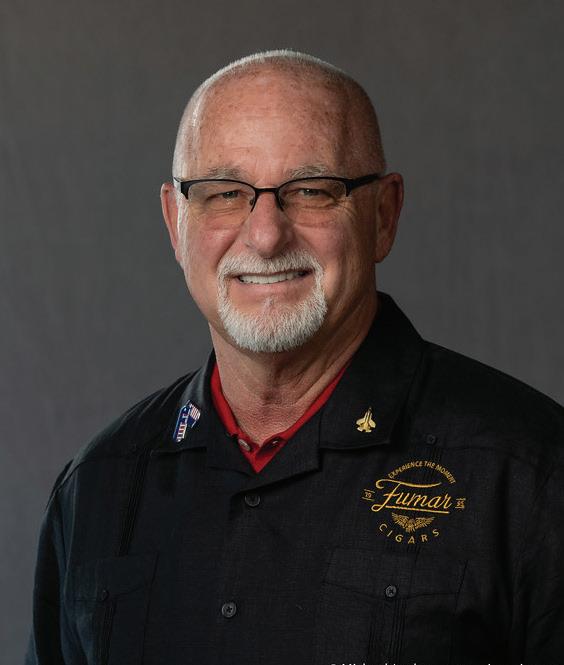
Alejandro Robania. He was an eighth-generation farmer in the growing area of San Luis y Martinez, in the Pinar del Rio region of Cuba. His insights to the land, the feel, the look, the smell and the nurturing of the tobacco became a base load for my education.
You often use the phrase “experience the moment.” How does that philosophy guide your approach to cigars, hospitality and life?
During my first years in the business, I acquired hundreds of boxes of pre-embargo Cuban cigars and Prohibition-era spirits, adding these unicorns to our most-exclusive menus. When asked why we would put a $2,000 cigar on a menu – an outrageous amount for a cigar – it was to allow the most exclusive guests in the world a chance to experience the moment. Why? People go to world-class resorts and destinations to do things they don’t do at home. The chance to go back in time, maybe 50 to 80 years, gave the guest an opportunity to do something they never could anywhere else. This became the legend for the resort, benefitting it by becoming a permanent memory for the guest.
It all started when I asked thousands of people during cigar events and cigar-rolling shows to share with me the greatest cigar they ever had. After thousands of guests shared their individual stories, I came to the conclusion they all gave me the same answer. Few knew the cigar they smoked. That is
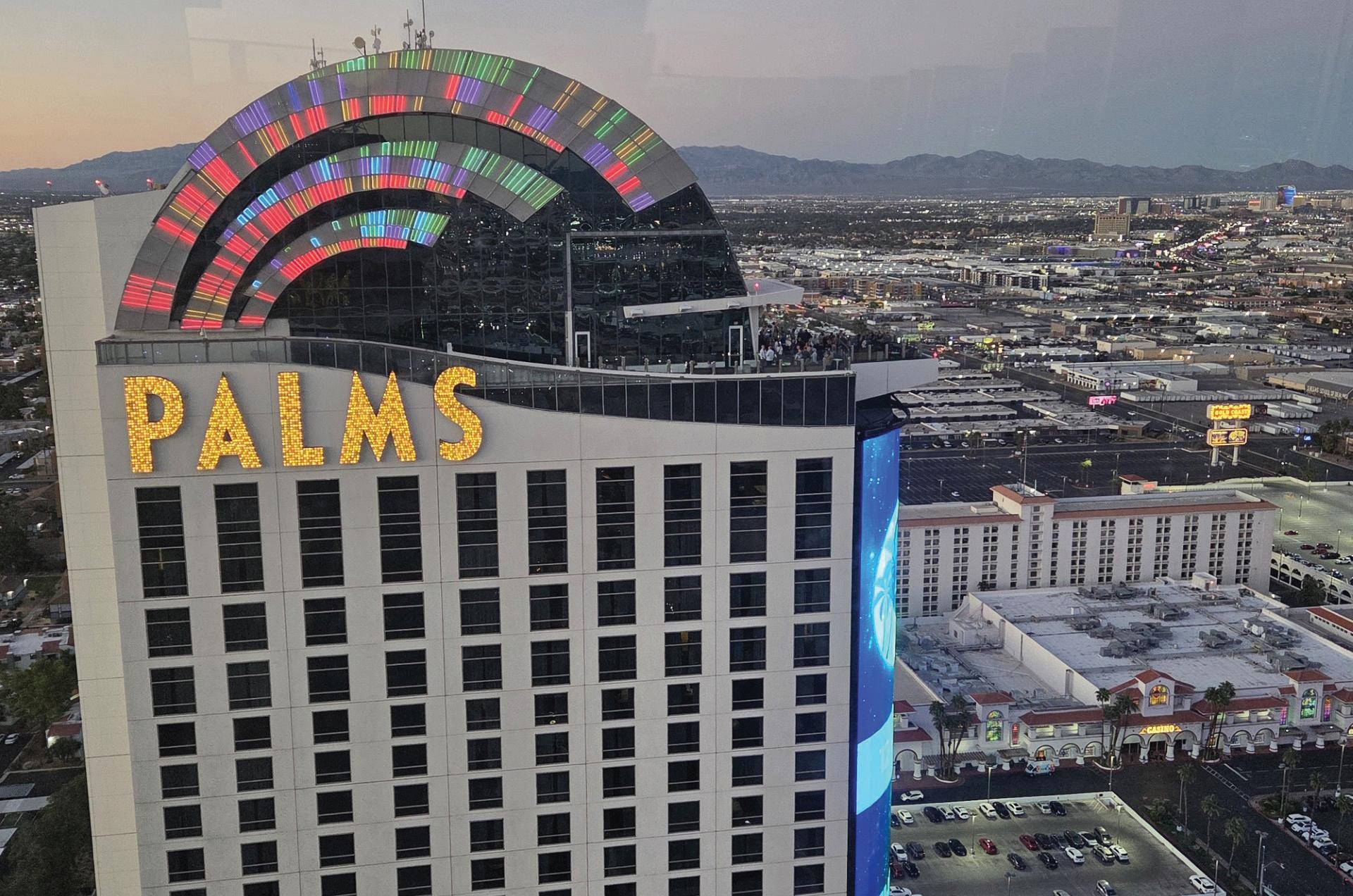
because it wasn't about the cigar: It was about the moment. This led to the first parable of cigars: The love of a cigar comes from the time you keep with it.
You introduced a completely new business model to the cigar industry, merging luxury hospitality and event production. How did this innovation come about and how has it reshaped the way the industry operates today?
After starting Fumar in 1995, it was early 1997 and I found myself in a wheelchair. I had been diagnosed with a very rare circulatory disease called avascular necrosis, killing the femur bones in my legs. The doctors told me I would never walk again. With few options given to me by the Mayo Clinic, I went to Duke University for experimental surgery. An extremely painful option was presented to me. Over the next two years, I had to build Fumar from my hospital bed, my couch and a wheelchair. I was broke. I met the girl of my dreams prior to being
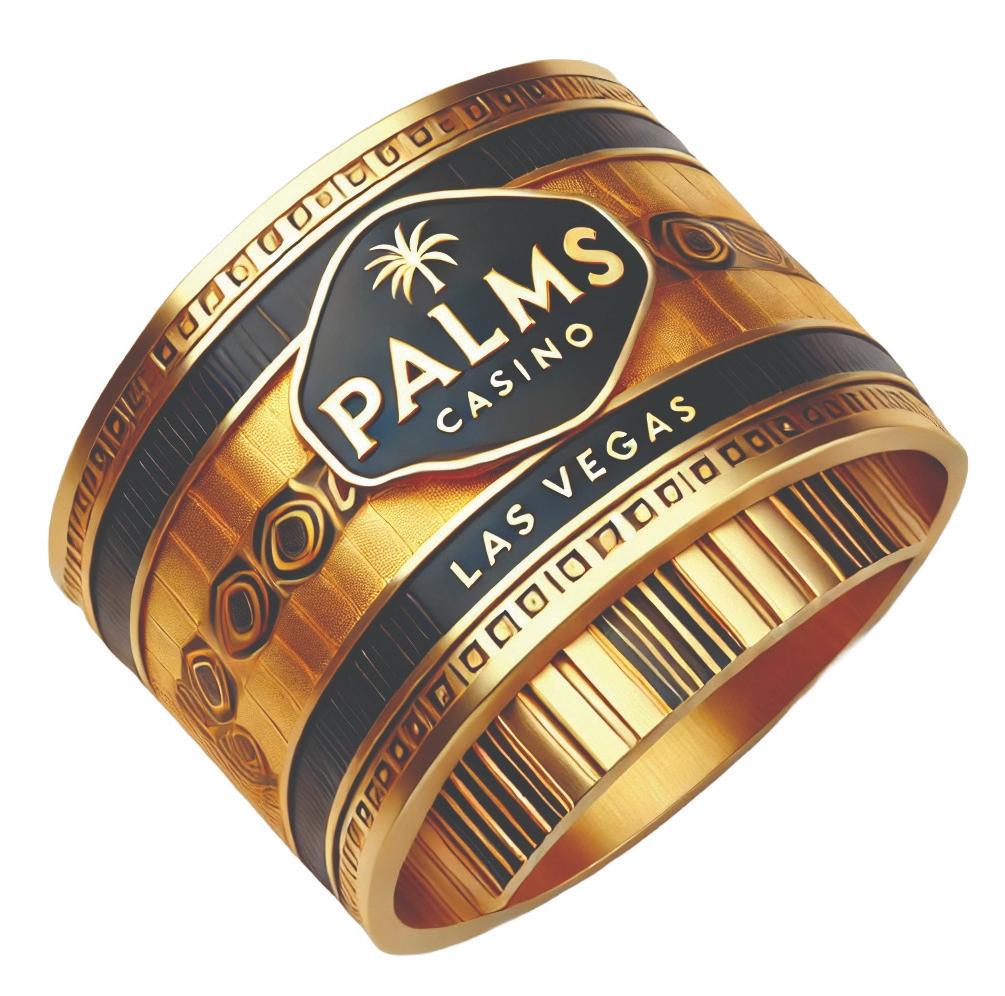
diagnosed. After five surgeries and so so much pain, she was still there. I married that girl, Judy. We had a family. We built the company together. I came to several conclusions after this experience: Nothing happens until it’s time; a true entrepreneur has no Plan B; desperation is the best motivator. The new business model was the result of all of this, using my natural skills to create an experience for the guest no one had ever done. The cigar-event side, using cigarrolling skills matched with the storytelling education and the gift of gab, made for a secret sauce. No one had ever done that. Who knew? I didn’t. It just made sense. Now we do over 500 cigar events per year. The industries, both cigar and hospitality, had never seen what we were presenting, either in our on-premise service nor our event-production capacity. Currently, we do over 1,000 custom-labeled cigar programs per year, using over 600,000 cigars we make. In our on-premise service with the major manufacturers’ cigars and our rare collectibles, we sell almost another 500,000 cigars per year.
Fumar Cigars provides services to more than 450 luxury resorts across the country including some of the most renowned casino destinations. How did your partnership with casinos begin and what do you think makes cigars such a natural fit in that world?
Our journey started in Arizona with the Native American tribes. Wild Horse Pass, Fort McDowell and Talking Stick Resort were our clients. They were modest successes. As we grew, I avoided the Las Vegas casino world. The word on the street was they were hard to work with, paid slowly and were demanding. They also were all about price. As a revenue stream, the amount of money we could generate at a casino was merely incidental to them. They were less interested in the ‘wow’ factor. For their whales, they tended to have under-the-counter Cubans (mostly fakes). Most of the Vegas properties also had malls attached like the Forum Shops, where other providers had built cigar stores, like Davidoff. There was little appetite for my programs. In the last handful of years, we have become consultants to hundreds of resorts, and now we are being asked to elevate and create cigar venues and fulfillment. Peter Acero from the San Manuel tribal nation, asked us to build out Yaamava’ Casino in Highland, California, then at the Palms in Vegas. We also added Circa in downtown Las Vegas. In 2010 year we added Grand Sierra in Reno. In Florida, we have two others. More are coming over the next two years.
When you design cigar programs for high-end casinos and resort properties, what elements do you focus on to elevate the guest experience? Great products, great service and a neverending supply of the menu. Consistent service and management in making the cigars always perfect. Secondly, teach, train and educate the staff on proper service. It should be elevated and elegant, making the guest feel special. Thirdly, convey a sense of urgency. Now is the only time that counts for luxury hospitality. Make sure you are prepared to deliver the most unique and original offerings in a timely basis. Tell a story, make a dream, deliver the experience. Finally, for every dollar in revenue for a cigar sale, the venue adds approximately $10 in additional liquor revenue. This makes the property very happy. Cigars are a force multiplier.
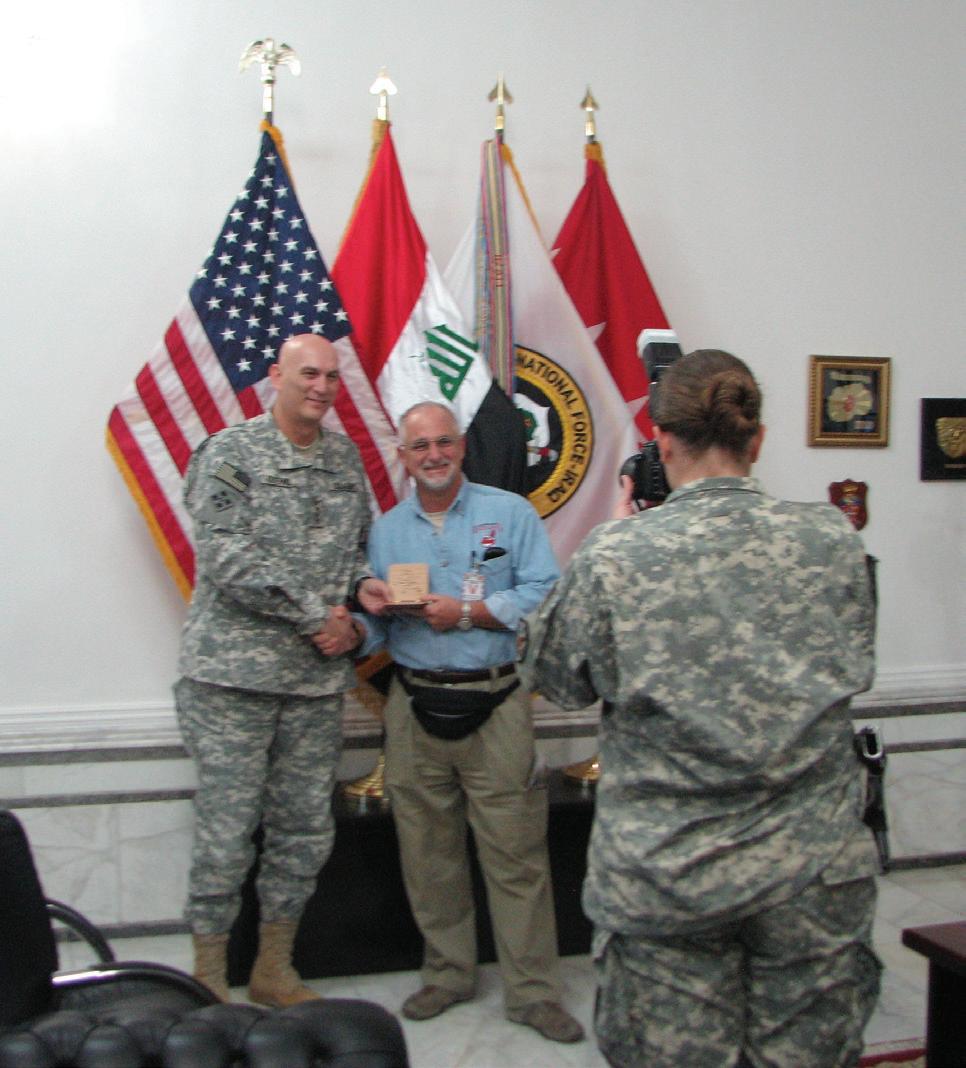
Casinos have always represented a certain lifestyle: glamour, risk and luxury. How do cigars fit into that emotional landscape for guests and high rollers alike?
The entire premise of Las Vegas and other casino areas is to experience excitement and one-of-a-kind experiences. Glamour, risk and luxury are all hallmarks of the cigar industry, for centuries
From your experience, what differentiates a great casino cigar lounge or terrace from a merely good one?
People. People. People. Like any luxury experience, the staff and the environment pair to make the moment. That is why our training-and-education element for the staff in selection, proper service, and presentation is critical. Those that use us to our fullest are the most successful.
Cigars and conversation seem to go hand in hand. Why do you think cigars have such a unique power to connect people, especially in the business and hospitality world?
The year was 2009 and I was serving on the board of directors for the USO during the war. I had over 500,000 cigars donated to the troops deployed in both theaters of the war by this time. Dave Petraeus,


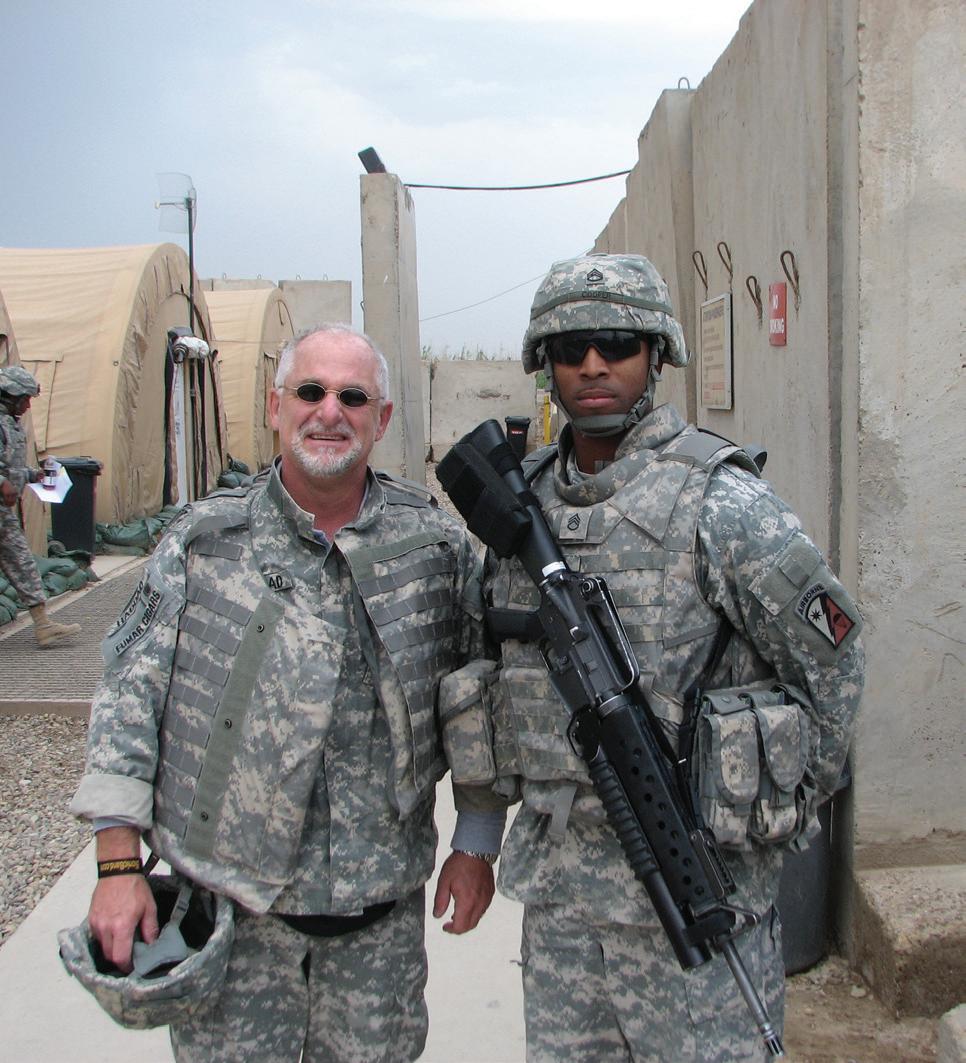
The key to all these successful programs is a welcoming environment. In the last 15 years, the casinos have restricted cigar smoking from table games while allowing cigarette smoking to continue. It’s as if cigarettes are somehow more acceptable compared to the aroma of a fine cigar. In addition, a cigar lasts for an hour, which captures the cigar smoker at a table longer – adding to the revenue streams of the casino! The “unwelcome nature” of this seems at odds with the facts. The next generation and the prior generations all just want to have a comfortable, welcoming atmosphere to enjoy, converse, and relax.
In 2003, you founded Friends of Freedom, which has delivered over 1.4 million cigars to deployed service members. What inspired that mission and how did it evolve into a national movement? What began as a business opportunity became a passion. I live by six principles instilled in me by my father: commitment, sacrifice, courage, integrity, citizenship and patriotism. A love of the country, found by a first-generation immigrant from Lebanon, says, “If you do well, you must do good.”
I acquired the logo rights for the military branches in 1998, attempting to sell branded cigars on military bases. Unfortunately, the bases had BX/PX
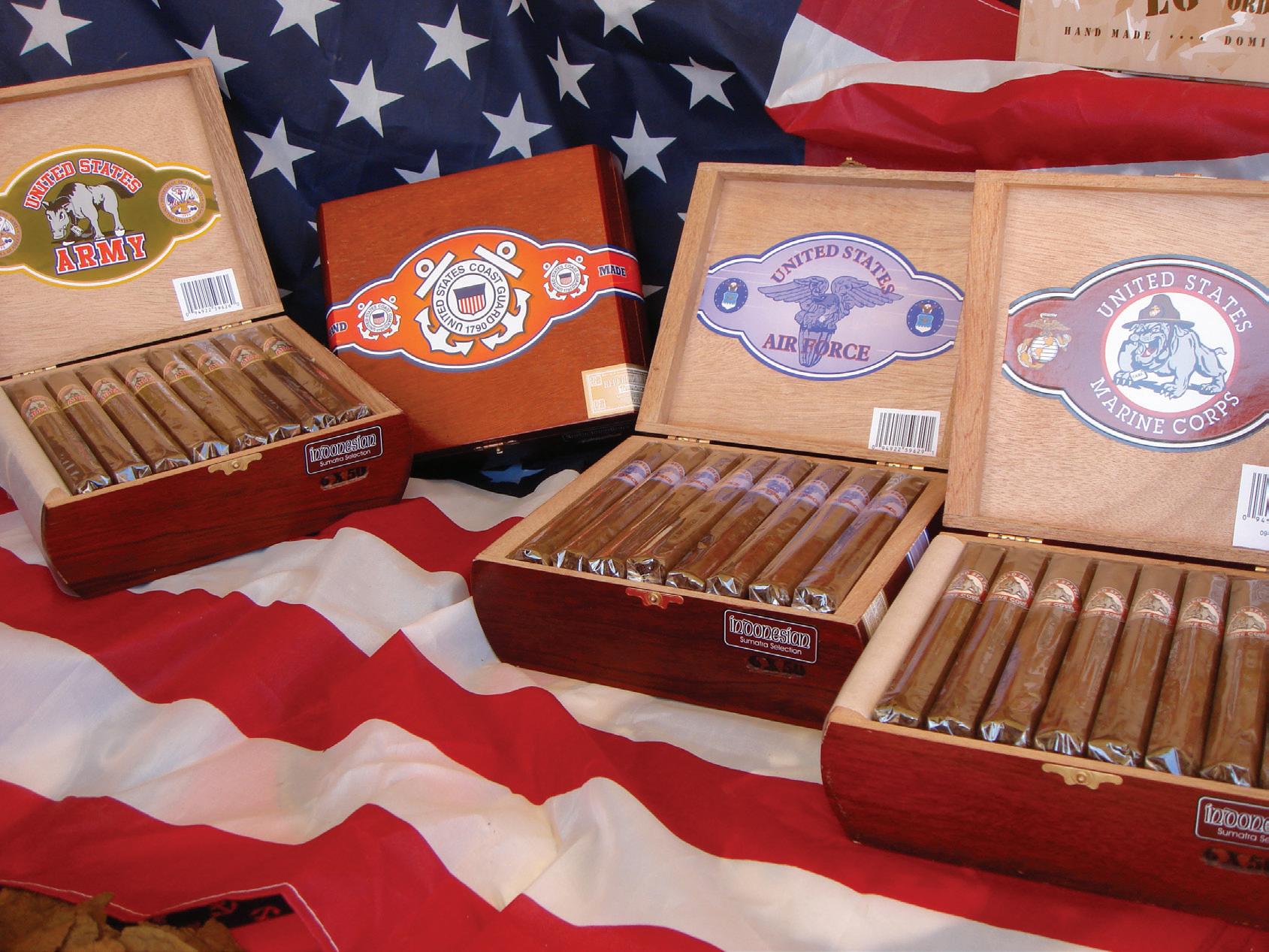
commissaries that were geared for the lower ranks.
My $5 cigar was the wrong product. they wanted five cigars for $1. After 9/11, my wife and I decided we would never sell one again. Instead, we would only donate them to our troops as our way of giving back.
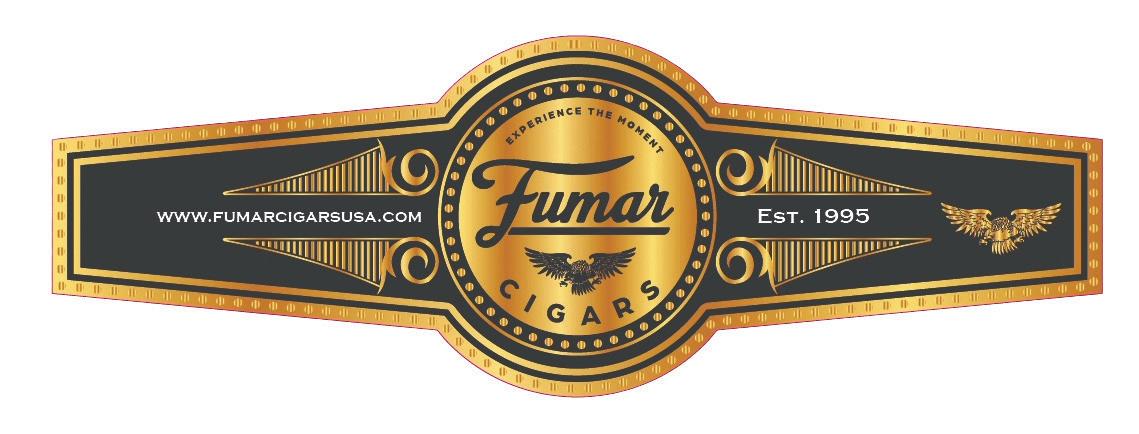
wheelchairs, cars to needy families while their family member was deployed, etc.); translating military service into civilian success (work, PTSD support). Currently, we are doing amazing programs which can be seen on our website: www.friendsoffreedomusa.org
Starting in 2003, we began working with the Gold Star and Blue Star Moms, providing gift packs for their shipments to the deployed in their care packages. Word got around. In working with three different presidents, we made amazing strides in relationships and support. The demand got stunningly high, requiring Fumar staff to do literally hundreds of packages per month. I found myself on a platform where I could help, support and do my part to put smiles on the faces of those who were in the trenches. Now nearly 1.5 million cigars into the program, Friends of Freedom 501c3 has dozens of support programs that stem from our founding principles. Our objectives were: morale programs (cigars and battalion picnics, etc.); compassionate programs (motorized
How important is it to you that the cigar community, including casinos, continues to play a role in honoring veterans and supporting causes like Friends of Freedom?
We chose to look for a way to make the lives of those wounded a bit brighter. First with Sheldon Adelson, then with MGM leadership, we secured hundreds of room nights, got a helicopter company to provide transportation, got American Airlines to provide us a 757, and pulled together some amazing entertainment, including my friend Clint Black and a dozen other musicians. We wanted 150 severely wounded guys and gals from Walter Reed Hospital, Brooke Army Medical Center and their significant other to come
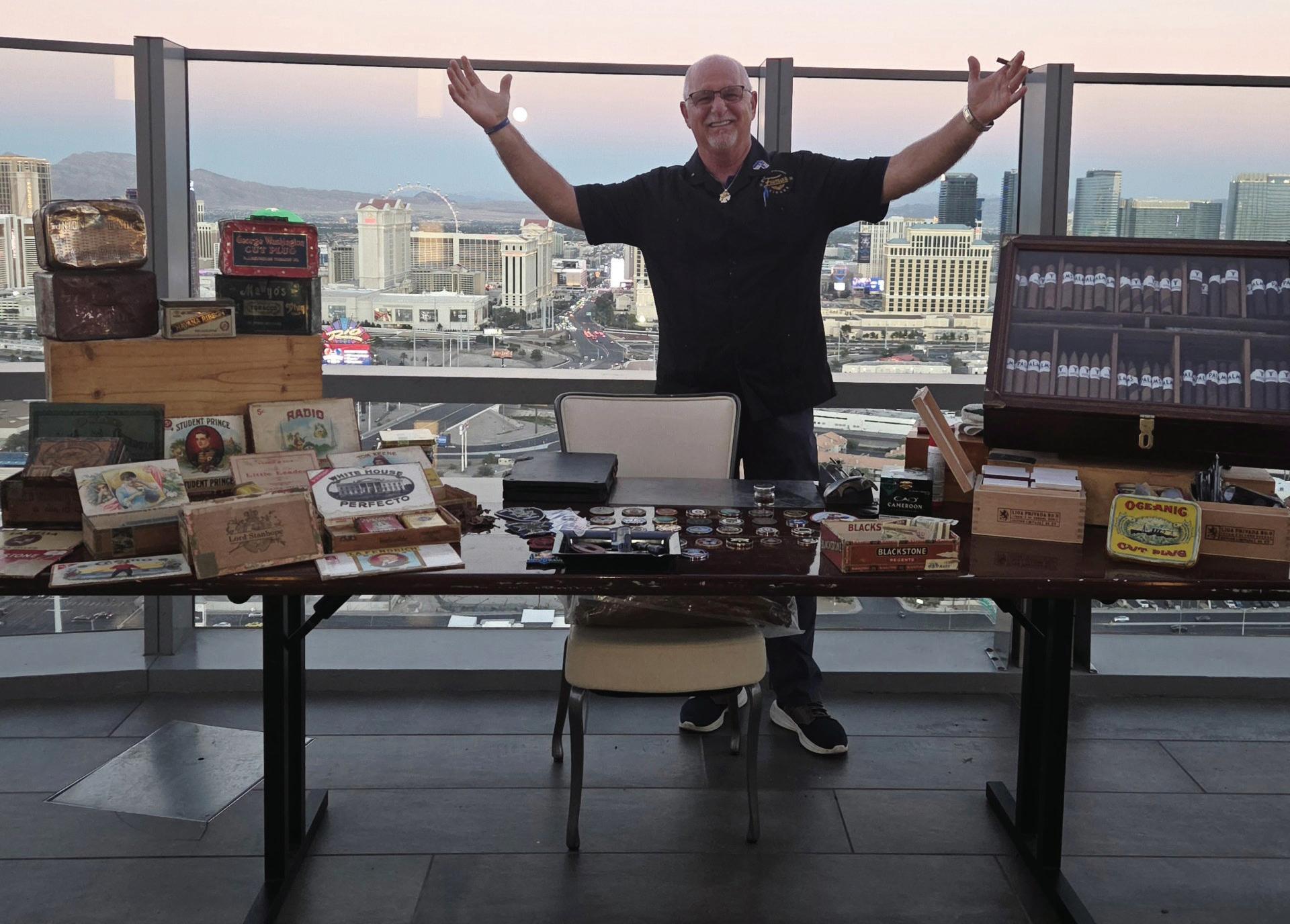
to Vegas for a four-day, get-out-of-the-hospital weekend over Veterans Day. Seventeen years later, the program still continues. The only way a great program of giving back works is to invite leaders to show their love of country, use their resources, to make just a day better for those who sacrifice for our freedom. The leadership at MGM considers this program their highest priority.
Your late wife Judy was a major part of your life and work, and now you’ve remarried Julie. How has family supported and grounded you through decades of travel, business, and philanthropy? It was a few years after the diagnosis of my femurs dying that I discovered the true meaning of sacrifice and courage. I look back on that moment when the doctors told me I would never walk again, the struggle and pain to recover, as my savior. Due to the nature of the surgeries, extreme pain and agony were the standard for years. Once that passed, I realized the struggle was my liberation. It freed me of my past, made me much humbler and more thoughtful, and enabled me to appreciate the sacrifice others would have.
In 2018 through 2020, I had nine back surgeries to repair the damage from my deployments to my spine, making me struggle again while building a company and family. My wife of 23 years, Judy, was diagnosed with stage-four cancer in the summer of 2018, while I was in surgeries. Her death march was on. The surgeries, chemo and radiation took their toll, and she passed away in April of 2020 during Covid. On her death, she left me the final gift of our life together. I finally knew the difference between big shit and small shit. It's all small shit.
With this loss, I discovered compassion and understanding for those around me. I was a better dad, a better boss and now, with the new love of my future, Julie – an angel that saved my heart and made me whole again – a better husband. Both Judy and Julie have been my rock. Judy was very wary of my adventures to the Middle East and crossing the country a thousand times building Fumar. But I managed to keep my arms around the family. I have three children, each a point of pride. Each with their own future.


What advice would you offer to those in the casino and resort world looking to create authentic luxury experiences that truly connect with guests?
Memories make for relationships. It cannot be the same as anywhere. Creating an emotional attachment for a venue to the guest is the soul of hospitality. It's about the people. Individuals. Not the masses. Cigars aid in this for a certain population. But, as a whole, the personal connections that the staff can mark on with their guests will make the day for any individual. It is not hard; it has to be sincere. Marry their past emotions to a current environment.
And finally, what’s next for Fumar Cigars and Friends of Freedom? Are there new ventures or collaborations on the horizon, perhaps within the casino-resort sector?
We are growing at an amazing rate of over 20 percent per year. I am sure there are more casinos and resorts we will approach or be contacted by them. We have several opportunities on the drawing board. My hope is that this article appeals to the luxury approach to lifestyle for some of the casino operators. Elevate this little corner into a memory for the guests.
Events are the biggest driver of revenue and profits for us. We are preparing for a growth spurt of 30 percent in our 500-plus events we do per year. For me, it is about winding down. Taking time with my family, which has sacrificed for me to build this company for three decades. Our next leadership evolution is under way with Managing Director Matt O’Brien at the helm. He has been with me 18 years and it is time for him to lead. I will be consulting for the industry. We are currently working on three new venues, building clubs and lounges across the country for other folks. As a speaker, I hope to continue leading young minds into new ways of looking at the old.
The rarest cigar you’ve ever smoked?
A custom-made cigar by Alejandro Robaina from the field in 2,000. One of one.
Your favorite cigar and spirit pairing?
I am a bourbon guy, love my brown water with a Hemingway cigar by Arturo Fuente. The perfect pairing is actually anejo rum.
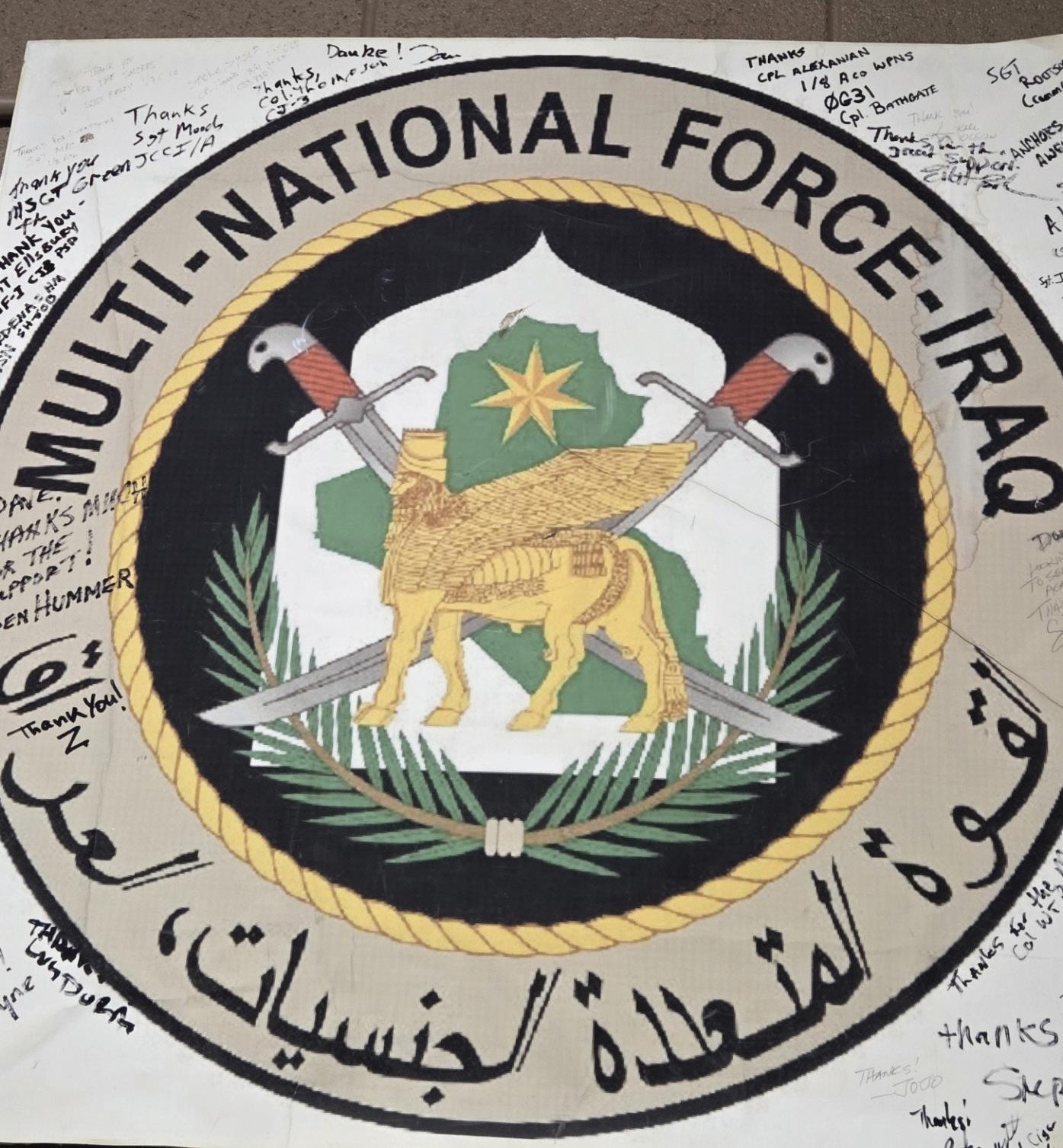
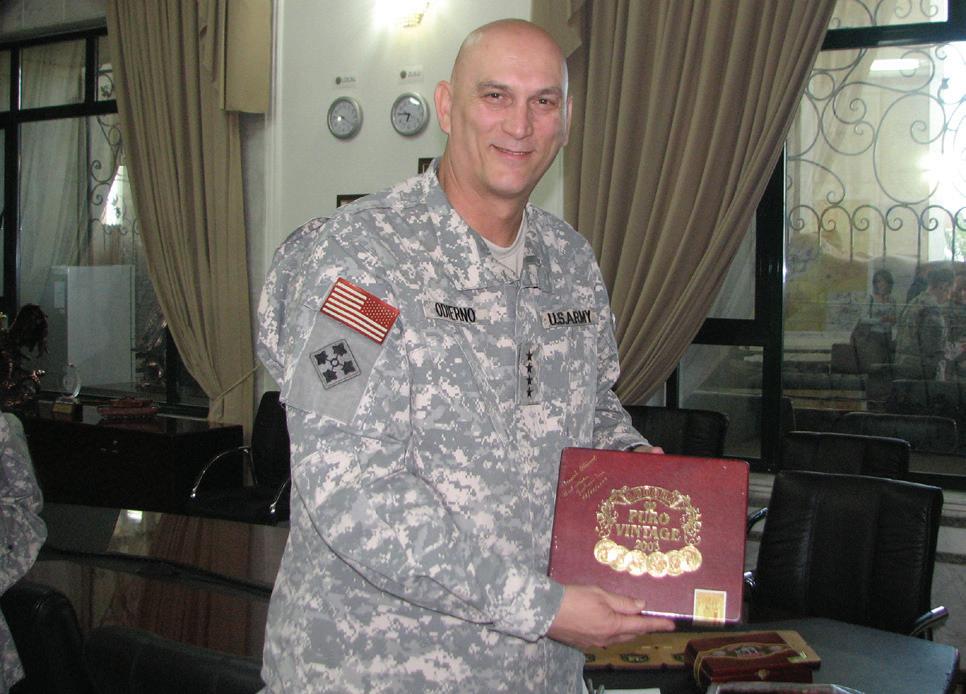
The best resort or casino setting to enjoy a cigar?
Lady Luck Nemacolin in southwest Pennsylvania. Best cigar room anywhere.
One historical figure you’d love to share a cigar with?
Winston Churchill, with an add-on of U.S. Grant.
A quote or philosophy that defines your life?
“Have a Cigar” by Pink Floyd: “Come in here, dear boy, and have a cigar. You’re gonna go far, you’re gonna fly high, you’re never gonna die, their gonna love you.”
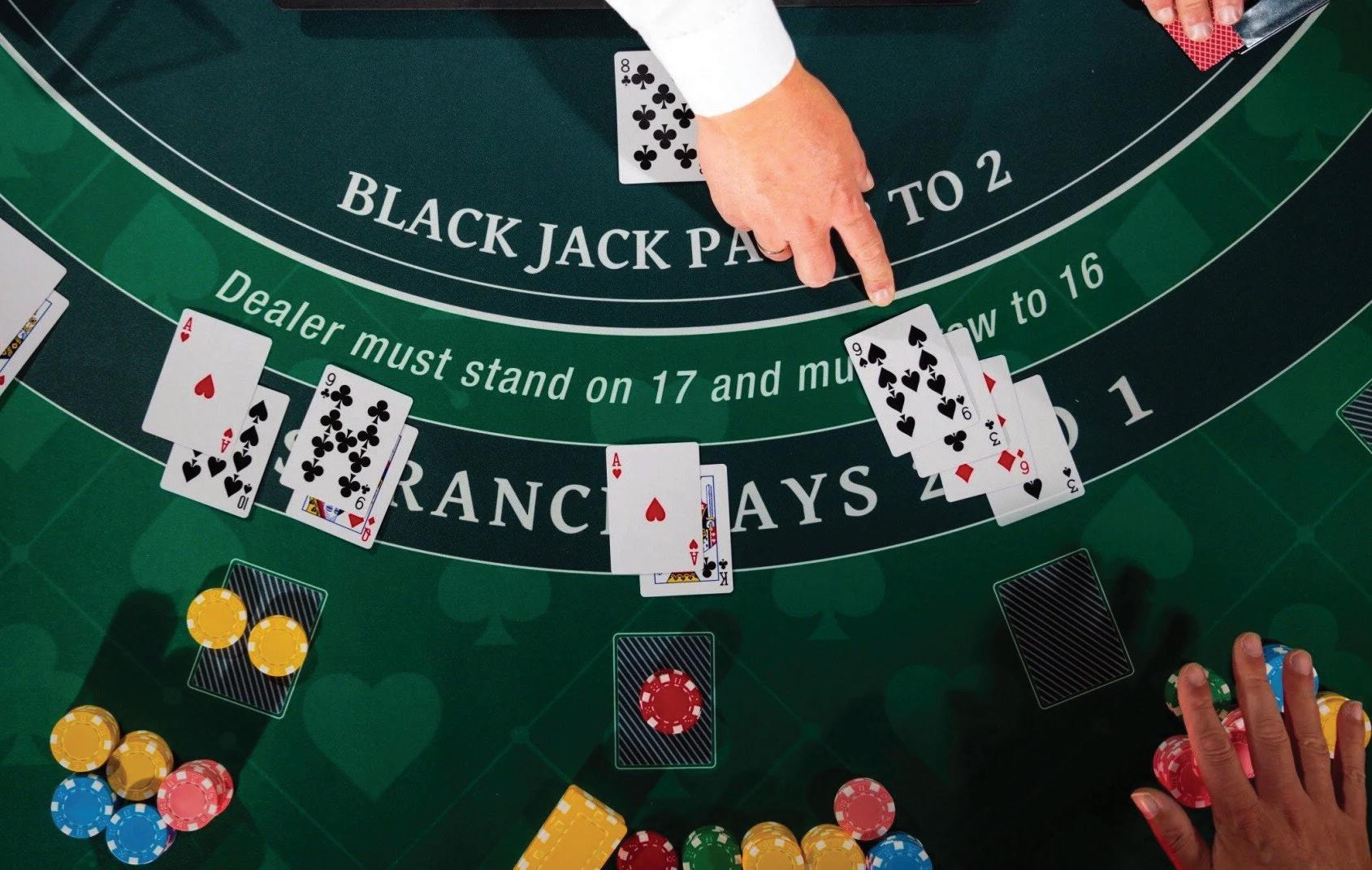
What every casino does not want you to know. By Al O’Grady
Blackjack is a simple game. That is part of its appeal. Whoever gets closer to 21 without going over, wins. We make it more complicated than it really is.
For the beginner, using the ace as either one or 11 tends to confuse them. Whether or not to hit on 16 confuses the amateur even more. If you are one of these people, do not worry about it. Many so-called advanced players get it wrong too. By looking at basic strategy charts and doing a little homework, you can master basic strategy very quickly.
Blackjack also has the allure of making money since it has been romanticized in books and movies. When played properly, blackjack has the best odds for the player after baccarat. However, if a player can count cards, blackjack is the only game in their favor. This makes the casino very nervous. It simply does not want you to know how to do this. This is where I come in.
Many believe they simply do not have the mental faculties to count cards. They feel you must be some type of savant or math geek. This is simply not true. Answer this, what is 1+1? Pretty insulting, right? Let’s continue, what is 1+1+1-1? Anyone in Grade Two can do that. How about this one: What is 1+1+1-1-1+1+1+11-1+1+1? Please tell me you got four as your answer. Finally, I am going to throw a curve at you. What is 1+1+1-1-1+1+1+1-1-1+1+1 and then divide by two? If you came up with two, congratulations. You successfully completed your first step to becoming a card counter.
The math is not difficult. It is simply adding or subtracting one and then dividing by a number. However, many are intimidated by math and say they cannot do it. It becomes a self-fulfilling prophecy that if you say something to yourself repeatedly then it becomes your reality whether it is true or not.
So when do you add or subtract? Simple. Whenever you see a 2, 3, 4, 5 or 6 you add one. Whenever you see a 10, jack, queen, king, or an ace you subtract one. The 7, 8 and 9 are neutral cards and have zero value. This cumulative value is known as the running count.
Now comes the tricky part. Ask the dealer how many decks they are playing with. Most casinos play with either six or eight decks. Look at the cards in the discard rack. How many decks are remaining? You divide that number into your running count. This gives you what is known as the true count.
As an example, if your running count is nine and you estimate there are three decks remaining, your true count is three. Your true count tells you what to bet. If the true count is one, zero or a negative number, you simply bet the minimum. If your true count is two or higher, your bet is the true count times the minimum.
As another example, if your true count is plus three and the table minimum is $25, you bet $75. The theory is simple. You bet more heavily when there is a greater concentration of 10s left in the deck and you bet the minimum when there is a greater concentration of low cards.
This is a very basic card-counting system. There are others. Try this at home. Take a deck of cards and turn them over one by one, keeping track of the running count. When you finish the deck, you should be at zero. If you make a mistake, try again. This is practice and it costs you nothing. Start off slowly and aim for accuracy.
Once you become accurate, work on your speed. You should be able to go through the deck with 100 percent accuracy in under 30 seconds. After reaching this level, do two cards at a time. You will see that a high card and low card will cancel each other out, and you will fly through the deck faster. Doing it in the privacy of your home is one thing. Doing it in a live casino is another. Go to a casino to observe and practice. Do not play. You should do this when the casino is busy, to avoid suspicion. The casino will have many distractions like loud music, flashing lights, an attractive waitress taking your drink order, etc.
Once you feel you have mastered the art, try it at the table with the lowest table minimum. Once you
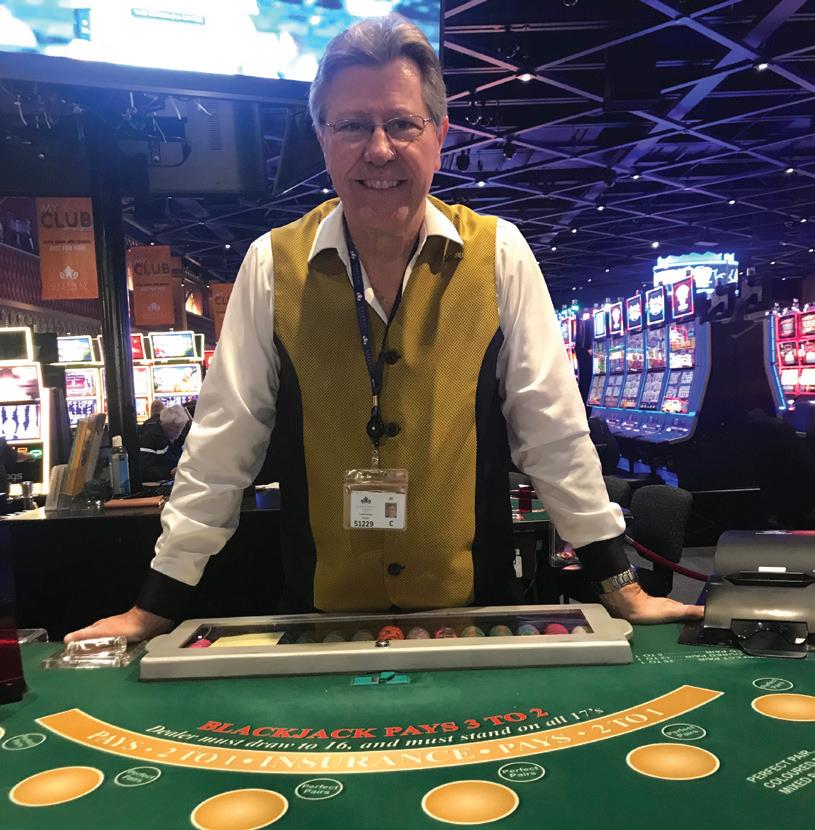
gain confidence and your craft improves, you can take this to a table with higher limits.
If you have visions of being a card counter, I hate to be the bearer of bad news, but more and more casinos are doing away with the traditional shoe, and are moving towards the automatic shuffler. With the automatic shuffler, the dealer puts the used cards back into the mix after every hand or every other hand, resulting in a constant true count of zero.
For aspiring card counters, you need to find a casino that still uses the traditional shoe. Good luck with that. The casino will say they use the automatic shuffler to generate more hands per hour, which is true, but in reality they have killed a second bird with one stone by eliminating the basic card-counting system.
The casino industry needs to be careful and not allow greed to overtake itself. By taking too many measures, it may scare away potential customers and negatively affect its bottom line.
In a previous article I suggested what the casino should do to allow card counters and still make it profitable for themselves. Get rid of the automatic shuffler, since no one likes it. Have the dealer kill half the deck. Have a no mid-shoe entry rule. Narrow the ratio of the table minimum and table maximum to either 4:1 or 5:1, not the current 20:1.
If someone wants to count, let them. This would truly make blackjack a game of chance for all.
Good luck at the tables and don’t forget to tip the dealer.





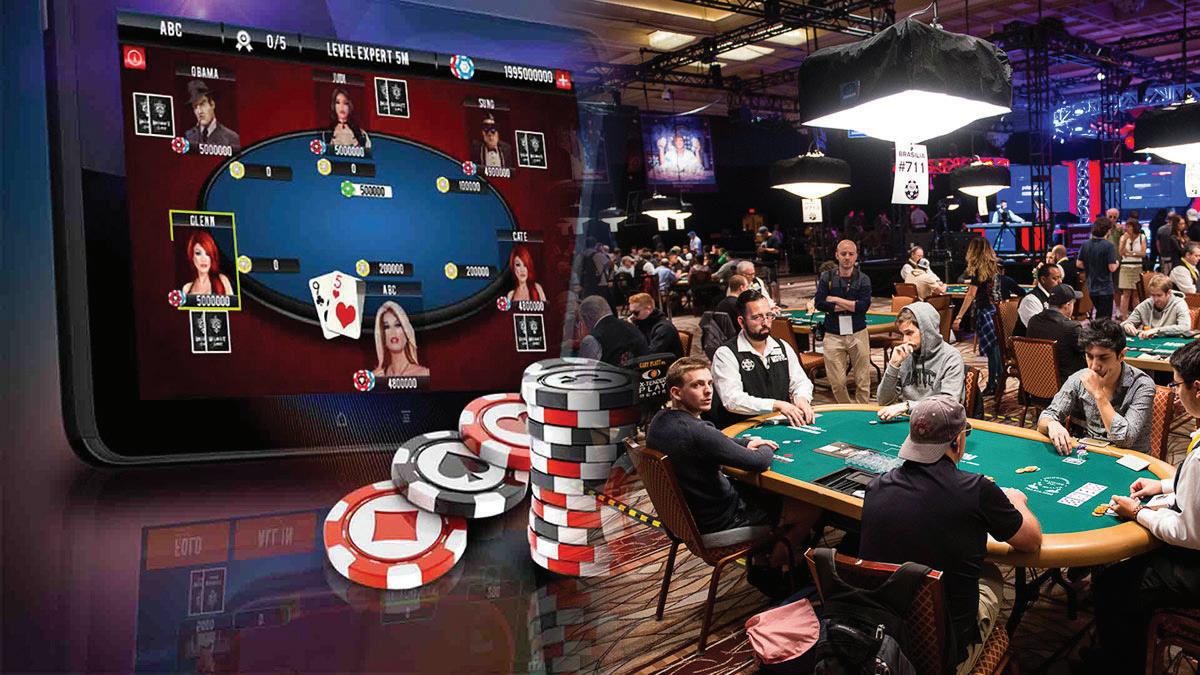
A personal investigation into the state of the game. By Edwin Ford
’ve been asked many times in recent years whether poker is “dead.” The question usually comes from two camps: those who remember the boom days of the mid-2000s and wonder why their local casino no longer offers cash games, and those who only see occasional headlines about giant online tournaments and think it’s all smoke and mirrors. To answer it, I decided to dig into tournament numbers, operator filings, streaming trends and casino economics. What I found is a story of divergence. Poker isn’t dead; it’s evolving into two distinct markets, each with its own heartbeat.
Let’s start with the most visible proof that poker is alive and well: the World Series of Poker (WSOP). In 2025, the WSOP Main Event in Las Vegas drew 9,735 entrants and created a prize pool of over $90 million.
That made it the third-largest Main Event in history, not some nostalgic throwback but a modern, global draw. The energy inside the Horseshoe and Paris-Las Vegas casinos this summer, apparently, felt more like a music festival than a card game. Entire corridors were lined with camera crews, online streamers and fans waiting to catch a glimpse of their favorite pros.
It’s not just the WSOP. The European Poker Tour (EPT), Asia Pacific Poker Tour (APPT) and PokerStars Caribbean Adventure (PCA) have all reported record fields in recent seasons. What these series have in common is strong branding and deep operator backing. People still want their shot at poker glory and the major tours are giving it to them on a global stage.
If the live-tournament scene is thriving, the online side is positively exploding. Companies such as

GGPoker, PokerStars and Partypoker have turned online tournaments into massive, multi-week festivals with guarantees in the hundreds of millions. GGPoker, for example, now runs series that span several weeks, offering buy-ins from under $5 to tens of thousands. Satellites funnel recreational players into the biggest events, giving anyone with a laptop the chance to win life-changing money.
I reviewed operator data and independent market reports, and the numbers are clear: The online poker market is not shrinking. On the contrary, mobile penetration, sleek user interfaces, and the integration of online and live events have driven consistent growth. More players are registering from their phones than ever before. The game is spreading beyond its traditional Western strongholds into Asia, Latin America and parts of Africa.
What’s more, the modern online poker festival is not just about playing cards. It’s entertainment. Twitch and YouTube have become poker’s unofficial broadcast partners, with streamers attracting audiences in the hundreds of thousands. They narrate their hands, explain strategy and create cliffhanger storylines that are every bit as engaging as esports. This streaming culture is a key reason why younger players are discovering the game.
Yet for all this success, one corner of poker has undeniably declined: the traditional cash game in brick-and-mortar casinos. If you walk through Las Vegas today, you see far fewer dedicated poker rooms than a decade ago. Many mid-tier casinos have closed their rooms altogether, reallocating floor space to slot machines and higher-margin table games.
The economics explain it. Cash poker is laborintensive, requires more space per player than other games and generates relatively low rake compared to the steady profit of a slot machine. From a casino’s perspective, poker simply doesn’t earn enough to justify the footprint. For players, this means fewer choices and fewer opportunities to sit down at a casual $1 or $2 game after dinner.
That being said, cash games are not extinct. They survive and even thrive in certain markets. Tourist hubs like Las Vegas, Los Angeles and Macao still run big games. Local communities in places like Florida and Eastern Europe keep regional rooms busy. But the era when every casino ran a bustling poker room has passed.
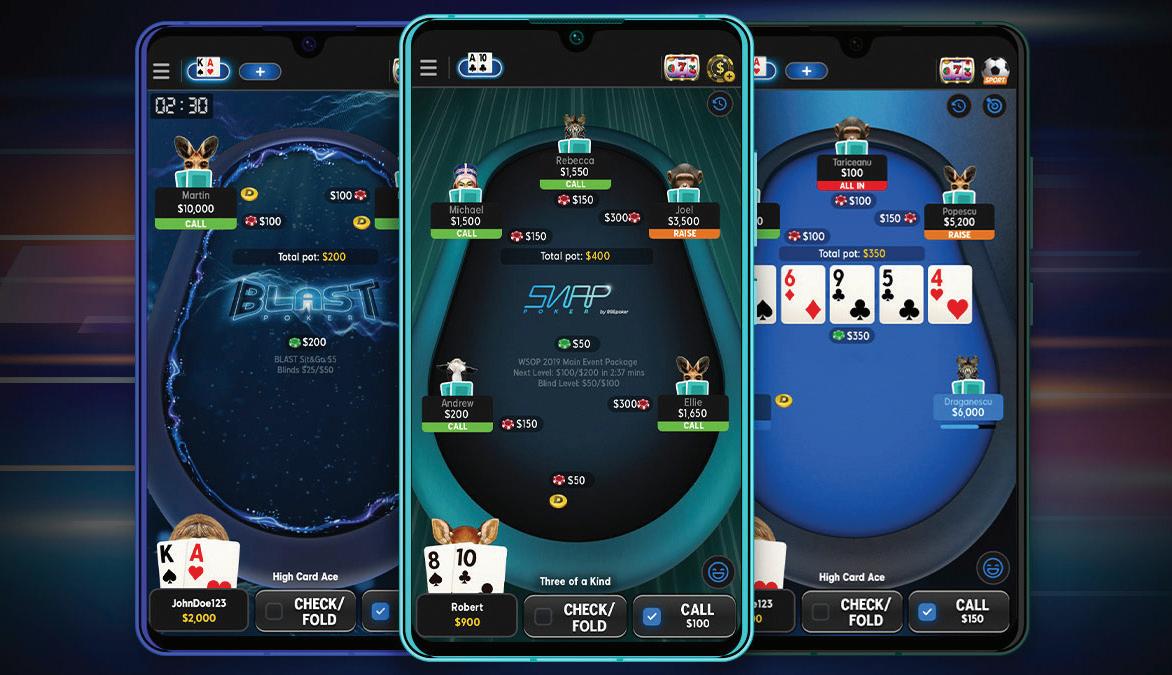
Five forces are shaping poker’s evolution:
1. Brand consolidation. The WSOP brand was acquired by NSUS (the parent of GGPoker) in 2024 for around $500 million. That kind of investment shows long-term belief in poker as a growth product. Consolidated ownership also makes it easier to market poker seamlessly across live and online channels.
2. Festivalization. Operators no longer sell poker as just “a game.” They sell it like a music tour. Multiweek series, leaderboards, and tiered buy-ins create spectacle and storylines. The casual player doesn’t just buy into a tournament; they buy into a season.
3. Streaming and influencer culture. Twitch and YouTube streamers act as brand ambassadors, turning poker into a watchable sport. Their reach attracts younger demographics who otherwise might never have touched a deck of cards.
4. Mobile access. Poker is now a thumb-swipe away. Improved mobile apps mean players can grind tournaments on a commute, in a café or during a lunch break. This ease of access has widened the funnel dramatically.
5. Regulatory shifts. In North America, the expansion of regulated online poker and interstate compacts like the MSIGA (Multi-State Internet Gaming Agreement) has improved liquidity. While growth is still patchy and highly jurisdictional, each regulatory win adds confidence, as well as market depth.
It would be wrong to paint poker as all roses. The industry still grapples with real problems. Online integrity remains a constant battle: The use of bots and real-time assistance software threatens trust. Operators like PokerStars and GGPoker have invested heavily in detection and enforcement but scandals still surface.
Regulation is also a headache. Unlike sports betting, which has enjoyed rapid legalization in the United States, poker has expanded at a far slower pace. Each state or country has its own rules, meaning operators must manage compliance in dozens of different jurisdictions. This fragmentation slows growth and limits prize pool potential.
Finally, poker competes for attention in a crowded entertainment market. Esports, streaming platforms and mobile gaming all pull from the same audience pool. Keeping poker relevant requires constant innovation.


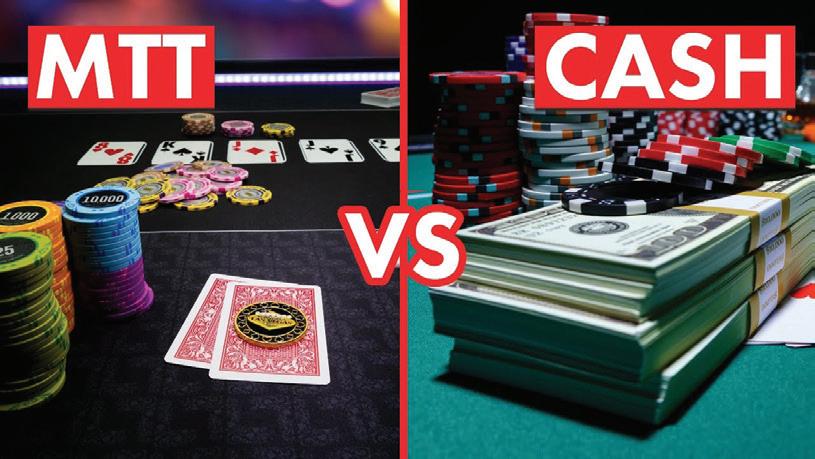
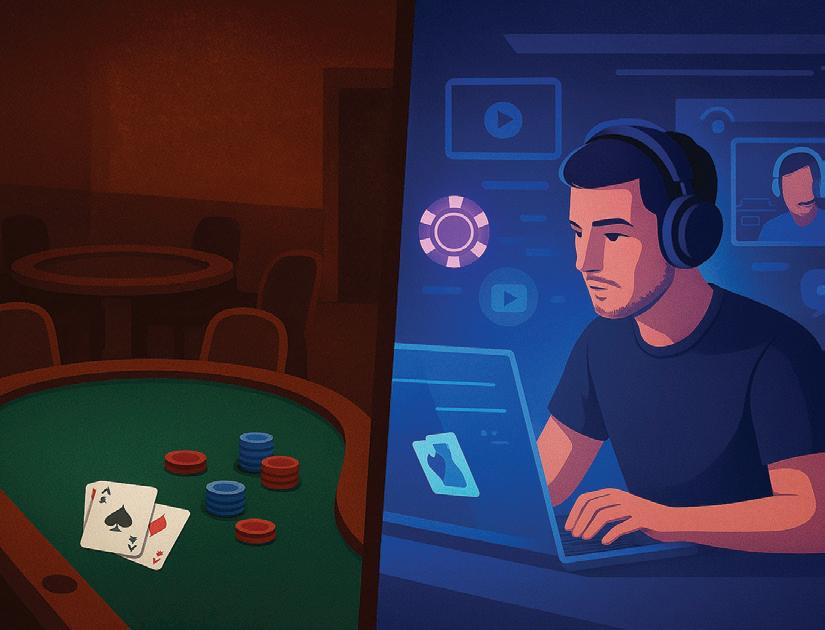
It’s important to recognise the companies that are driving this era of poker:
• GGPoker – Now the largest online operator by traffic and prize pools, and the official partner of the WSOP.
• PokerStars – Still a giant, with the European Poker Tour (EPT) and a vast global online presence.
• WSOP / Caesars (now under NSUS ownership) – The flagship live brand with global reach.
• partypoker (Entain) – A significant sponsor of live tours and online festivals, with a strong European presence.
• 888poker – An established brand still sponsoring events and offering accessible online games.
• Winamax – A European powerhouse, especially in France and Spain.
These companies don’t just spread the cards; they sponsor the tours, bankroll the guarantees and provide the platforms that make modern poker possible. Their investments are the clearest sign that the industry is far from dead.
After in-depth research and conversations, I can say with confidence that poker is not dead. What has happened is a transformation. The casual, everywhere-live-cash-poker model has shrunk, squeezed by casino economics. But the spectacle side of poker, the WSOP, online festivals and streaming culture, has never been stronger.
In fact, poker has reinvented itself for the modern era. It has adapted to mobile technology, to online broadcasting and to global branding in a way that few would have predicted 20 years ago.
So, the next time someone asks me if poker is dead, I’ll tell them this: It isn’t. Poker is alive, reinvented and still capable of creating dreams, heartbreaks, and fortunes. It just looks different than it did in the boom years. That’s not death. That’s evolution.
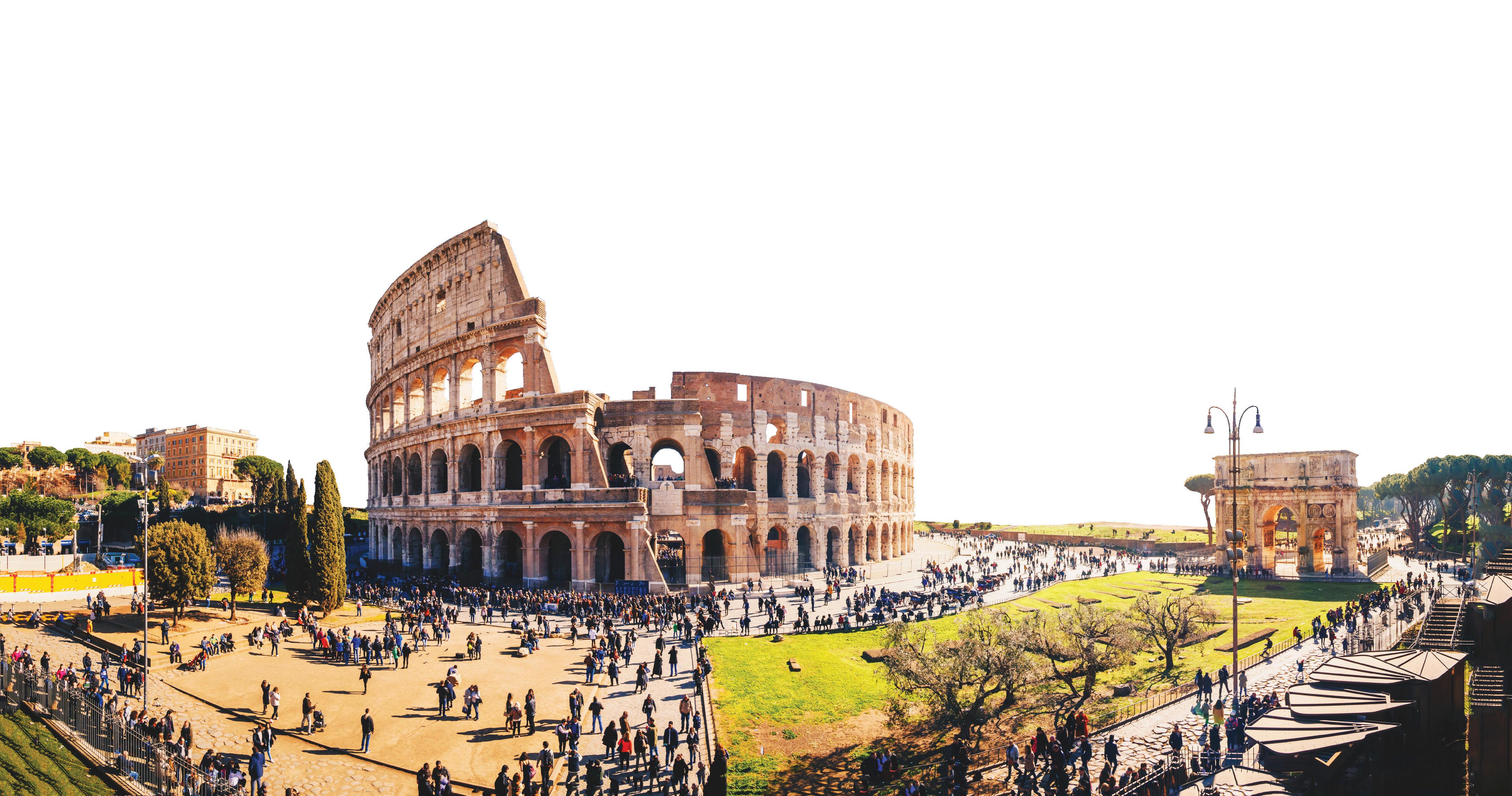
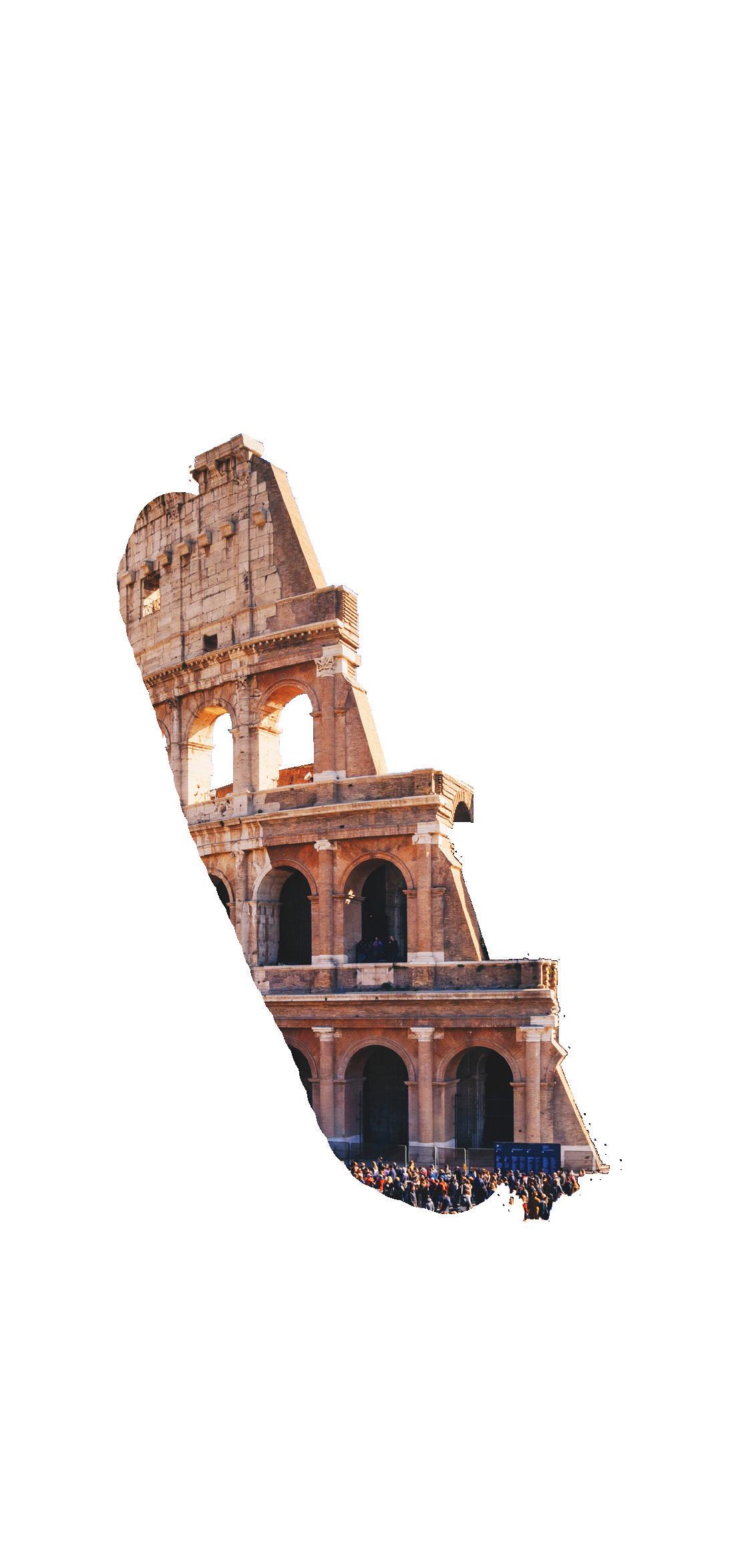

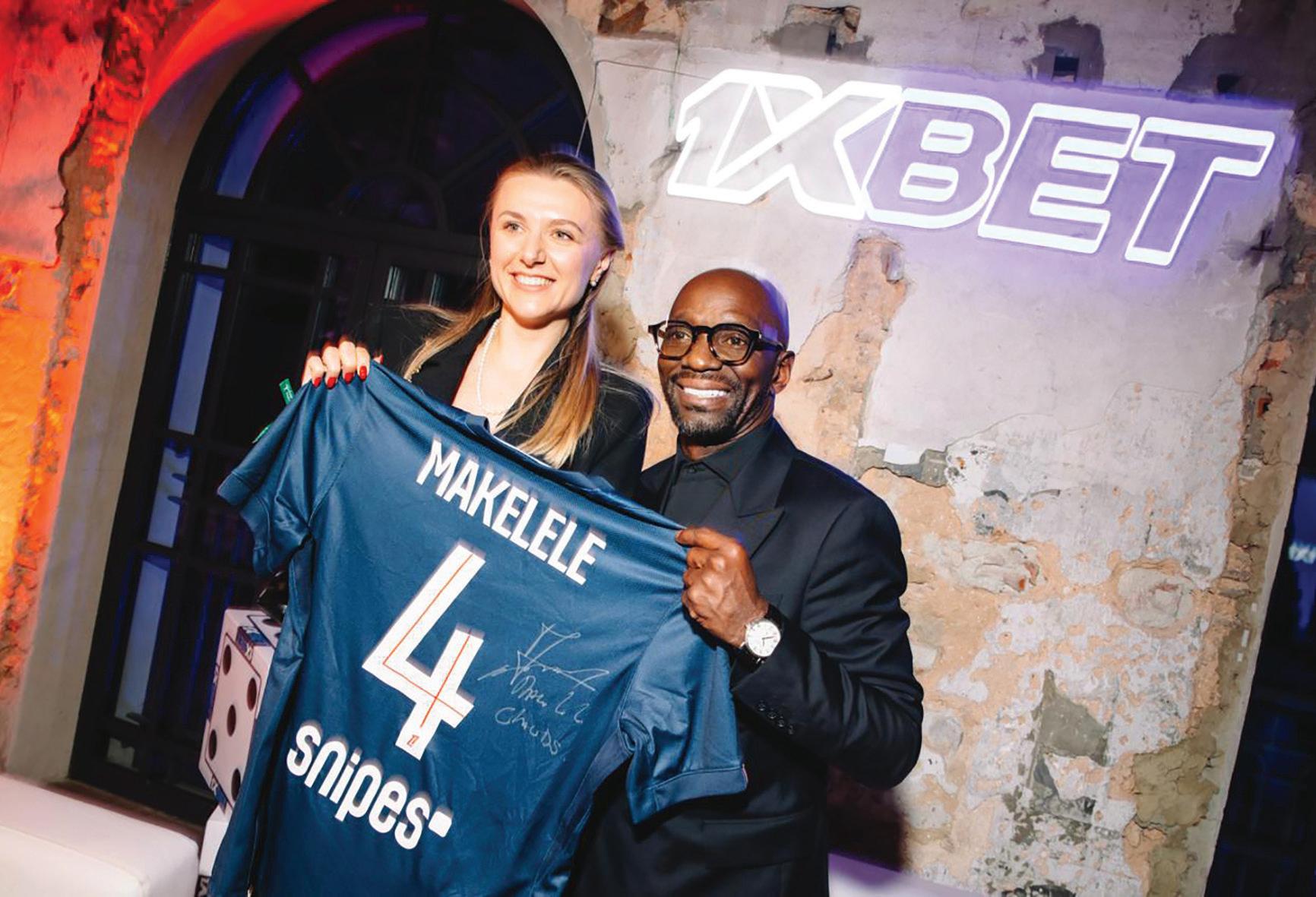
1xBet’s exclusive Legends of the Game party was a highlight of SBC Summit in Lisbon
mong many themed parties, Legends of the Game stood out with its unique concept. Every detail – from guest styles to hall decorations – created an atmosphere of confidence, play and inspiration for new projects.
AGlobal betting company 1xBet always finds a balance between work and leisure, once again showing its event-planning talent on September 16 in Lisbon. As part of the prestigious SBC Summit, the exclusive Legends of the Game party was held for the brand’s partners. The private event became an important part of the summit, and created unique opportunities for business growth and making promising deals.
The Legends of the Game party was filled with an atmosphere of mystery and excitement. The charm of the event was enhanced by the colorful La Distilleria location: spacious winery halls designed like a game master’s lab and luxurious gardens where guests could relax in a casual setting. La Distilleria winery turned into an illusion lab – with alchemy-style decorations, soft lighting and the scents of wine. Here, business hustle gave way to fun and thrill.
Guests took part in a quest across four themed zones, styled like playing-card suits. In each area, participants received a card or artifact to enter the final Hall of Legends room.
There, a special guest awaited them: Claude Makélélé – former PSG and France national team player, and 1xBet brand ambassador. The appearance of the celebrated footballer was one of the evening’s most anticipated moments. His presence filled the room with energy – he chatted with guests, giving everyone the feeling of meeting a true legend. Makélélé’s smile, openness and natural charm made every moment of the encounter truly special. Partners could also get an autograph from the star midfielder – a small but very valuable keepsake that will be remembered forever.
When the legendary band Boney M took the stage, the dance floor exploded to hits like “Daddy Cool” and “Rasputin.” Guests couldn’t stay in their seats.
Themed quests and a Boney M music show warmed up the guests before the meeting with 1xBet’s strategic development advisor Simon Westbury and legendary athlete Makélélé. The warm welcome of the evening’s main stars became the center of attention for the cameras.
The meeting of Westbury and Makélélé not only drew guests’ attention but also sparked productive networking. Music, conversations and interactions with sports legends created the perfect backdrop for new business ideas. 1xBet partners discussed plans, exchanged contacts and actively talked about new projects.
1xPartners is a leading iGaming product that has brought together over 500,000 entrepreneurs from 150 countries. For nine years, the affiliate program has been offering the best earning opportunities, including lifetime commissions of up to 50 percent for referred users, access to a creative promo-materials library and more than 250 payment methods for withdrawals.
The Legends of the Game party brightened up 1xBet partners’ leisure time in Lisbon and opened up new prospects for their business. Informal meetings are highly valuable, as they help see routine processes from a new perspective and find creative solutions to maximize profit.
The Legends of the Game night was more than just a party. iI brought together like-minded people who drive the industry forward. And it’s moments like these that turn work into a true community. Join the brand’s flagship affiliate program and explore a world of new opportunities with 1xPartners.
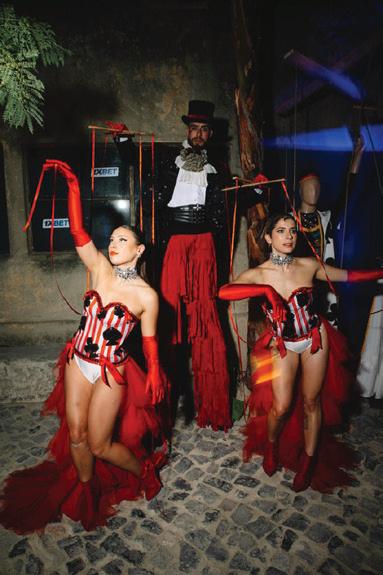
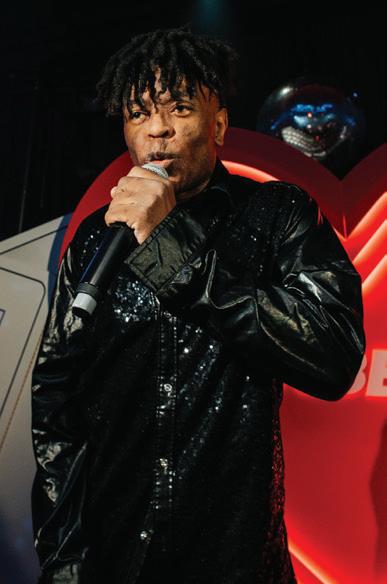
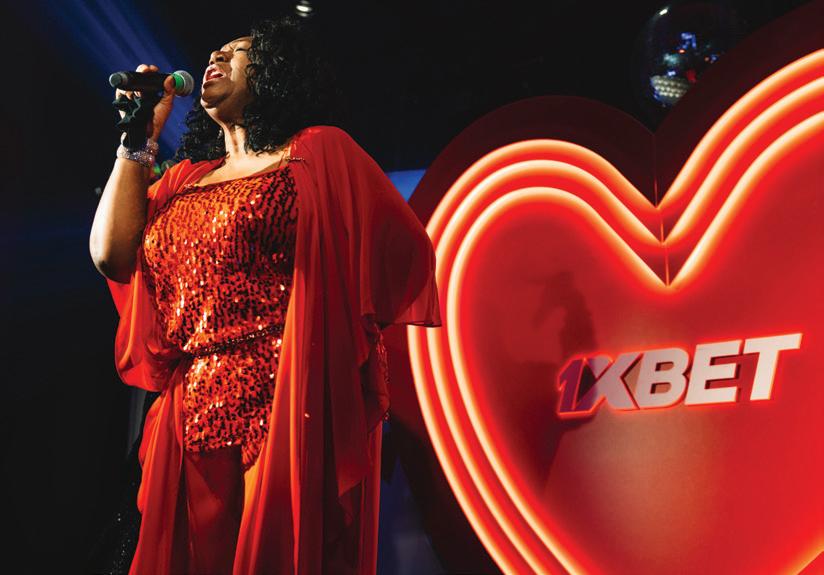
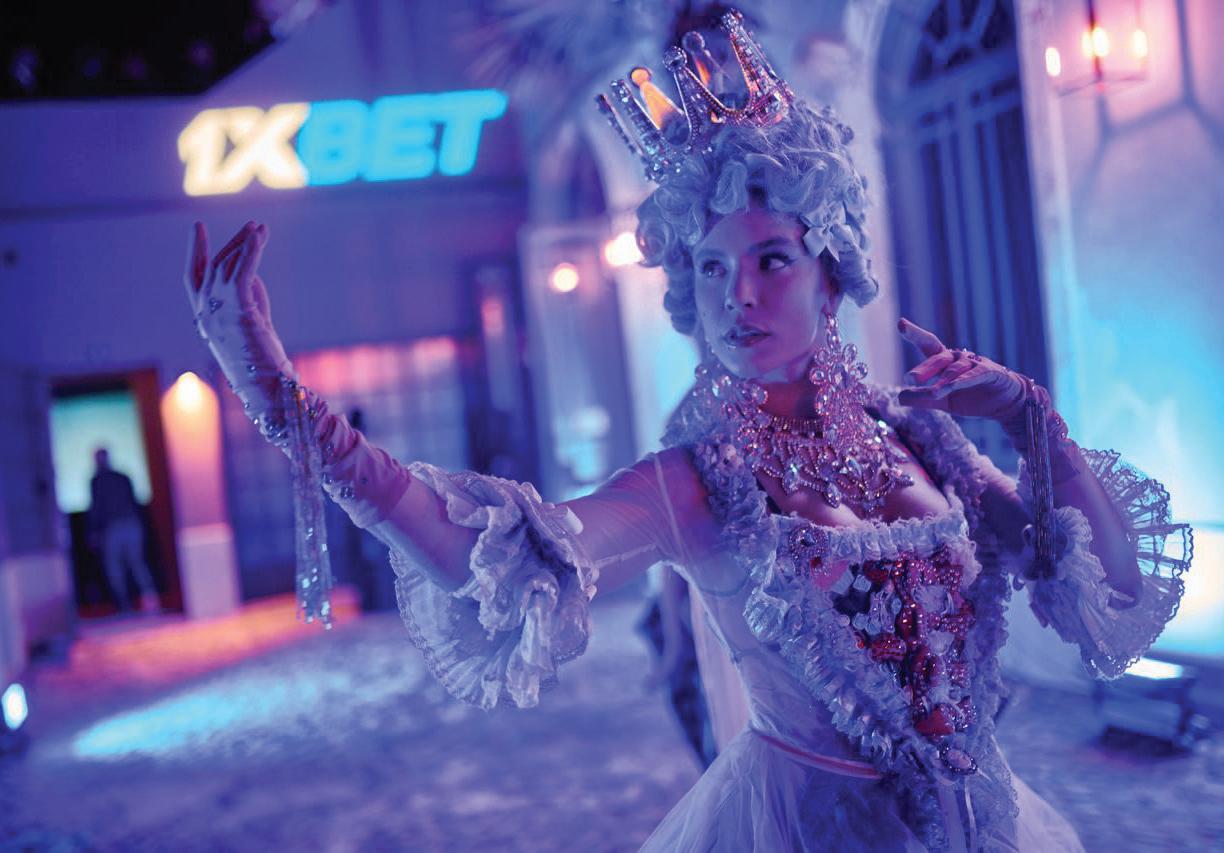

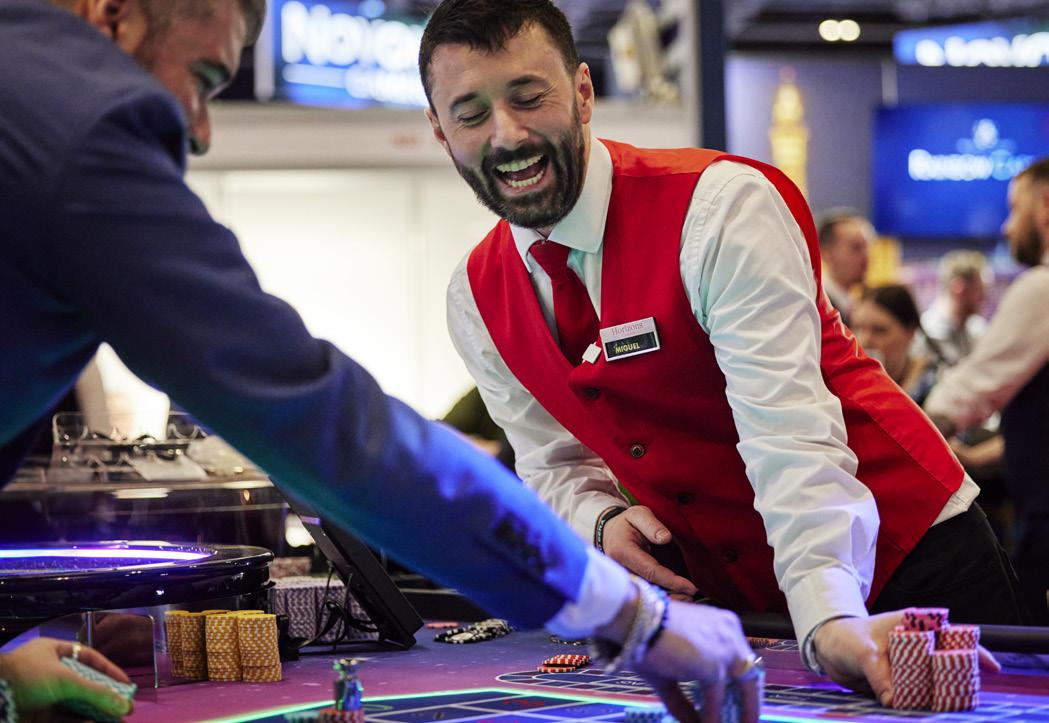

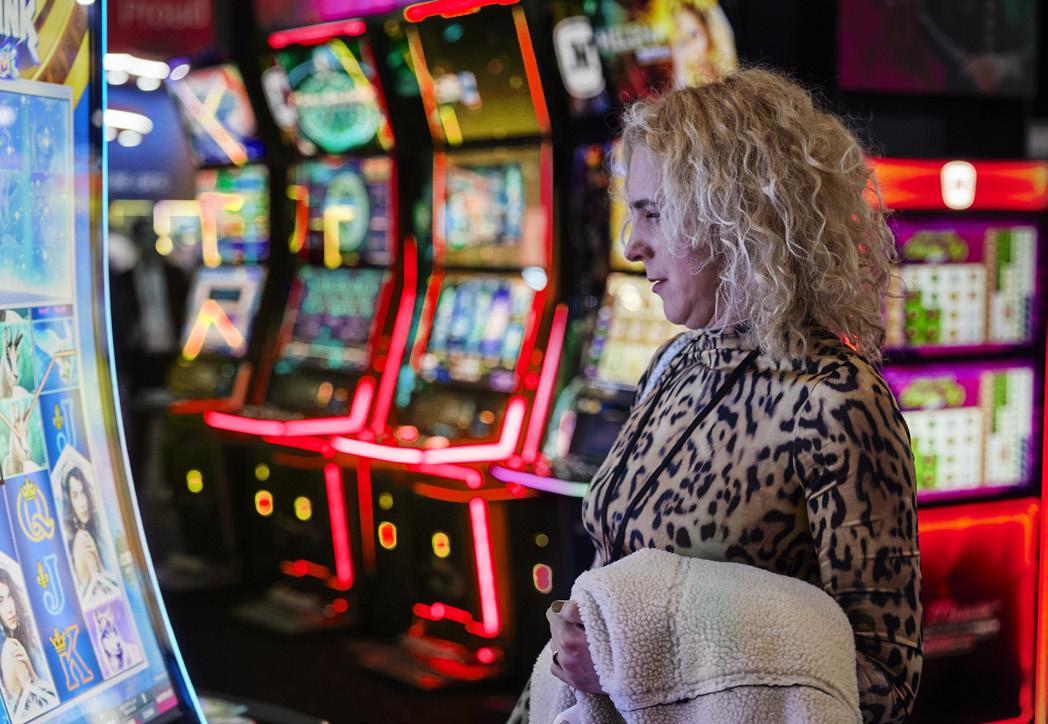
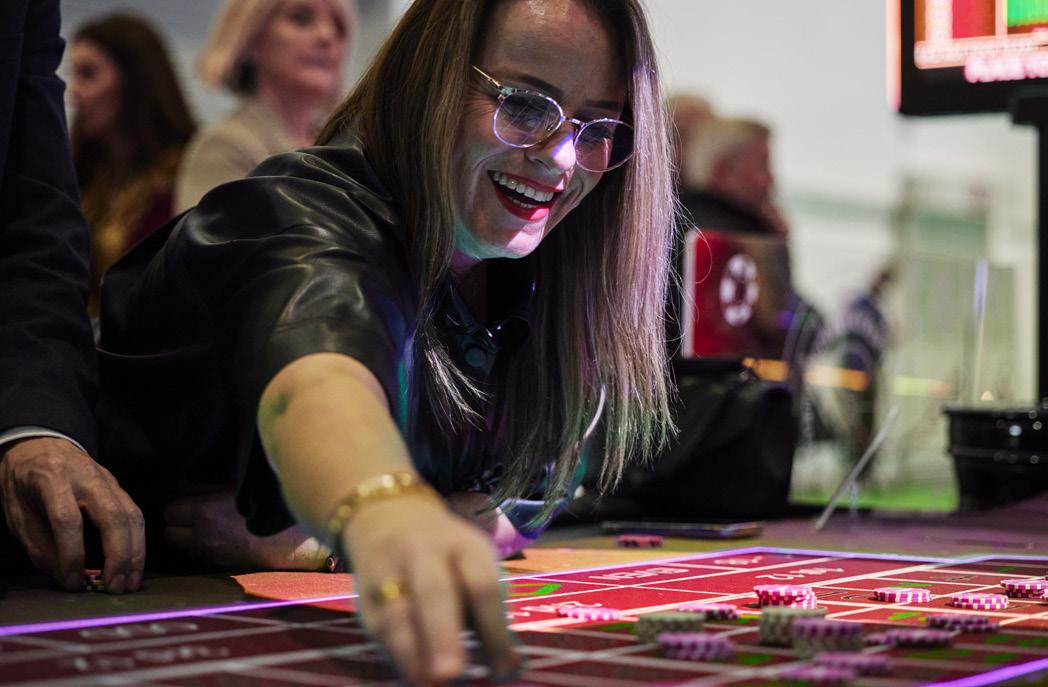

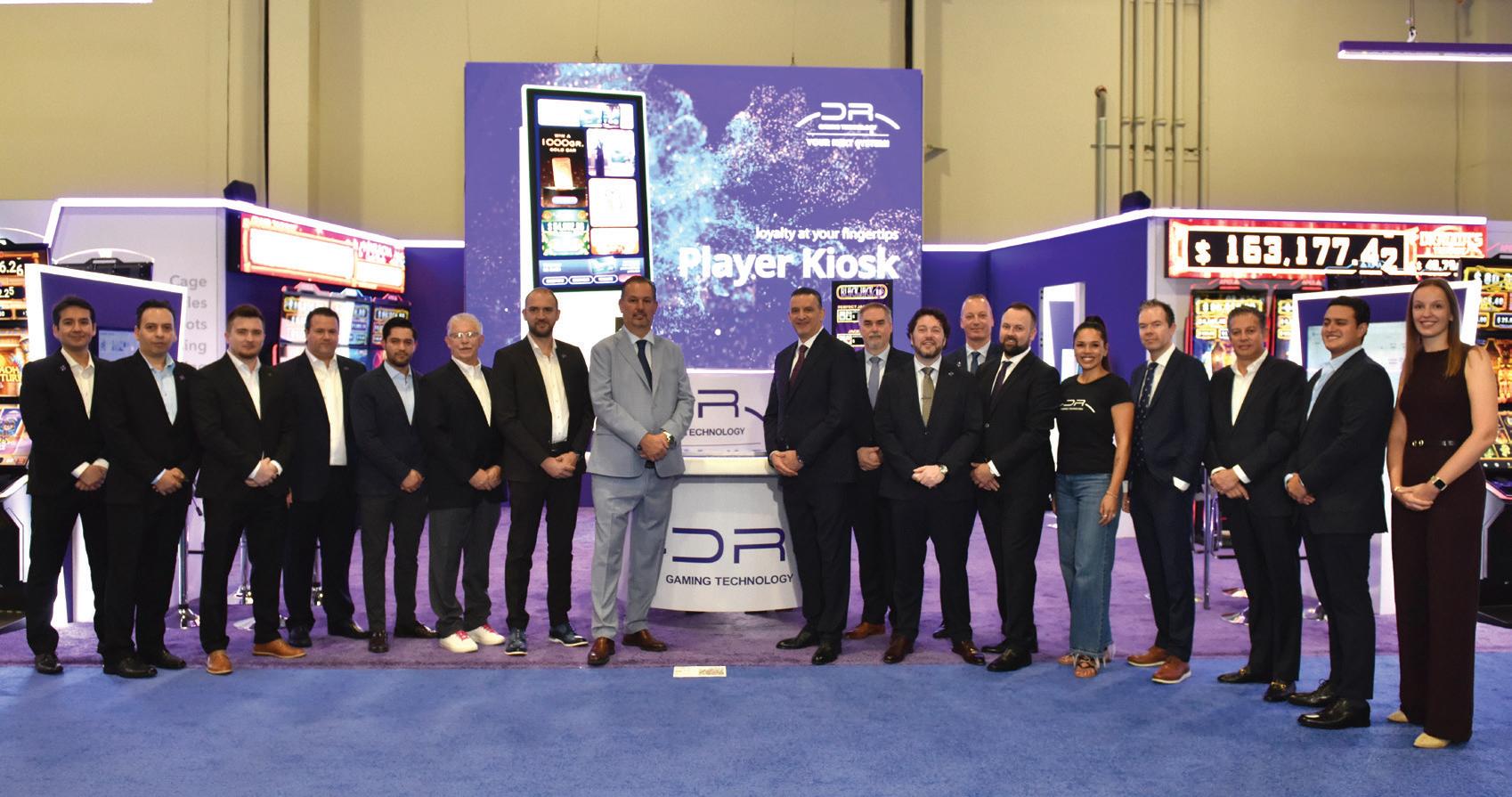
DR Gaming Technology team
t this year’s Global Gaming Expo in Las Vegas, DR Gaming Technology (DRGT) showcased its most complete and connected casino-management ecosystem yet. Exhibiting from Booth 4405, DRGT demonstrated how its unified suite of tools – spanning mobile, media, loyalty, analytics, floor operations, self-service and jackpots can help operators deliver seamless experiences while retaining full control over every player interaction.
AFrom real-time mobile visibility to customizable player touch points and dynamic content delivery, DRGT’s showing brought together technology, flexibility and scalability. “Our goal at G2E was simple: to show how operators can run their entire casino floor from one consolidated, scalable system,” said Executive Chairman Jurgen De Munck. “We’ve always placed the player first, but that starts with empowering the operator to manage infrastructure and communication intelligently, and flexibly.”
DRGT’s product suite, all built on the same technological foundation, was on full display, with live demonstrations of its flagship tools:
• drServiceHub gave visitors a glimpse into streamlined operations, with its smart-start page offering a dashboard-style view of technical issues, real-time events and VNC-enabled remote troubleshooting.
• The drManagementApp, a mobile tool for floor managers, showed how staff can receive push alerts, monitor floor occupancy live and switch between multiple venues, all from their phones.
• Its third-party, point-of-sale integration impressed operators by enabling players to use loyalty points or their wallet to pay directly for meals and drinks, eliminating the need for vouchers and queues.
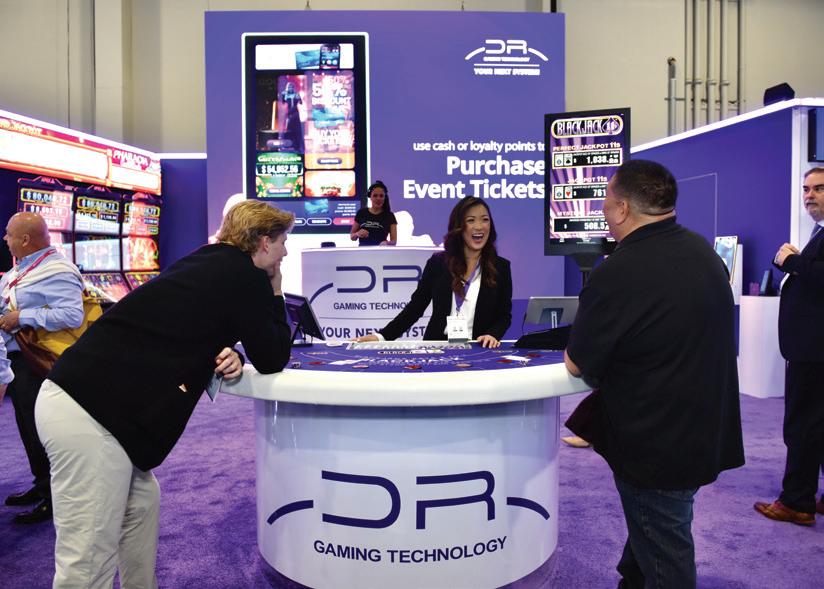



• The drKiosk, a fully customizable, multilingual, self-service terminal, allows players to manage their accounts, redeem points, purchase food and drinks, and more, all without staff intervention.
• DRGT’s drPlayerApp tied everything together on the player’s phone: registration, cashless wallet, real-time jackpot tracking, loyalty-tier progress, and in-app rewards; all available on iOS and Android.
“The feedback on our mobile-first tools was overwhelmingly positive,” noted CEO Marco Herrera. “We’ve built these apps not as bolt-ons but as native parts of the DRGT ecosystem. It all flows through the same platform. There’s no fragmentation.” Operators also spent time interacting with drFloorManager, a permission-based Web application that provides real-time floor visualization via heat maps, search filters, and machine-level insights such as hand pays, credit meter levels, and gameplay and player activity.
Content control was another key talking point. drMediaManager allows operators to design and push media, from video and jackpot messages to live TV, to specific devices or screens across one or multiple venues. This level of centralized control resonated strongly with marketing and operations leaders. A key device in delivering content, and engaging and communicating with players, remains DRGT’s eight-inch, drScreenUltra on-device player interface. It integrates ‘tap or scan’ cash-in and cash-out functionality, loyalty details, targeted promotions, bonusing and session data. It helps casinos connect with players at the right time and with the right content or rewards.
The drRewards and drAnalytics applications further illustrated DRGT’s “all in one” approach. drRewards enables tailored promotions, raffles, vouchers and mystery jackpots from a single console. drAnalytics delivers actionable BI reports via easy-to-read and customizable dashboards detailing player behavior, machine performance and exception reporting, to name a few.
“All of our tools work together in real time; that's our differentiator,” added Herrera. “This system is already live in multiple jurisdictions. At G2E, we weren’t pitching concepts, we were demonstrating results.”
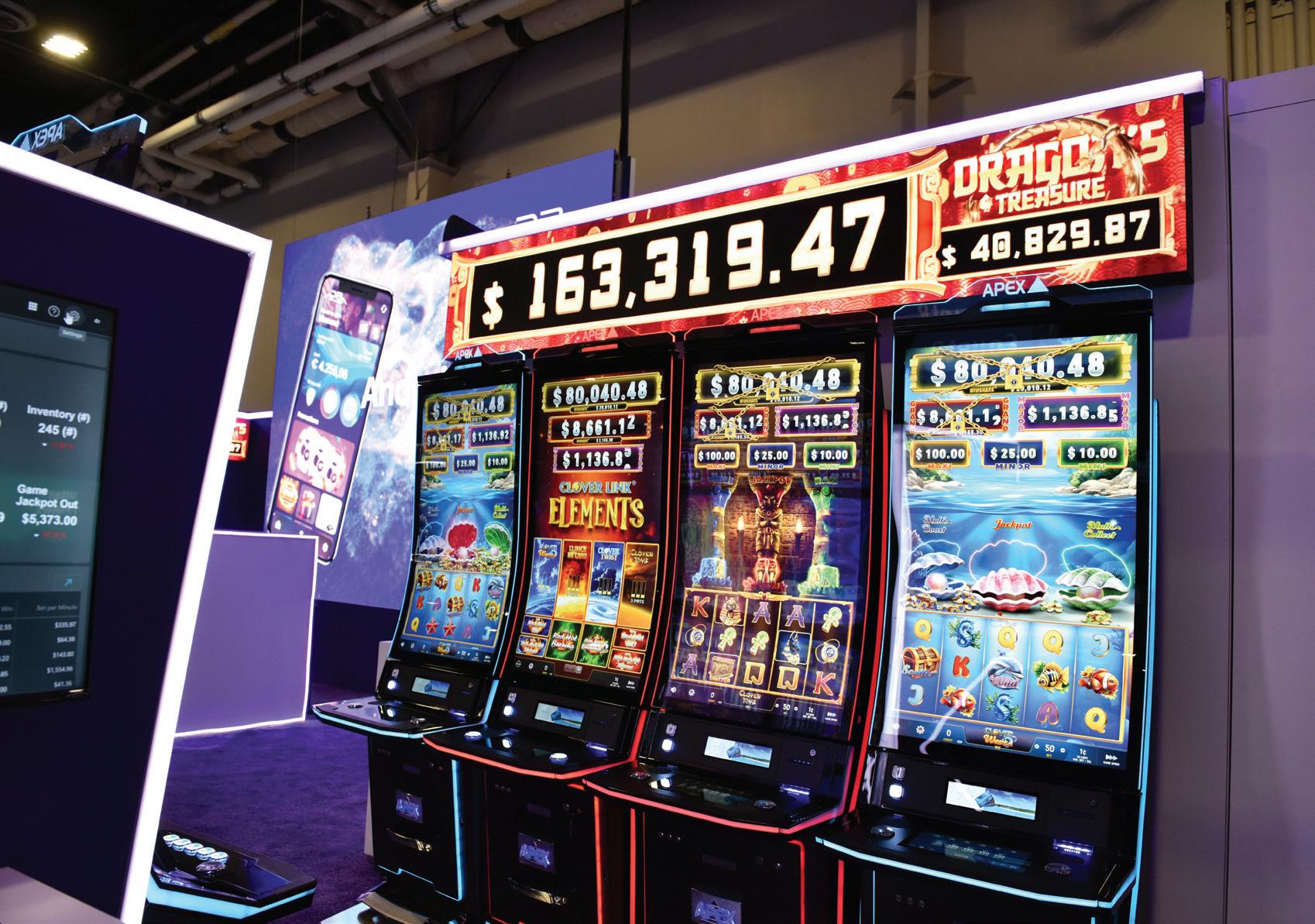
One of the most widely discussed topics at the DRGT stand remained its world-class, system-driven jackpots, a key departure from traditional, controllerbased setups. Using its proprietary drSMIB mesh network, DRGT enables operators to run sophisticated jackpot configurations directly through its CMS. This eliminates the need for additional hardware or vendorspecific integrations, plus the ability to offer an almost endless array of configuration options.
“Operators can configure a jackpot based on coinin volume, loyalty tier, time of day … you name it – and then apply it instantly across their floor,” explained Mexico Managing Director Alfredo Moreno. “Because it’s built into the system, it works seamlessly across all touch points.”
In addition to the range of configuration options, DRGT’s range of jackpot options themselves –including time-based, mystery, progressive and win-share for example, as well as support for table jackpots like Poker21s and BlackJack11s –intrigued visitors. All of these can run in tandem with loyalty systems, in-game triggers and promotional campaigns.



A standout case study referenced during the show was DRGT’s recent launch of Mexico’s first symbol-driven national wide-area progressive (WAP) jackpot, developed in collaboration with APEX Gaming. Spread across 17 casinos and 128 Clover Link Elements machines, the system delivers real-time jackpot synchronization, win-share capabilities, as well as dynamic media content via drMediaManager.
“That project was a landmark for us,” said De Munck. “It combined jackpot logic, player engagement and media delivery across multiple venues, all using our existing infrastructure. It’s a live example of how flexible and scalable our system really is.”
“In Mexico, we’re using tools like drFloorManager and drAnalytics every day,” said Moreno. “We adjust layouts, trigger jackpots, and track gameplay and player behavior in real time. The insights are immediate – and the operational impact is tangible.”
The show reinforced DRGT’s commitment to practical, future-proof solutions that reduce complexity while boosting operational efficiency and player satisfaction. “Operators are tired of stitching together disconnected systems,” concluded Herrera. “They need flexibility, insight and speed. We offer that single solution, one login and one vision. G2E gave us the perfect stage to show that in action.”
“This wasn’t about what we’re planning to do. It was about what we’re already doing,” added De Munck.
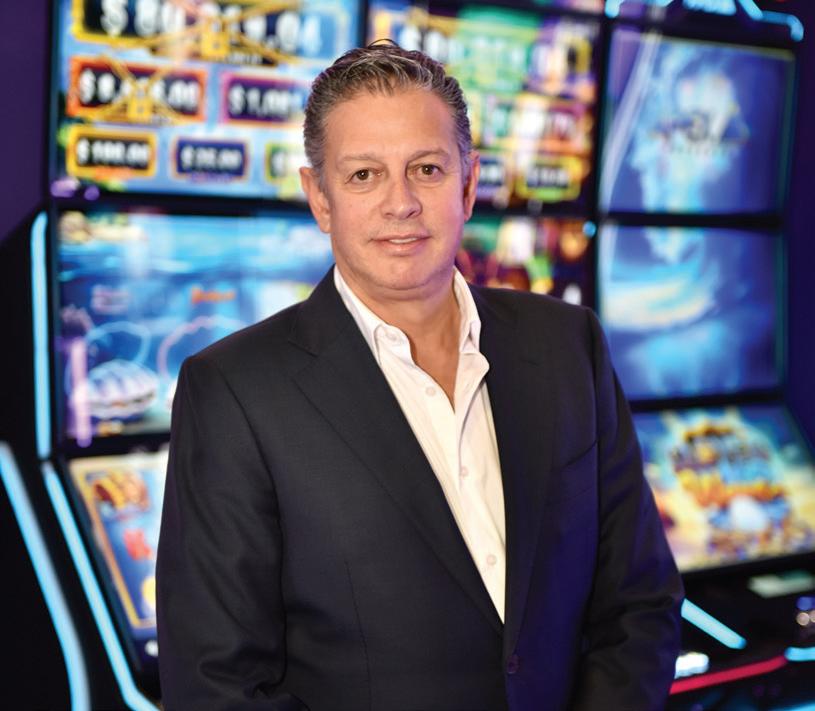
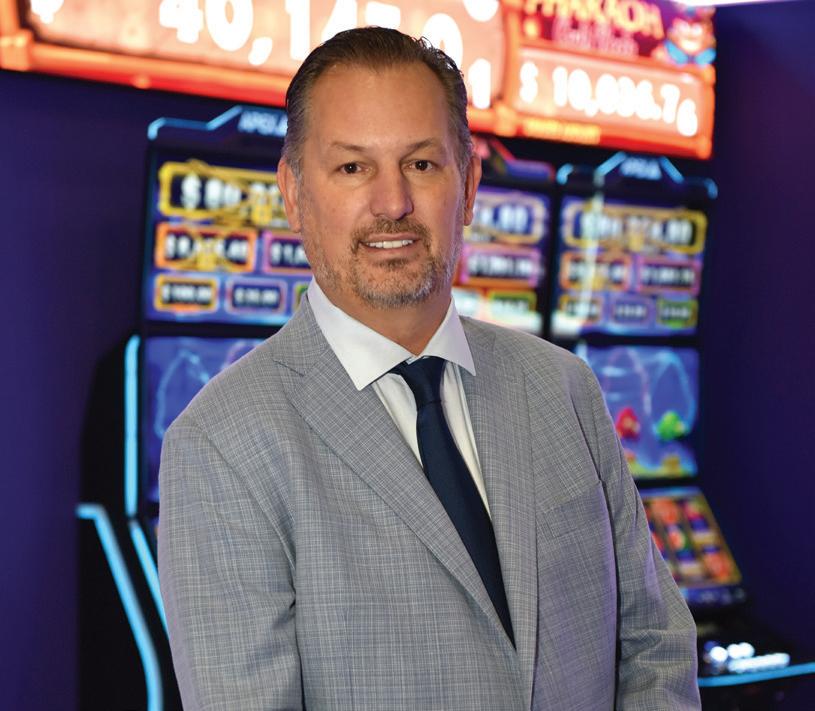
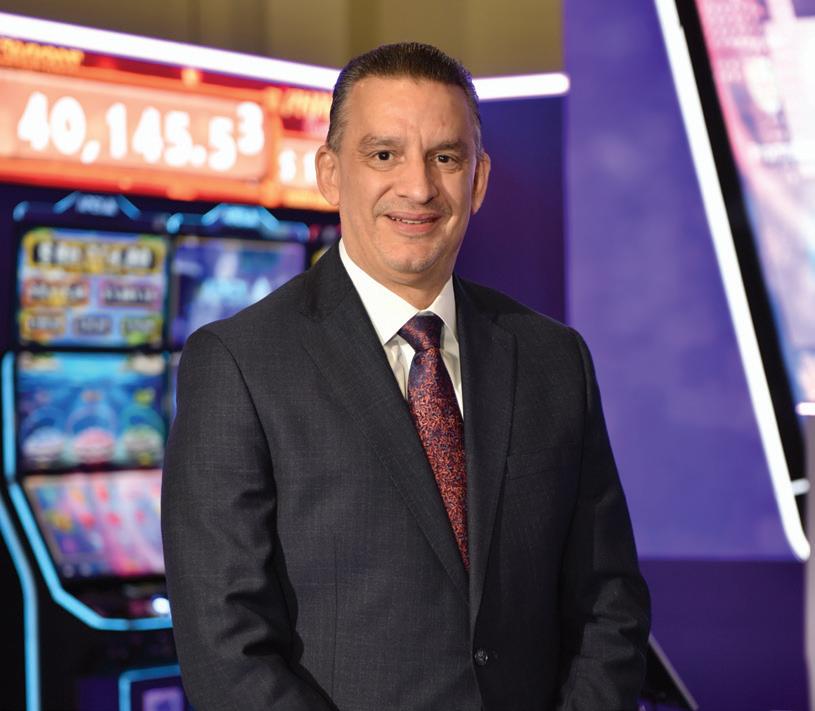
DR Gaming Technology is an independent global developer and supplier of integrated, scalable casino management, cashless, and jackpot solutions. Established in 2003 by Executive Chairman Jurgen De Munck and Chief Technology Officer Michiel van Dam, its state-of-the-art systems are developed using the latest technology. This has resultied in the unique ability to operate without a permanent server connection, in so doing simplifying system installation and implementation, and ensuring its customers total management control over their entire operations. At present the company’s modular, flexible, and cost-effective systems and jackpot solutions operate across over 70 different countries, and on more than 80,000 gaming devices, boasting some of the most powerful functionality in the world. In addition to its headquarters in Belgium, DRGT also has offices in Austria, Malta, Peru, Mexico, Colombia, Uruguay, Paraguay and South Africa.
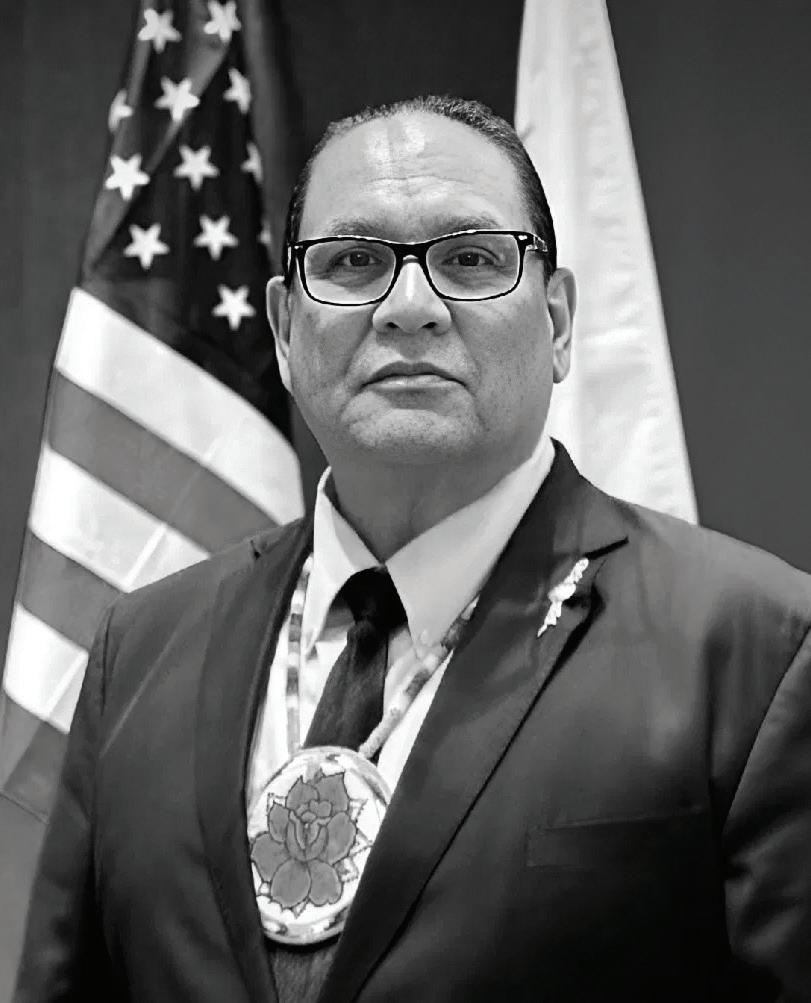
he unexpected death of Indian Gaming Association Chairman Ernest L. Stevens Jr., (1959-2025) on September 26 left a void in the world of Indian gaming. He was a legend in Indian Country and was described as “warrior, statesman, champion.” Flags flew at half-staff at the Oneida Nation of Wisconsin upon his death.
The Indian Gaming Association observed, “Chairman Stevens dedicated more than two decades of his life to protecting and advancing tribal sovereignty through tribal-government gaming. Under his leadership, Indian gaming flourished, growing from $11 billion in revenues in 2000 to a record $43.9 billion in 2024, making tribal-government gaming the largest segment of the U.S. gaming industry.” He served 12 consecutive two-year terms as IGA chairman and had been elected to a 13th in April.
A member of the Oneida Nation of Wisconsin, Chairman Stevens walked the nation’s capital as a well-respected leader. Under his leadership, IGA grew in prestige and clout to its current membership of 250 tribes and 500 gaming establishments. Stevens once said, “Our membership is our strength and we are the strongest when our voice is unified.”
A fierce defender of the Indian Gaming Regulatory Act, Stevens was a passionate collaborator with tribal leaders, Congress and federal agencies.
Larry Wright Jr., National Congress of American Indians executive director, said on his passing, “He was a bridge builder whose leadership elevated Indian country and whose generosity lifted up so many of us.” He added, “Ernie had a gift for bringing people together. He believed in unity, and he proved that
when Indian Country speaks with one voice, we not only win but we make lasting change.”
NCAI President Mark Macarro mourned, “We lost a warrior today. Ernie Stevens’s voice and work carried forth a family legacy of service with great honor. Not only a national leader, but a smoke dancer and cultural practitioner, he represented the best of what we aspire to be as leaders in Indian Country.”
Chris Stearns, speaker pro tem of the Washington State House of Representatives said, “The loss of a legend is just so hard to take ... Ernie was a friend and a lion of a man.”
Bill Miller, CEO of the American Gaming Association declared, “As chairman of the Indian Gaming Association for more than two decades, Ernie was a tireless and passionate advocate for Indian Country, and a unifying force in advancing tribal sovereignty through gaming.”
Miller added added, “His work not only helped elevate tribal government gaming into a powerful driver of economic opportunity but also shaped the broader trajectory of our industry with his unwavering commitment to collaboration, integrity and inclusion.”
Phil Hogen, former IGA chairman said, “At a time when the Indian Gaming industry was experiencing exponential growth and challenges, it needed a dynamic and visionary leader. They found one in Ernie Stevens, and tribes and Indian communities are so much better off on account of Ernie’s leadership. He will be sorely missed.”
Two weeks before his death, Stevens spoke at the NCAI’s Impact Unity Days. At its press conference he said, “We’re always about tribal sovereignty. . . it's not just about economic development, it's about tribal sovereignty, our governments, how we interact in today's world and to defend every aspect of tribal sovereignty.”
Stevens said, “My father worked a lot less, but he never stopped. He never quit and he’s the one that taught me about Capitol Hill. What you learn from the Hill is that your community sits on your shoulders. The responsibility you have to educate here in the nation’s capital is the responsibility given to you by your community.”
He harkened back to his ancestors: “I think it's important to appreciate that while there may be some tough times that we're dealing with, our ancestors
dealt with even tougher times. Our ancestors had to do a lot more with a lot less.”
Born July 5, 1959 a member of the Oneida Tribe, Stevens — known as “Big Cat” — began his boxing career at 16, when in 1975 he co-founded the Soaring Eagle Boxing Club. He was four-time State Heavyweight Champion in 1976, 1977, 1978 and 1979, and twice National Indian Heavyweight Champion out of Carson City, Nevada, in 1977 and 1978.
Always passionate about sports, he became the youngest coach in Wisconsin, coaching basketball and soccer at UW-Barron. Throughout his life he hosted basketball camps, funded travel to tournaments and was committed to supporting young Indian athletes. He co-founded the Soaring Eagle Foundation, which helps indigenous youth reach their dreams.
He was a councilman of the Oneida Nation from 1993-1996 and in 1995 was elected first-vicepresident of the NCAI. He was a member of the National Indian Athletic Association Hall of Fame and the Boys & Girls Club Alumni Hall of Fame. In 2013, he was named a Lifetime Member of the American Indian Higher Education Consortium’s Alumni Association and in 2015 was inducted into the AGA Hall of Fame.
He attended Haskell Indian Junior College, receiving an Associate Degree, and earned a Bachelor’s Degree in Criminal Justice from Mount Senario College in1996. He also held a Masters in Management from the University of Phoenix, earned in 2021.
He was married to his wife and best friend, Cheryl, for more than 45 years. They had five children and 20 grandchildren.
One friend noted that Stevens was always the last to leave events because he stopped to talk to everyone. He loved telling long stories and loved just as much listening to them. He always said how proud he was of his children, how he loved his wife, and how his character was shaped by strong women, especially his mother and grandmother.
When he was 13, his activist mother took him to stand alongside members of the American Indian Movement at the site of the massacre at Wounded Knee, a symbol of the Indian struggle. It was a struggle he never relinquished.


Key developments and focus areas in AI. By
Raymond Chan
Artificial intelligence (AI) continues to evolve rapidly but it now faces significant challenges that could reshape its future.
One of the most pressing issues is data quality and the impending data shortage, a sentiment echoed by industry leaders such as Elon Musk. As AI systems become more sophisticated, the demand for high-quality data is escalating and the sources of this data are becoming increasingly constrained.
Goldman Sachs’ data chief has raised alarms about the current state of data availability, noting that AI is already confronting a shortage of quality data from the Internet. This data scarcity poses a critical challenge, as many AI models rely on vast datasets for training and refinement. With the Internet being a primary source of information, the diminishing availability of high-quality data could stall AI advancements and innovation.
To address this challenge, there is a growing need for enterprise data – that which is generated and maintained within organizations. Unlike publicly available datasets, enterprise data is often of higher quality, more relevant and tailored to specific business needs. However, the transition to utilizing enterprise data for AI training requires significant technological advancements.
The technological solutions are …
1. Data Tracking: One of the essential steps in leveraging enterprise data is establishing robust data-tracking mechanisms. Organizations must be able to monitor how their data is used, ensuring compliance and maintaining quality standards.
2. Intellectual-Property Protection: As enterprises provide their data for AI training, safeguarding
intellectual property becomes paramount. Companies need to develop frameworks that protect their proprietary information while still allowing AI models to learn and evolve.
3. Unlearning Mechanisms: A crucial aspect of data ethics is the ability for AI models to “unlearn” information that is no longer authorized for use. Developing algorithms that enable models to forget specific datasets is a complex but necessary task. This would empower data owners to reclaim control over their information and decide how it should be used.
The evolving landscape of AI is also giving rise to innovative business models, exemplified by companies like ScaleAI. The latter has positioned itself as a leader in providing high-quality training data for AI applications. Its recent valuation reflects the growing recognition of the importance of quality data in AI development.
With a valuation exceeding $7 billion, ScaleAI demonstrates that businesses focused on curating and supplying high-quality enterprise data can thrive. This success underscores the market’s demand for reliable data solutions and highlights the potential for other companies to adopt similar models. The demand will be ever-increasing as we have more AI companies being started every day.
By emphasizing the quality and ethical use of data, businesses can contribute to AI advancements – but also secure a profitable position in the industry.
For companies and individuals providing data, it is essential to establish clear mechanisms for tracking data usage. Data owners should have the ability to trace how their information is utilized, allowing them to negotiate potential benefits. This approach not only fosters trust but also encourages the sharing of high-quality data for AI development.
The future of AI development hinges on addressing the challenges posed by data quality and availability. As the industry grapples with the

Raymond is a software engineer by profession with a track record in corporate innovation and entrepreneurship. He co-founded two prosperous startups, TGG Interactive and Global Gaming Group in USA and Asia respectively, where he served as director and CEO to lead the electronic gaming businesses from 2007 to 2018. Earlier in his career, Raymond was a founding member of the business intelligence team at ETRADE from Morgan Stanley and played a pivotal role in designing the TiVo customer intelligence system in Silicon Valley.
implications of a data shortage, focusing on enterprise data and the associated technological solutions will be critical. Establishing frameworks for data tracking, intellectual-property protection, and unlearning mechanisms will shape how AI evolves and integrates into various sectors.
In an era where data is the lifeblood of AI, ensuring that data owners have the ability to trace and benefit from their information will foster a more ethical and sustainable approach to AI development. As we look ahead, the interplay between data quality and AI innovation will undoubtedly define the next frontier in artificial intelligence.
